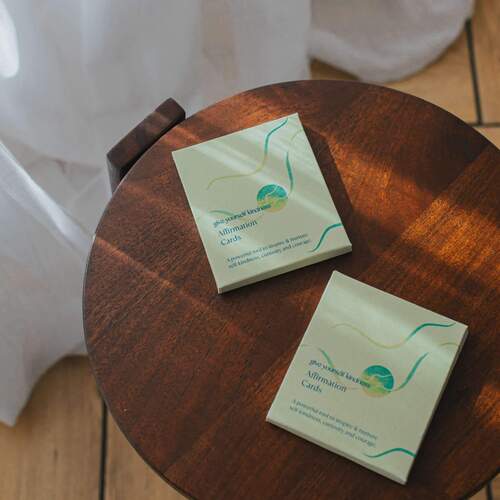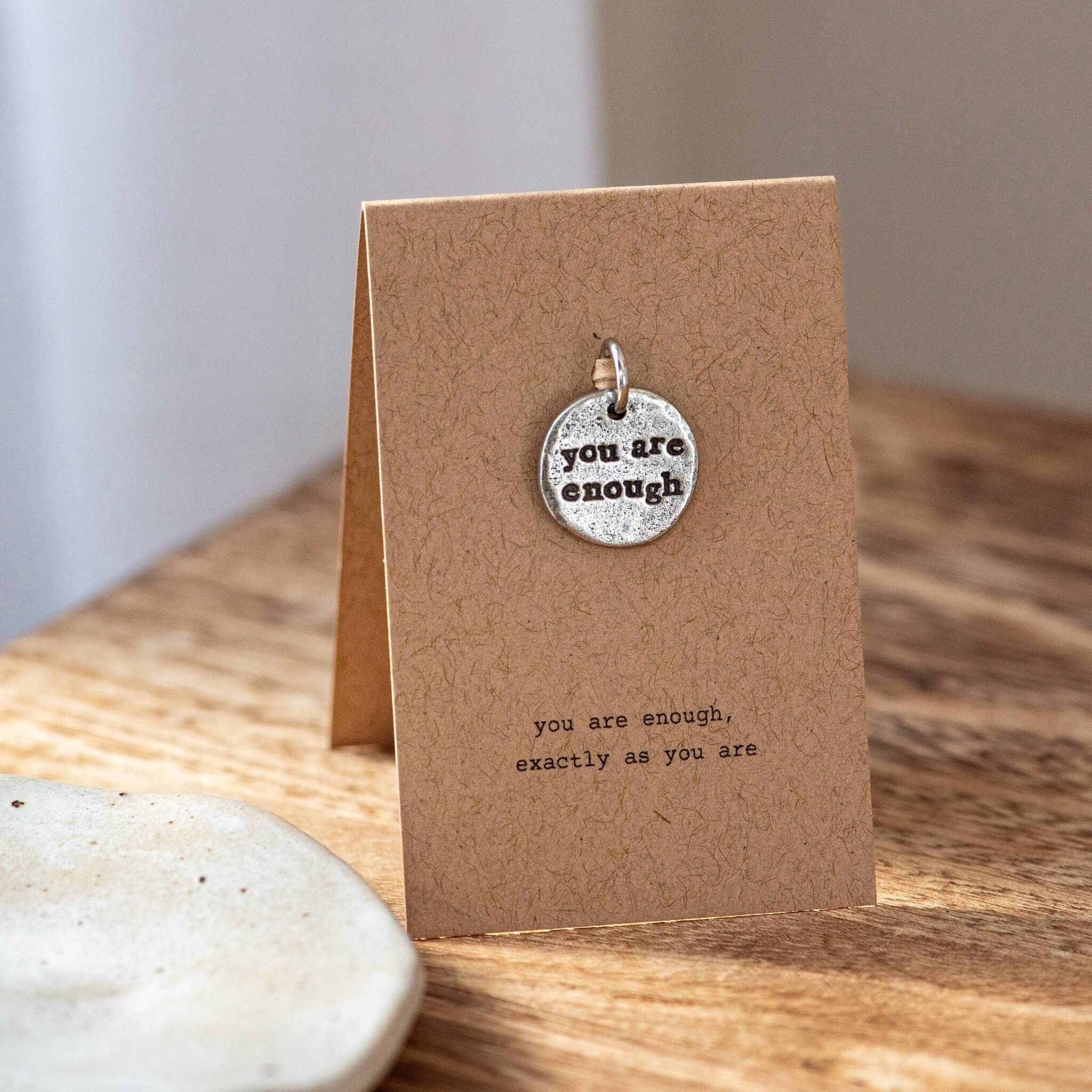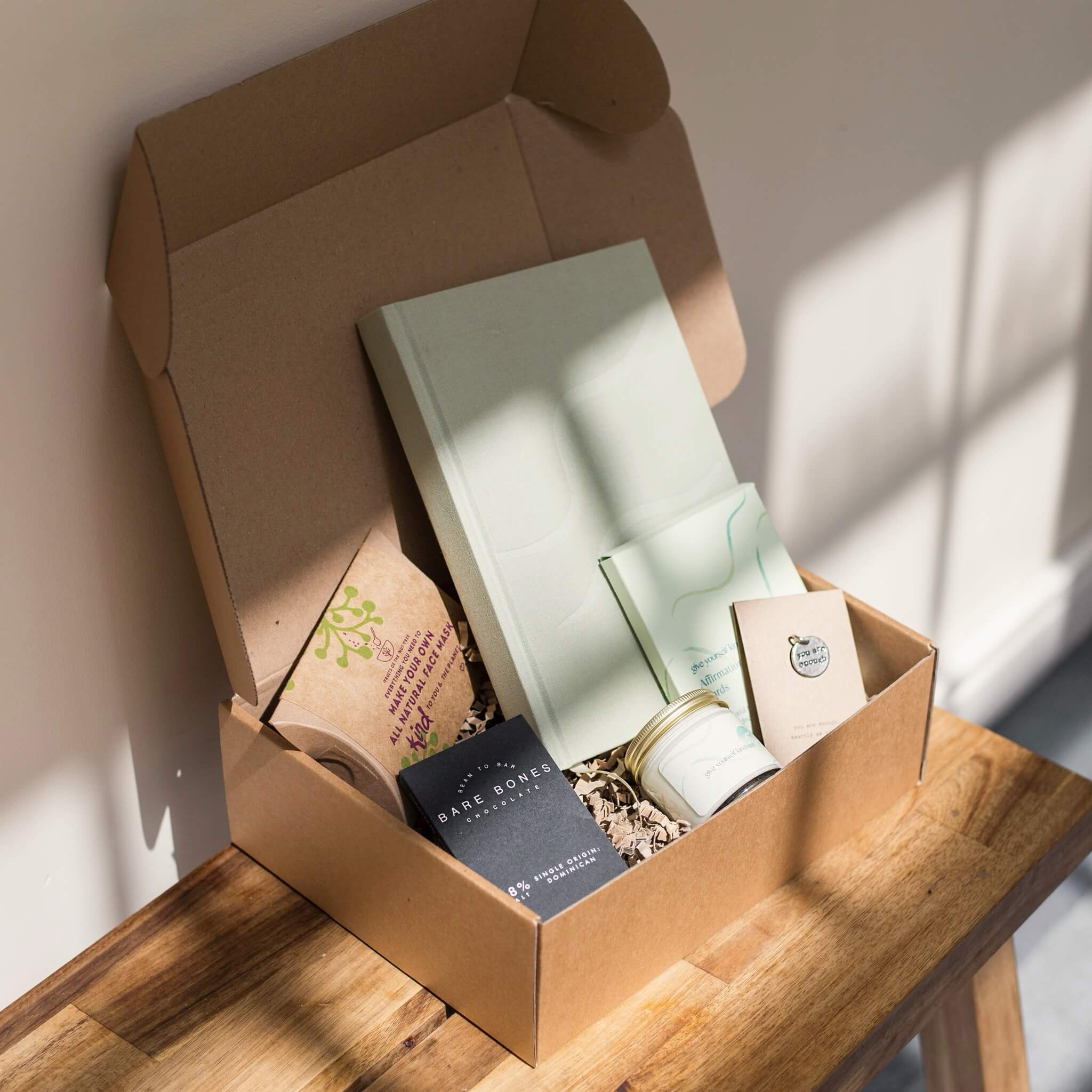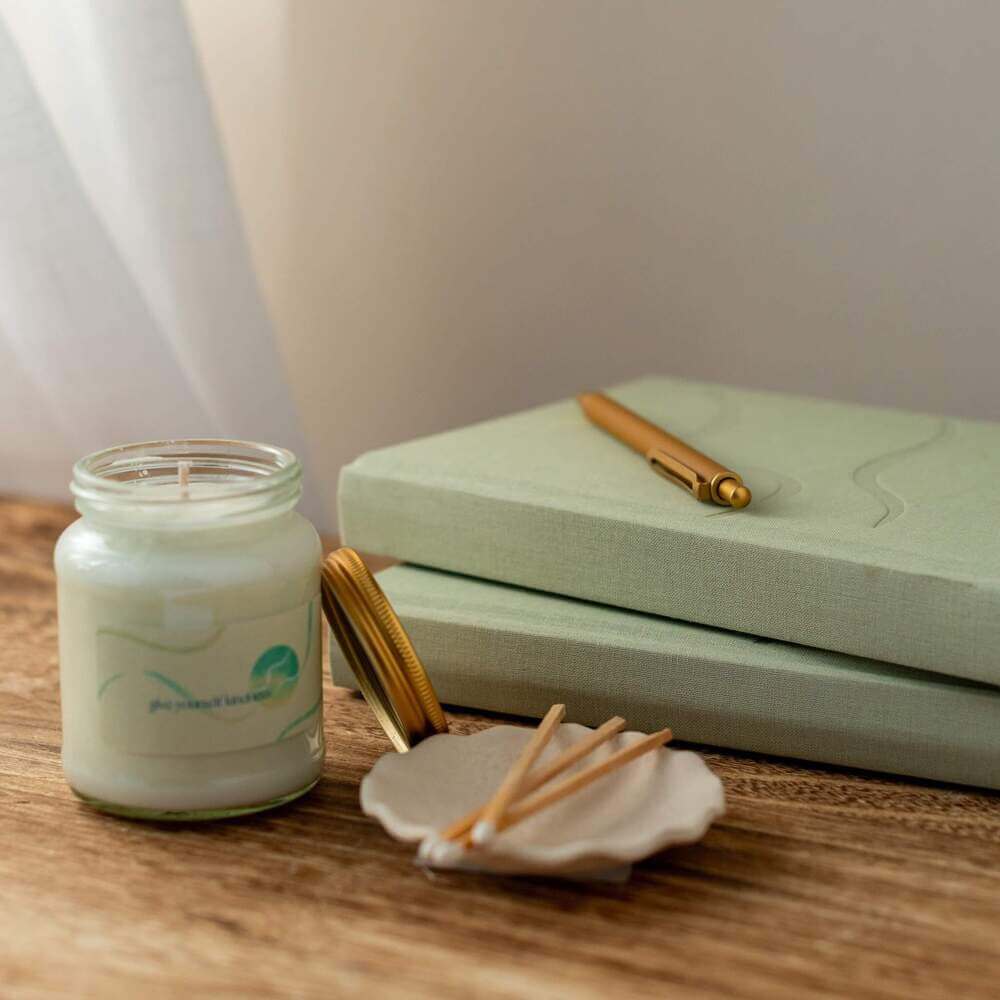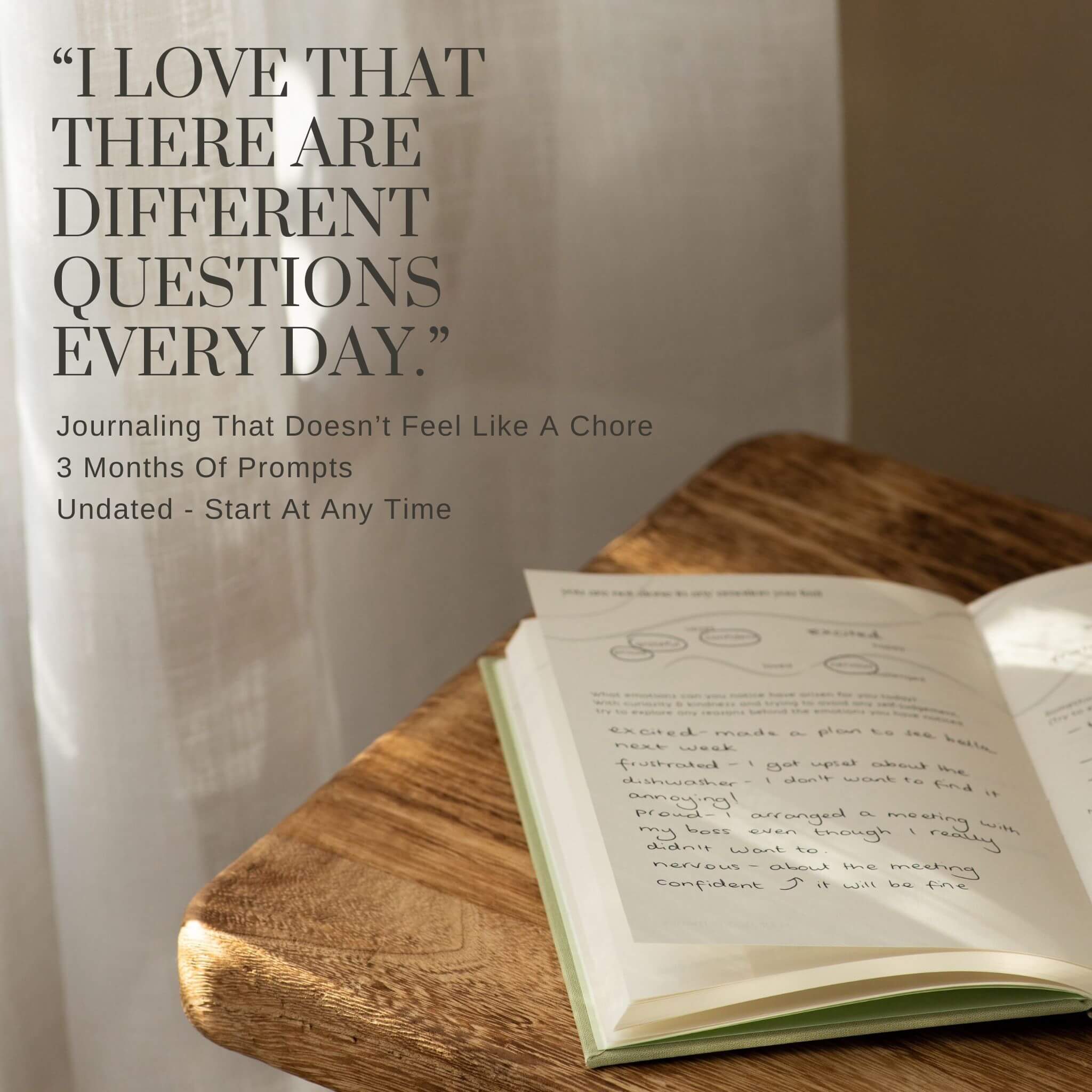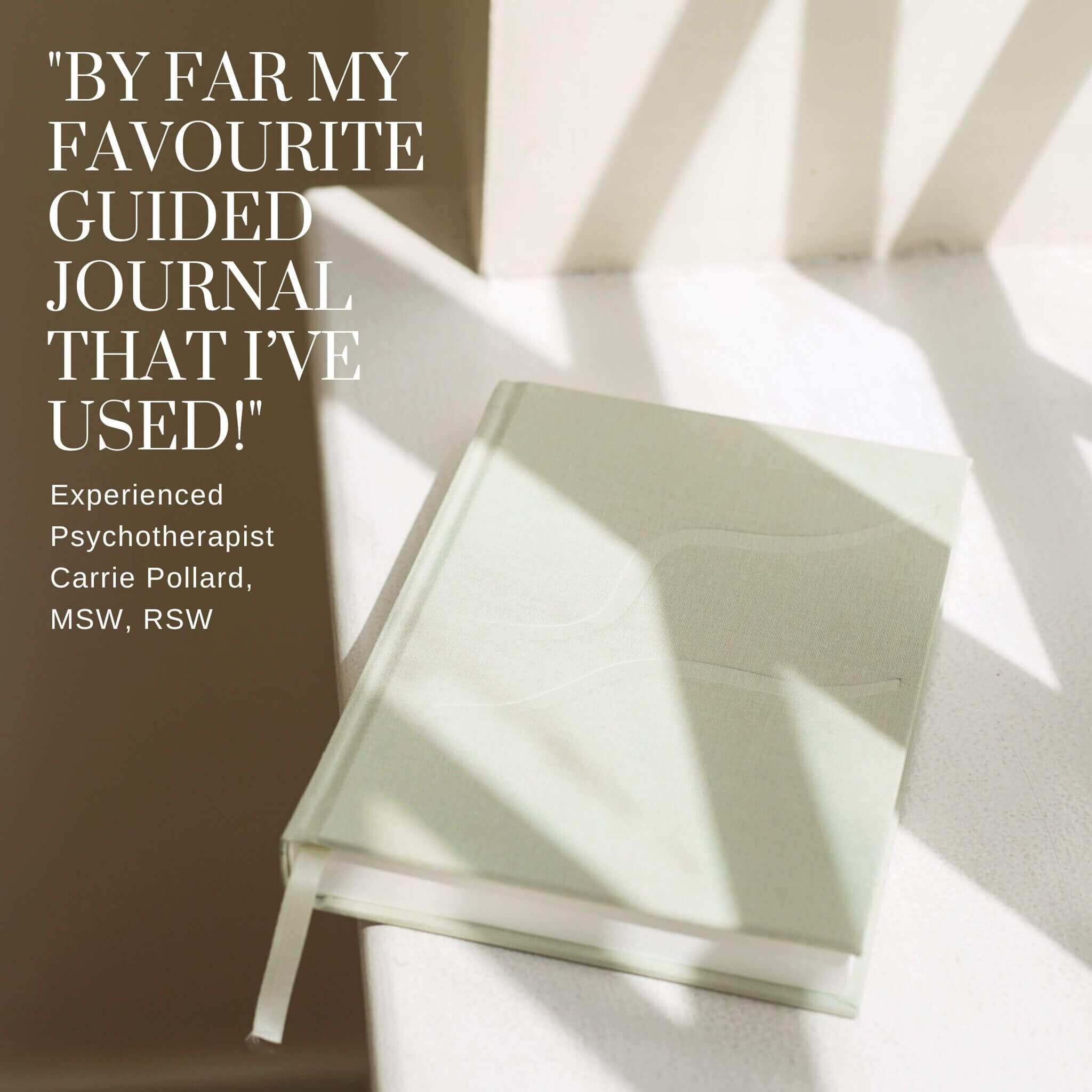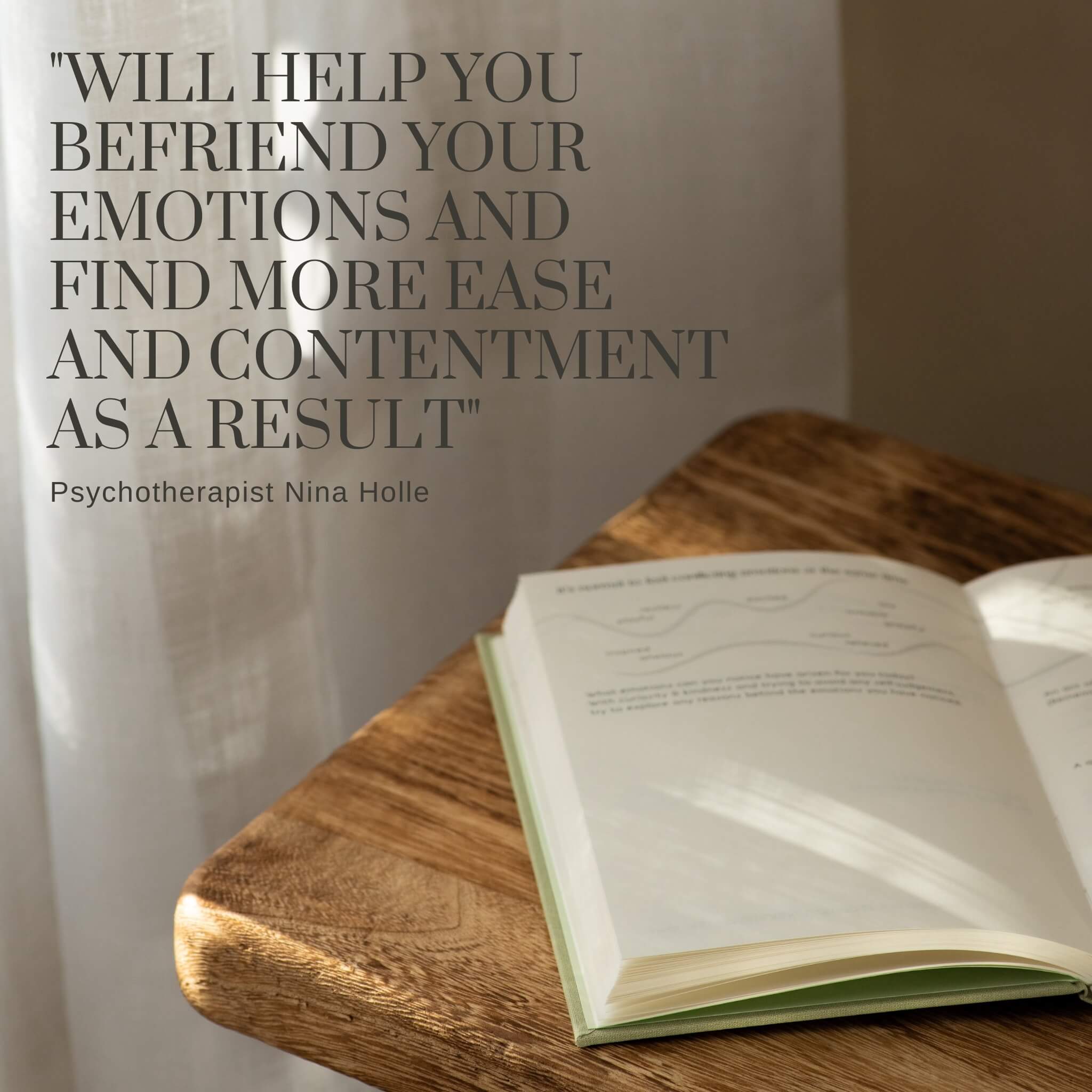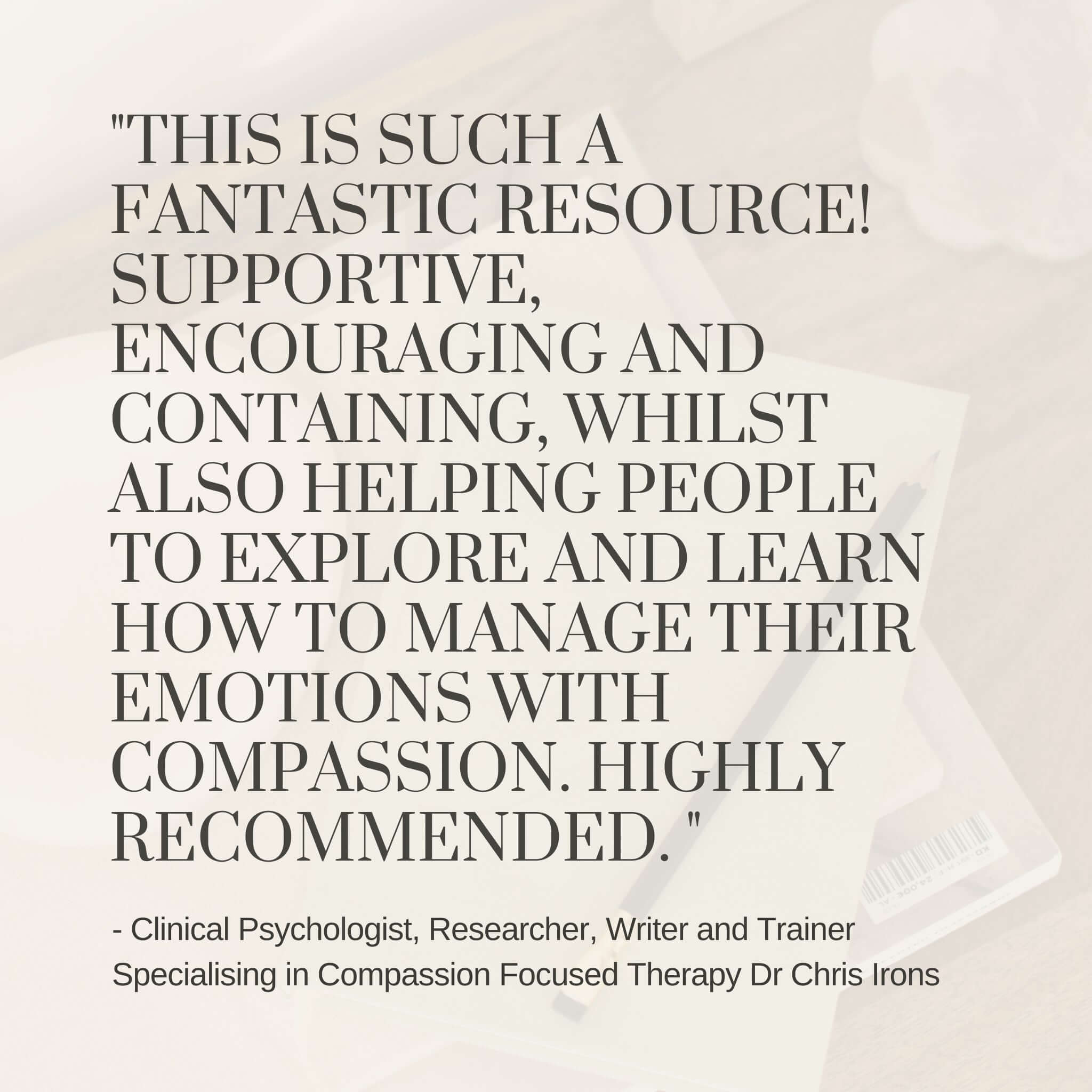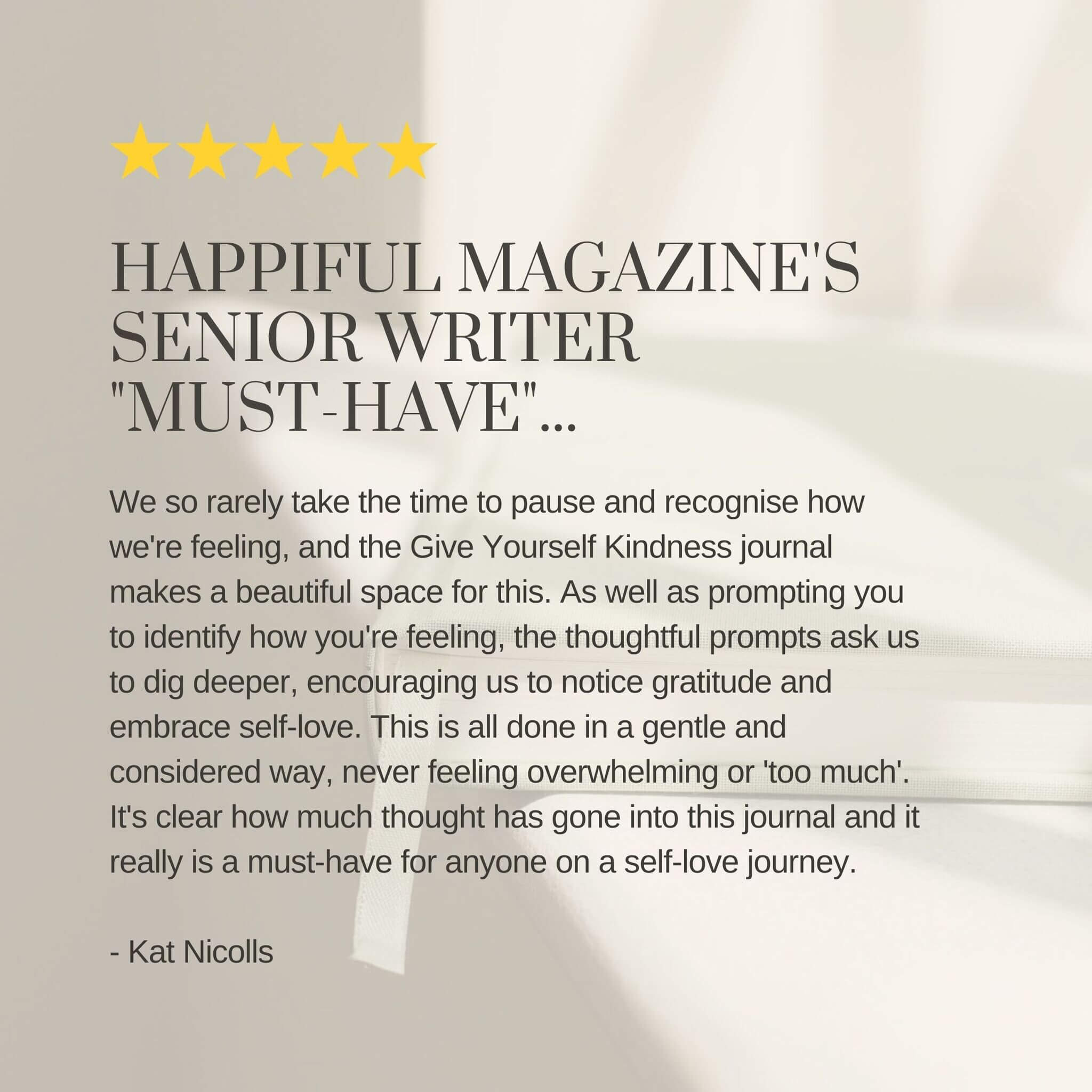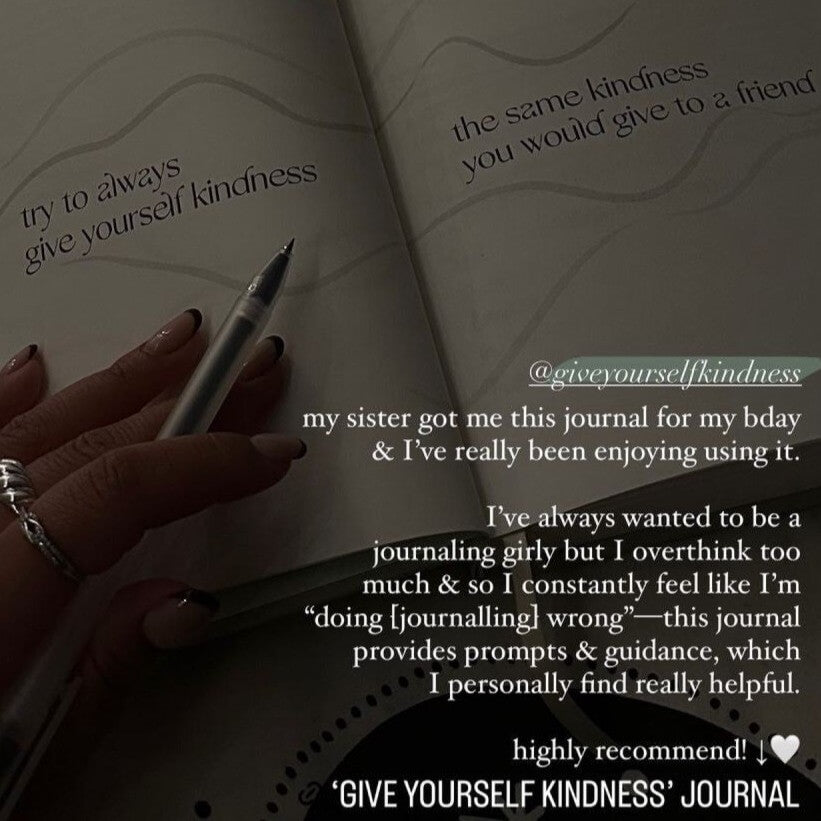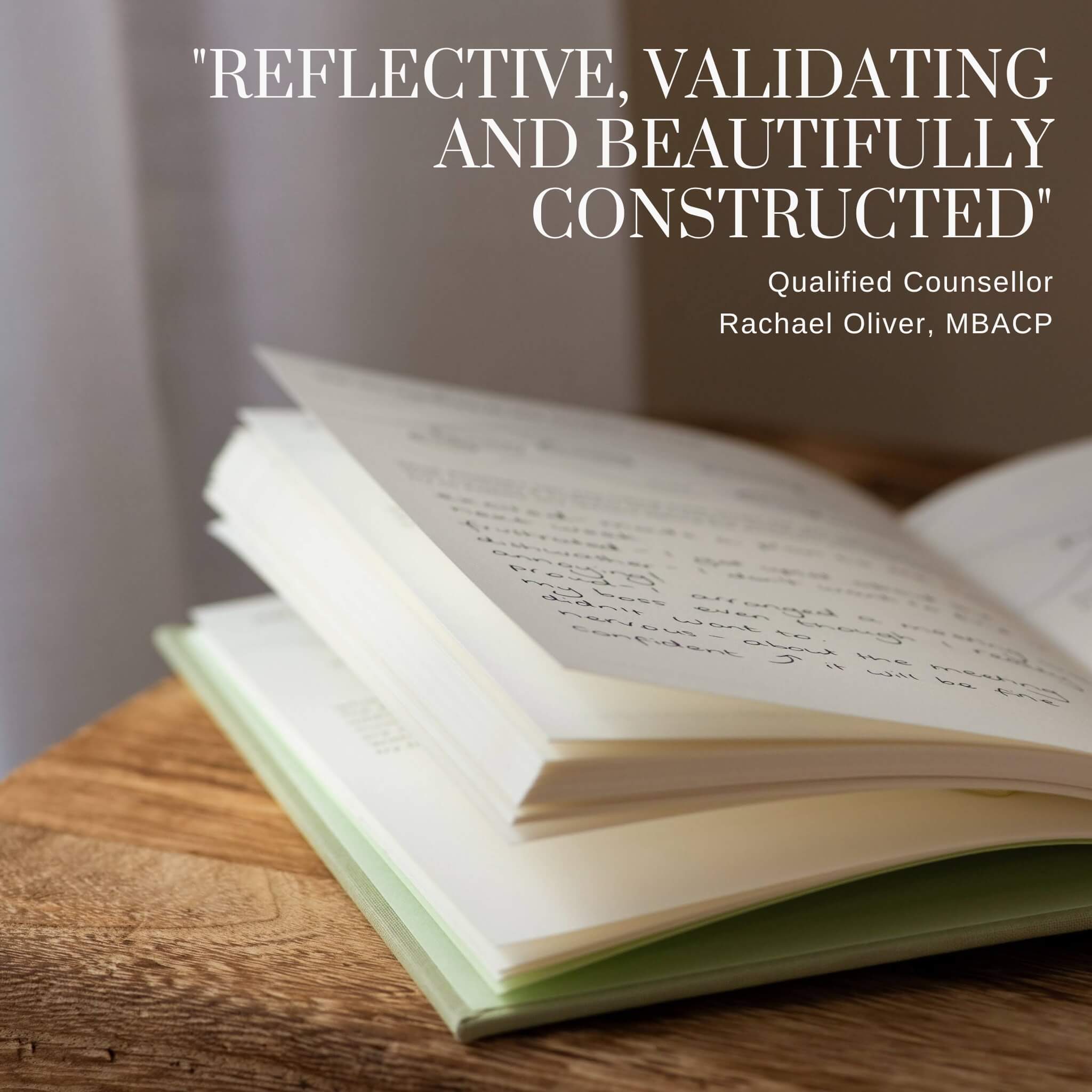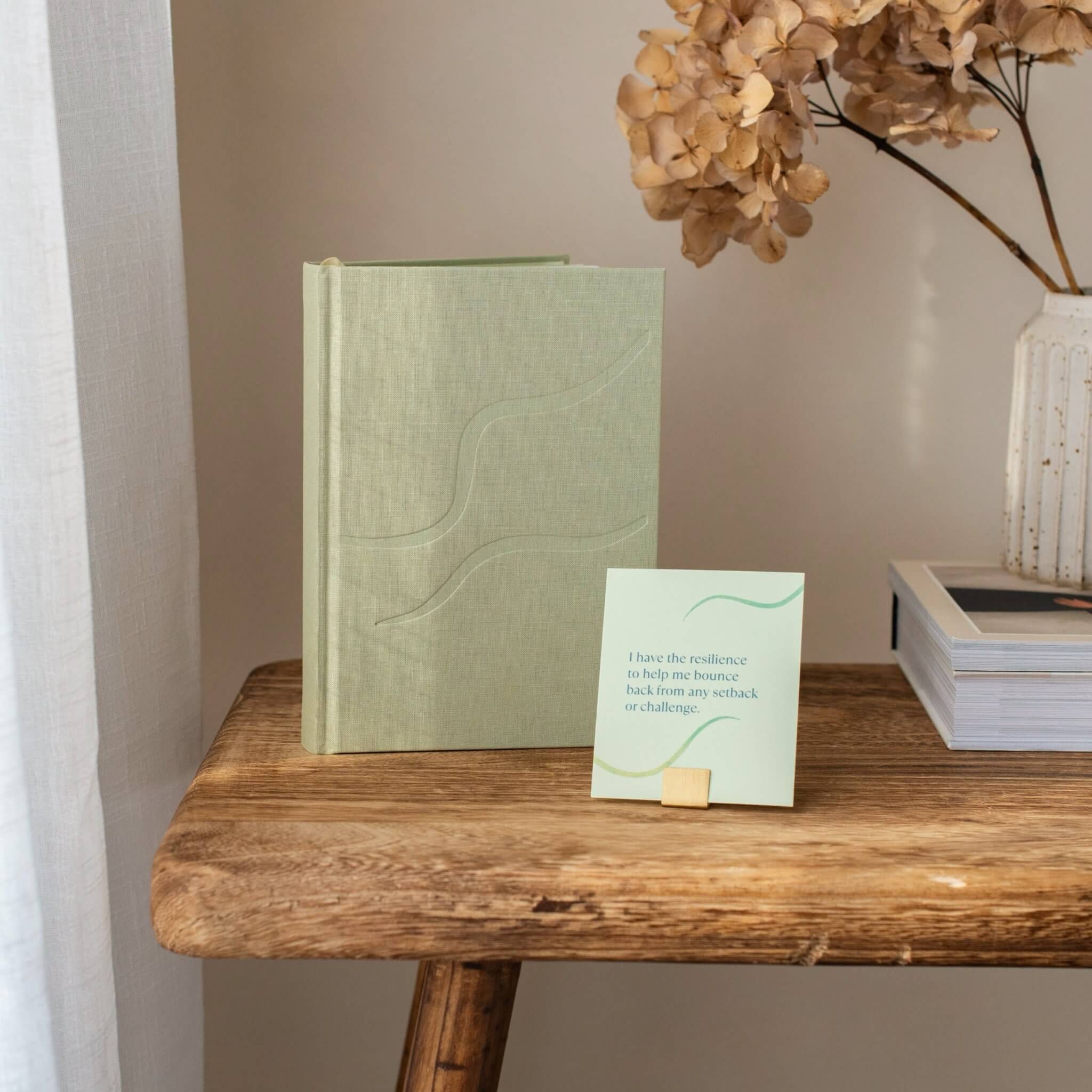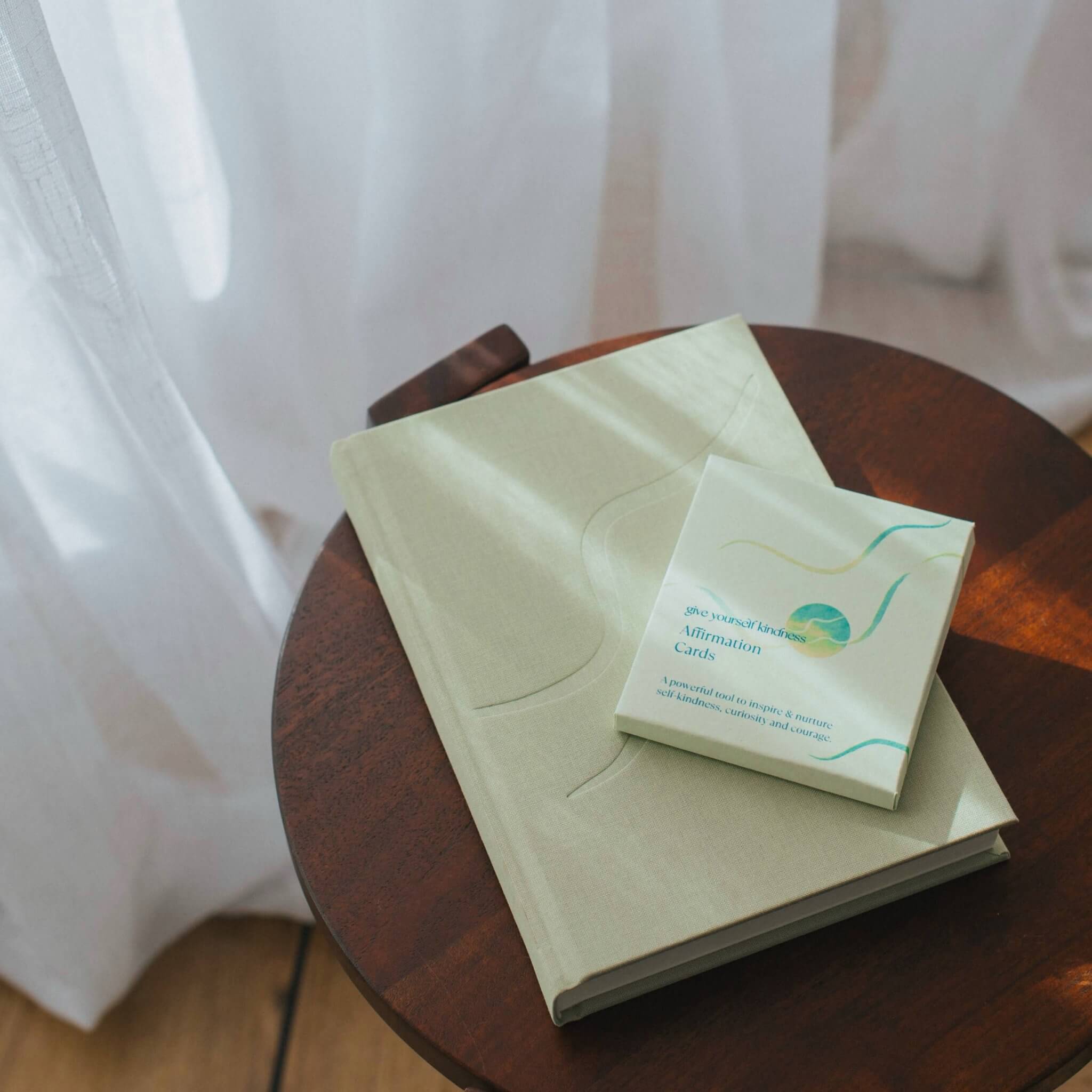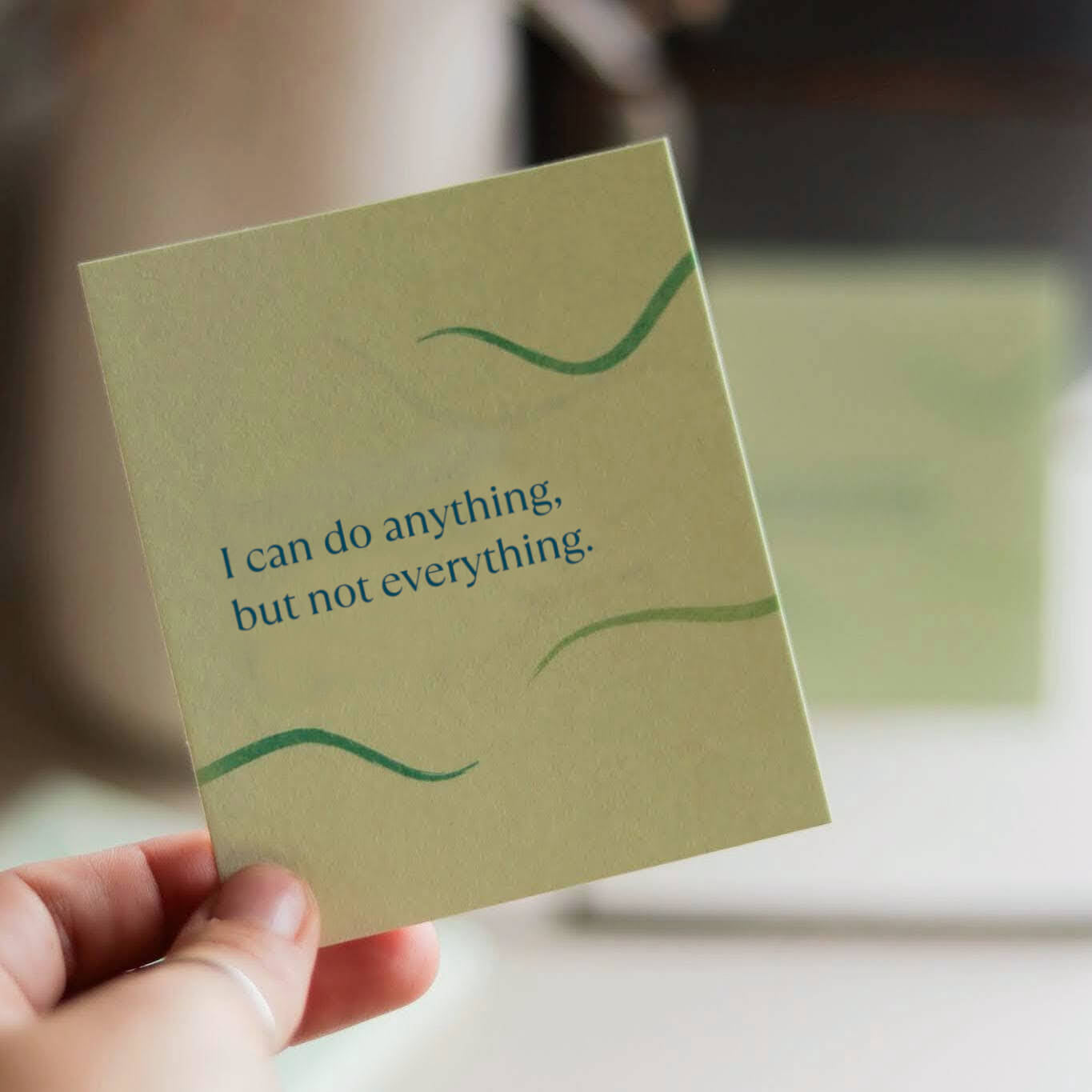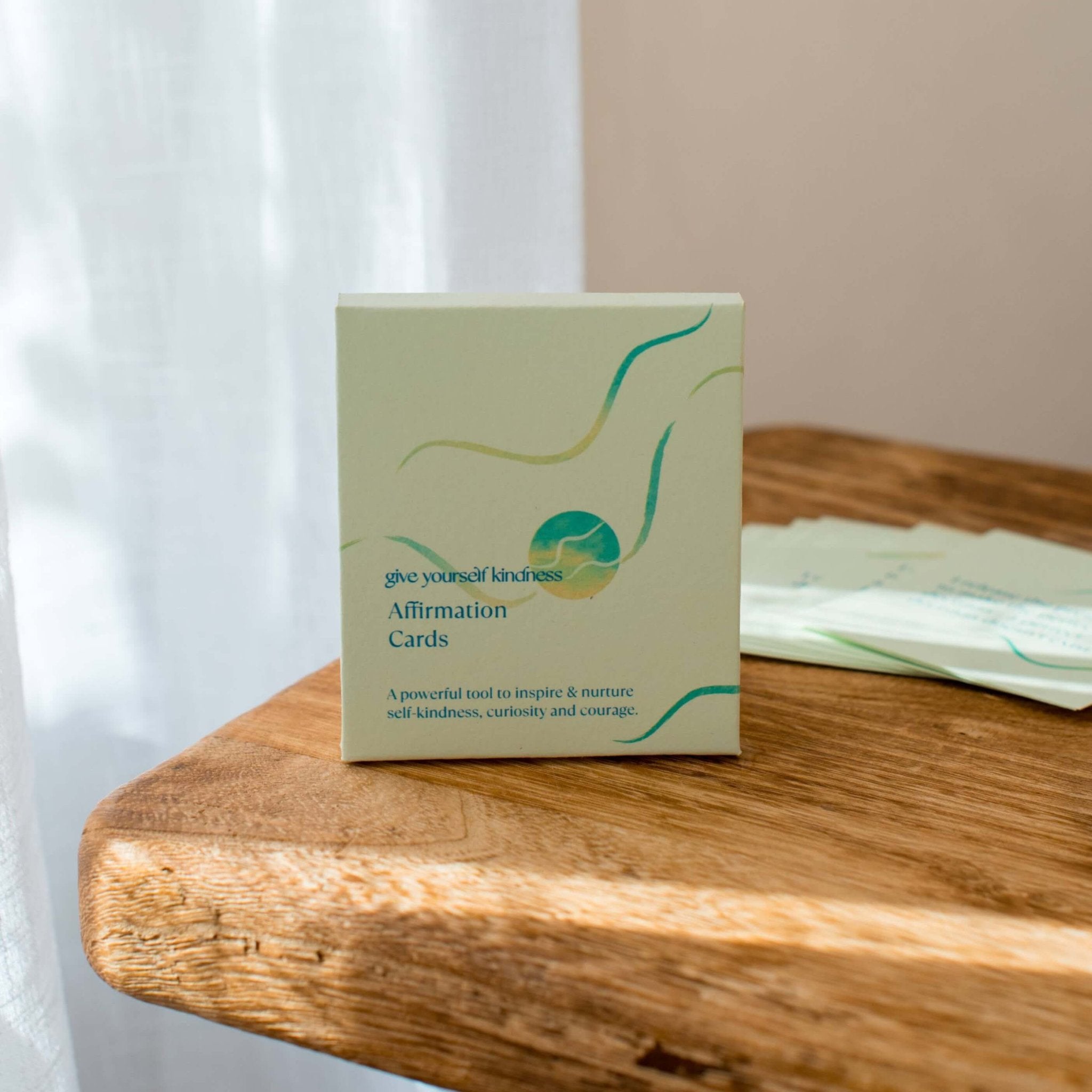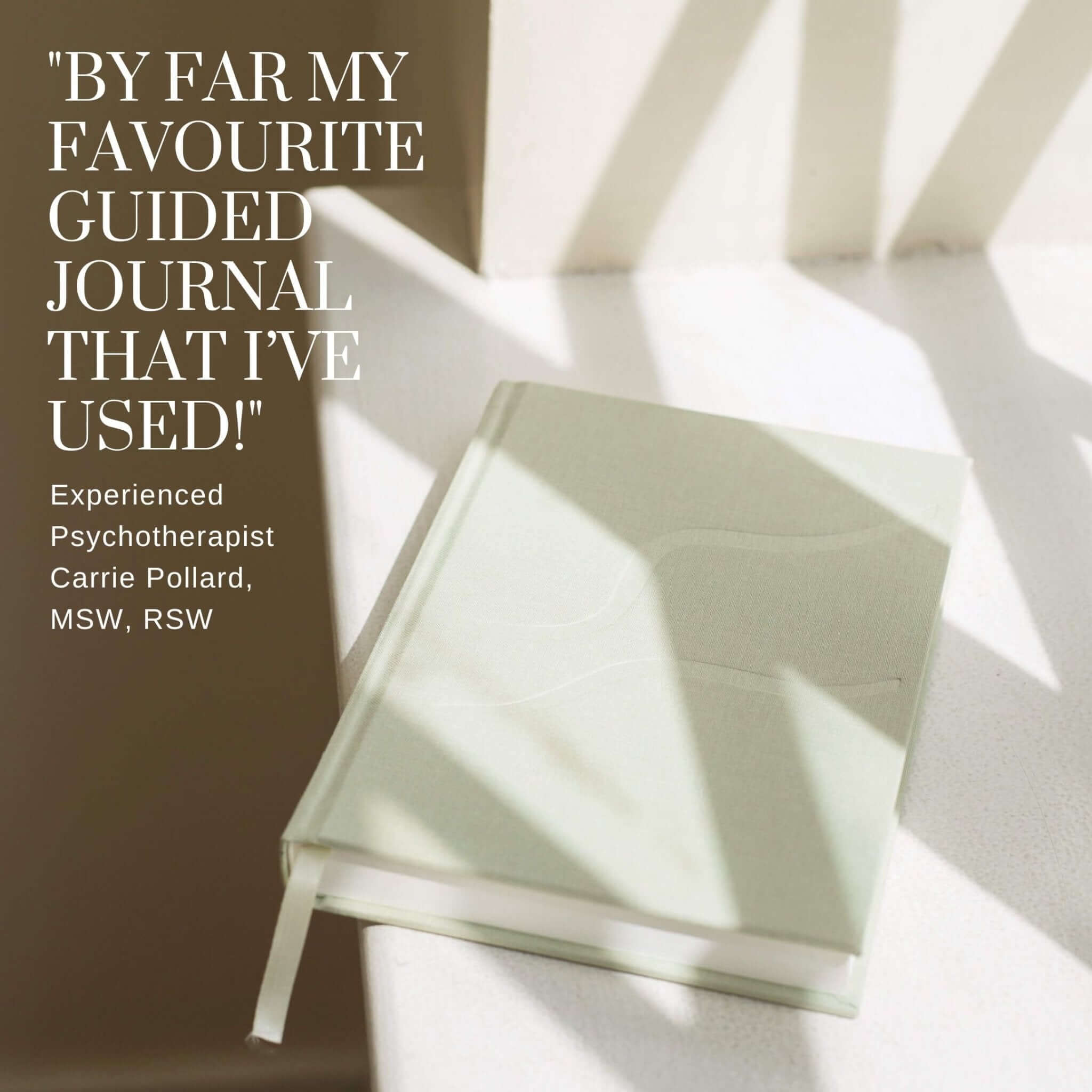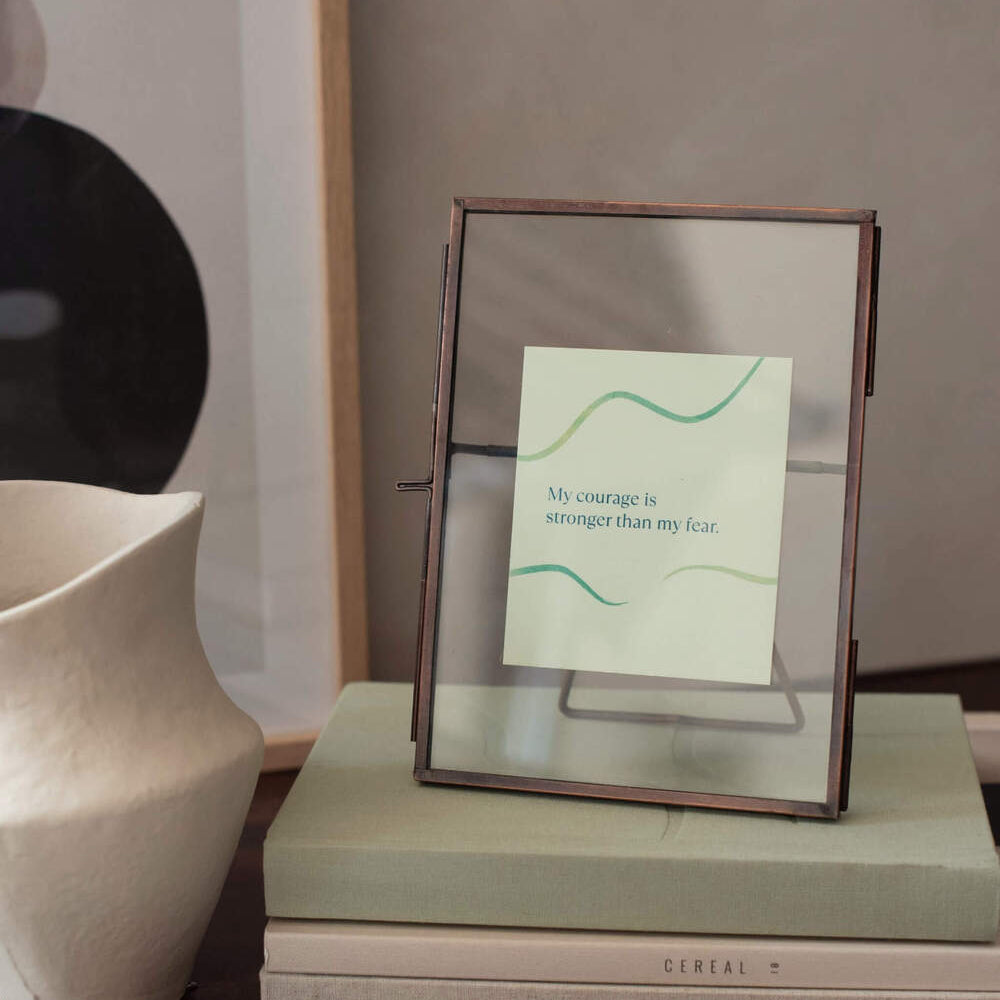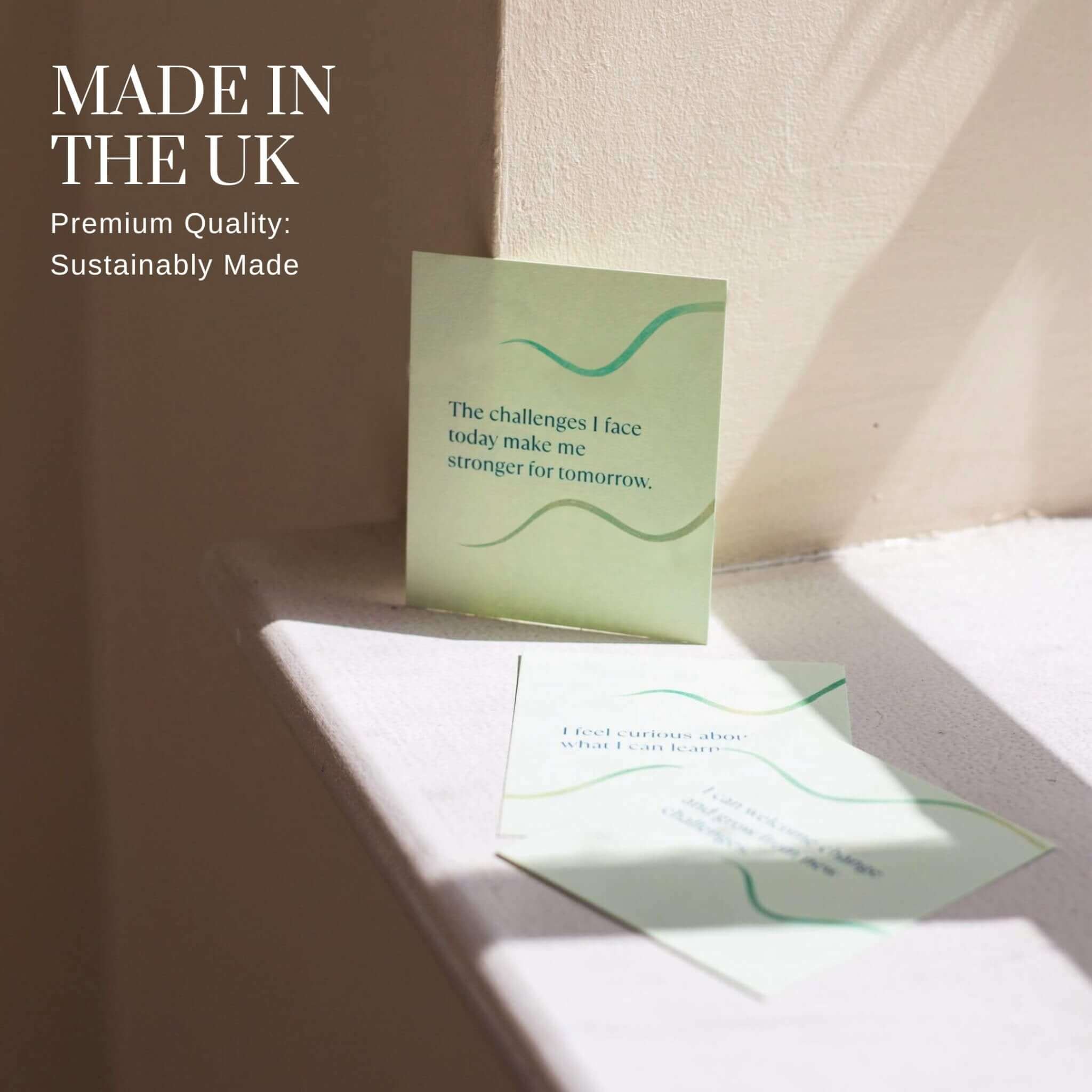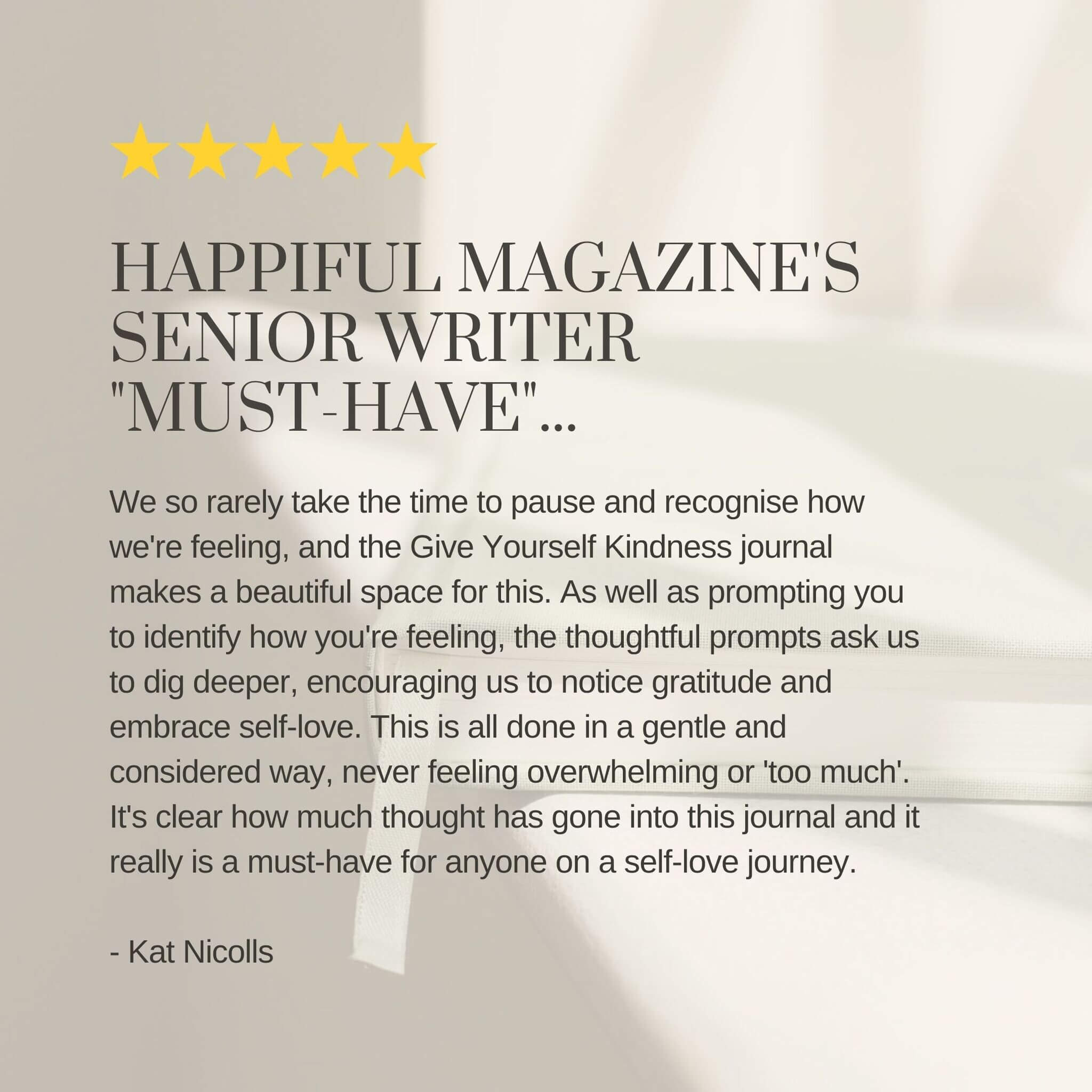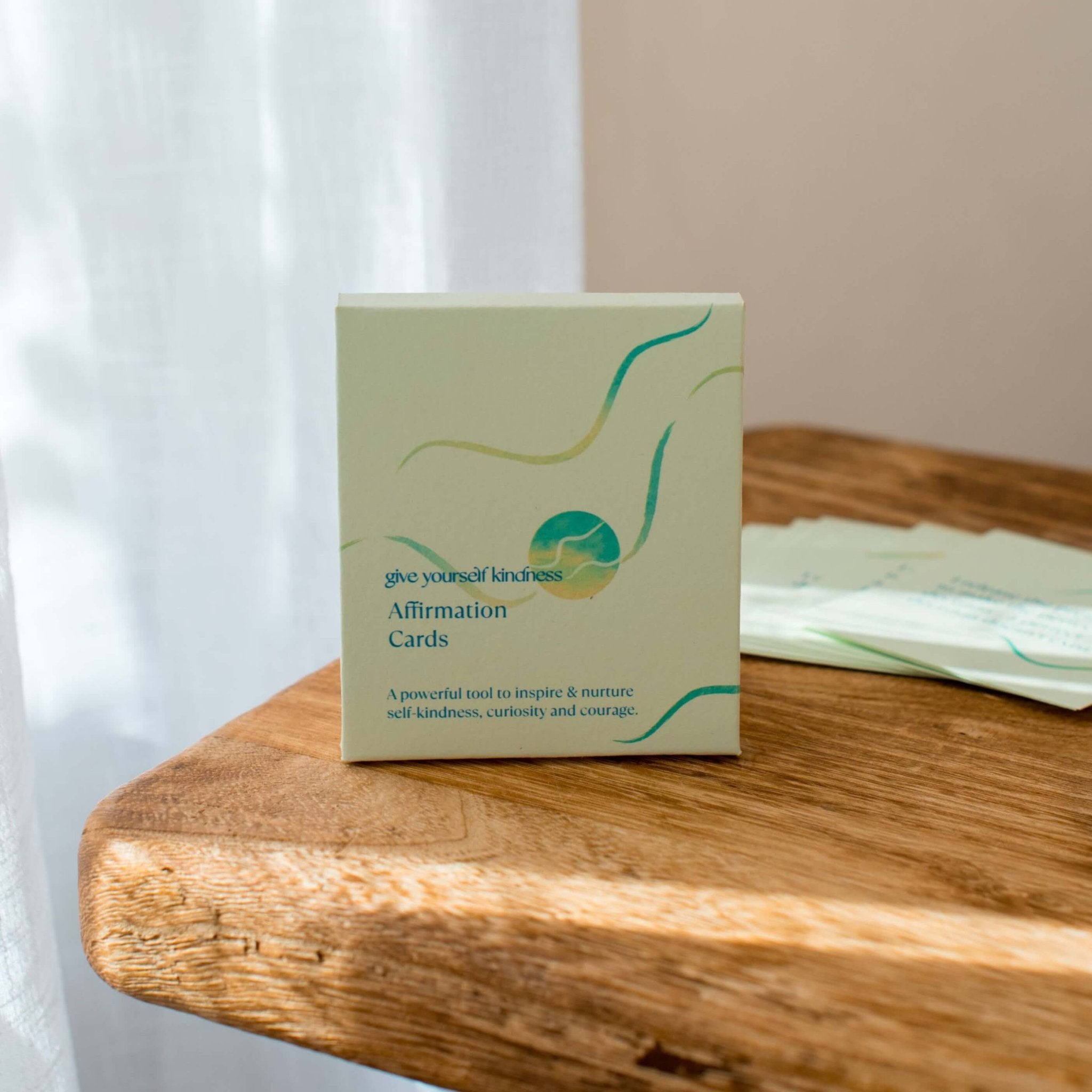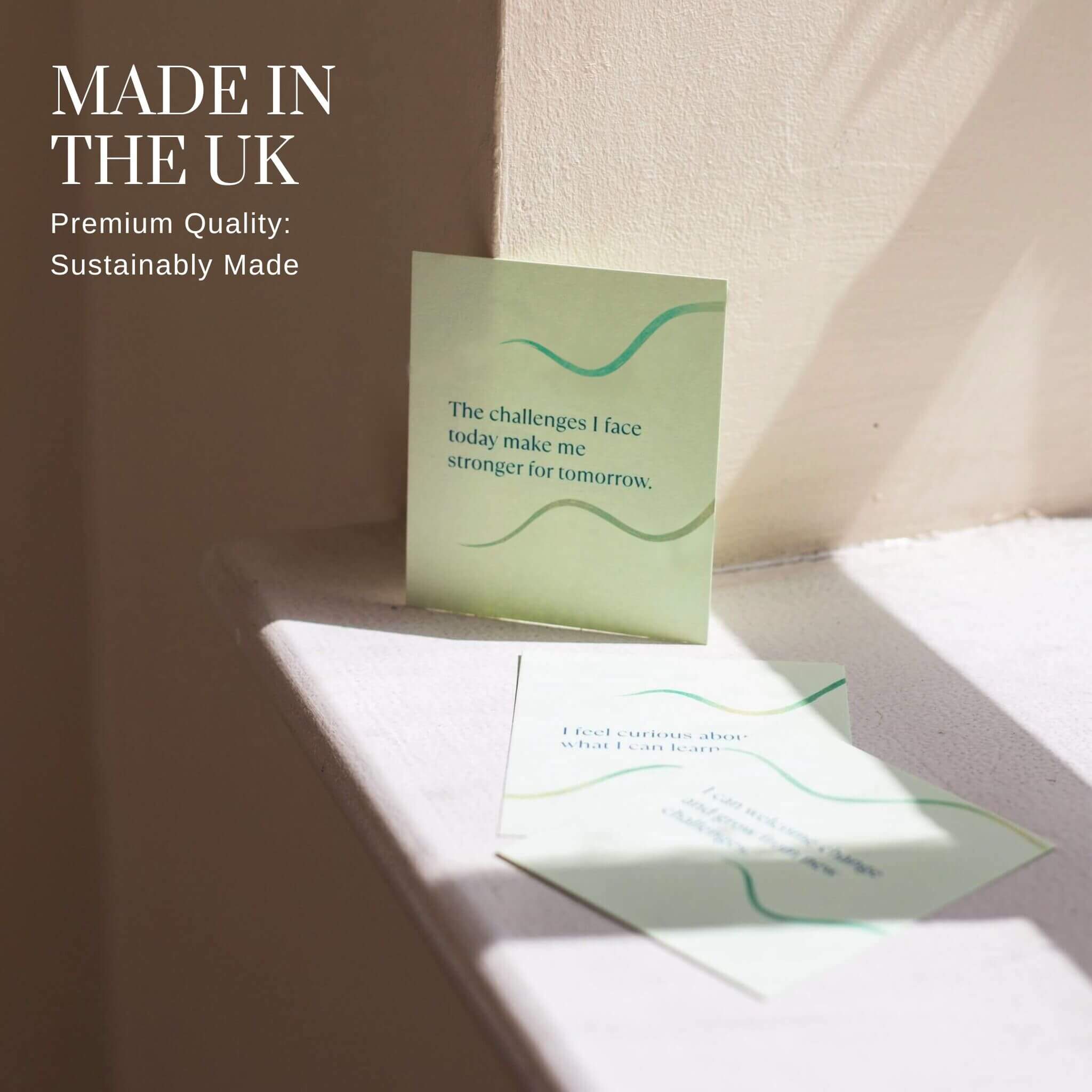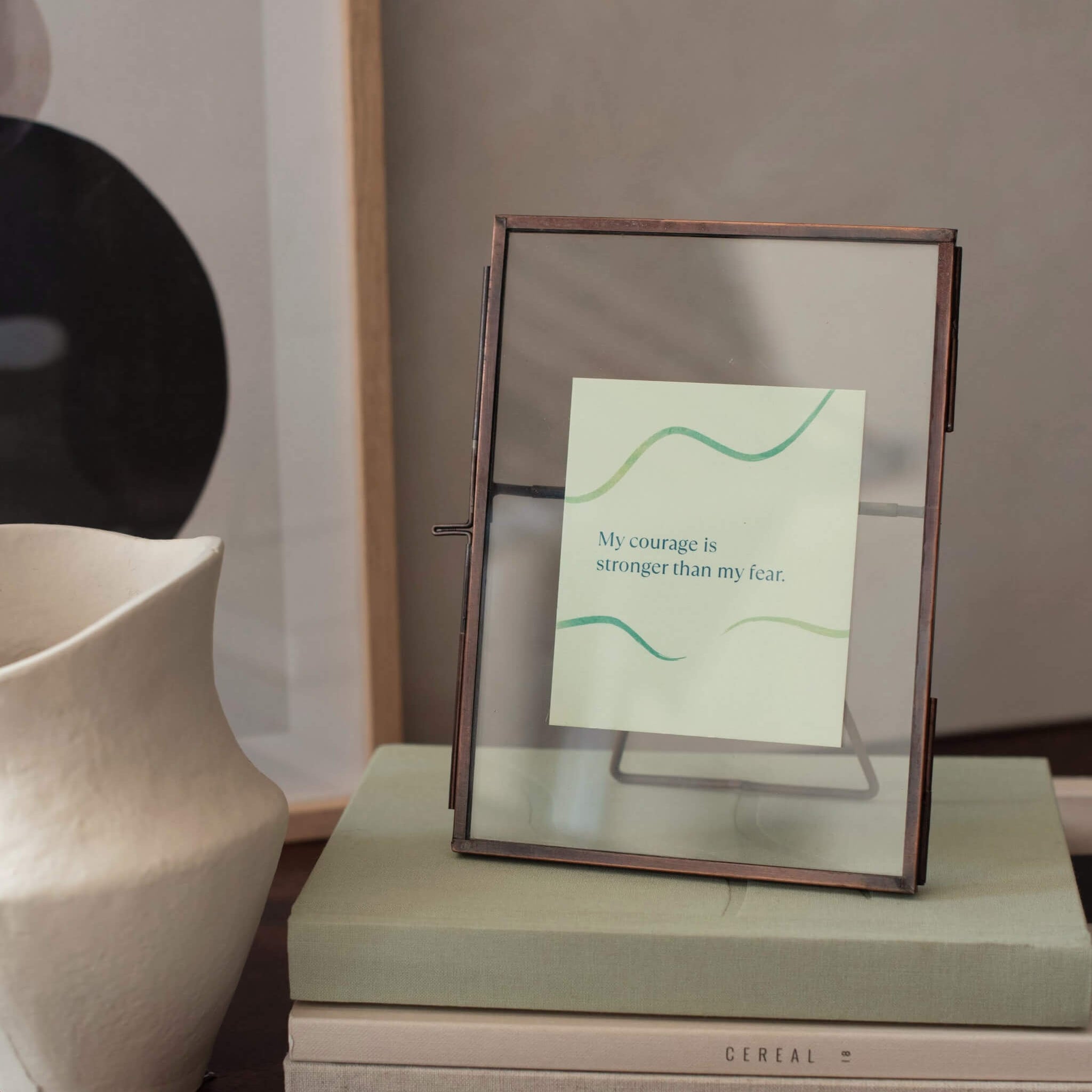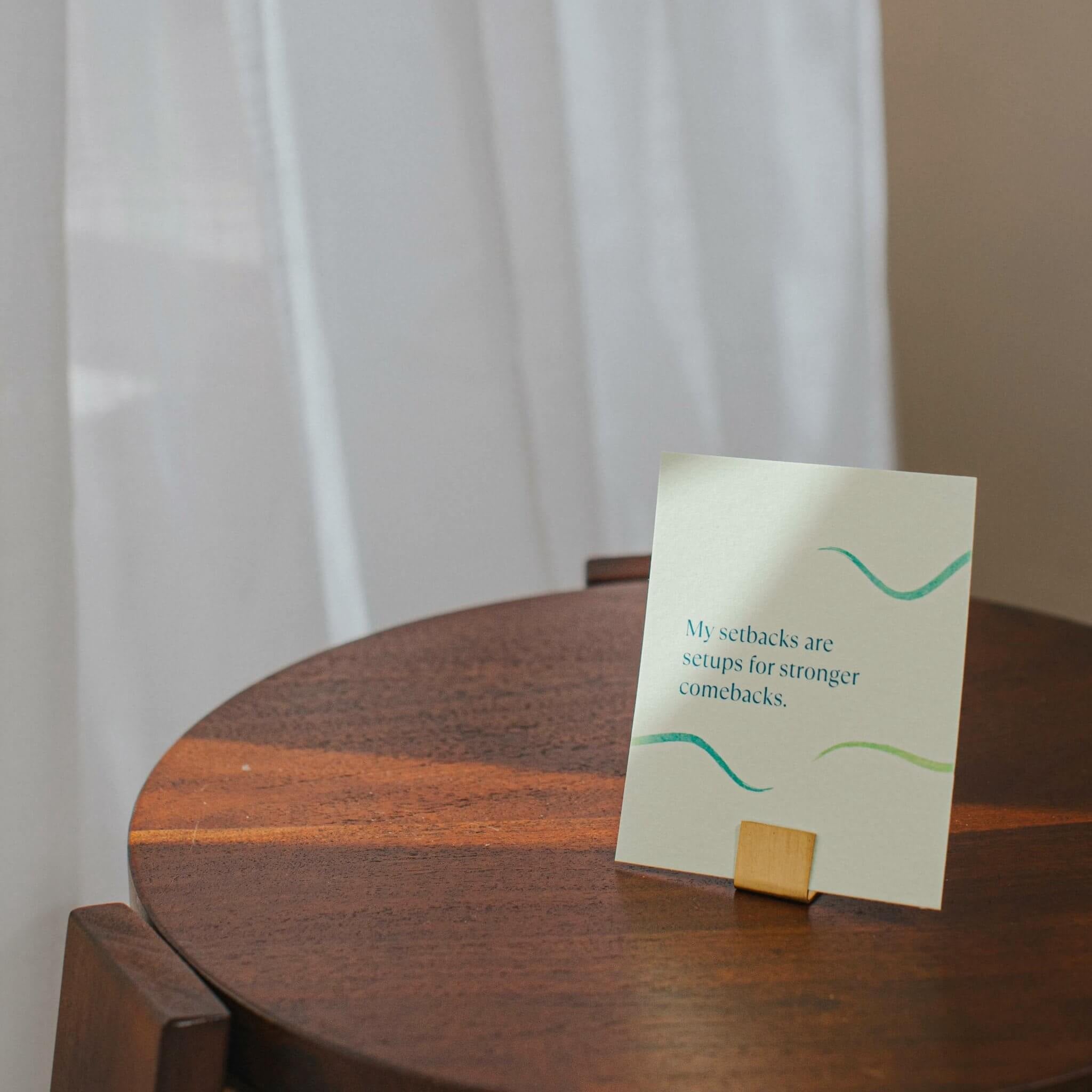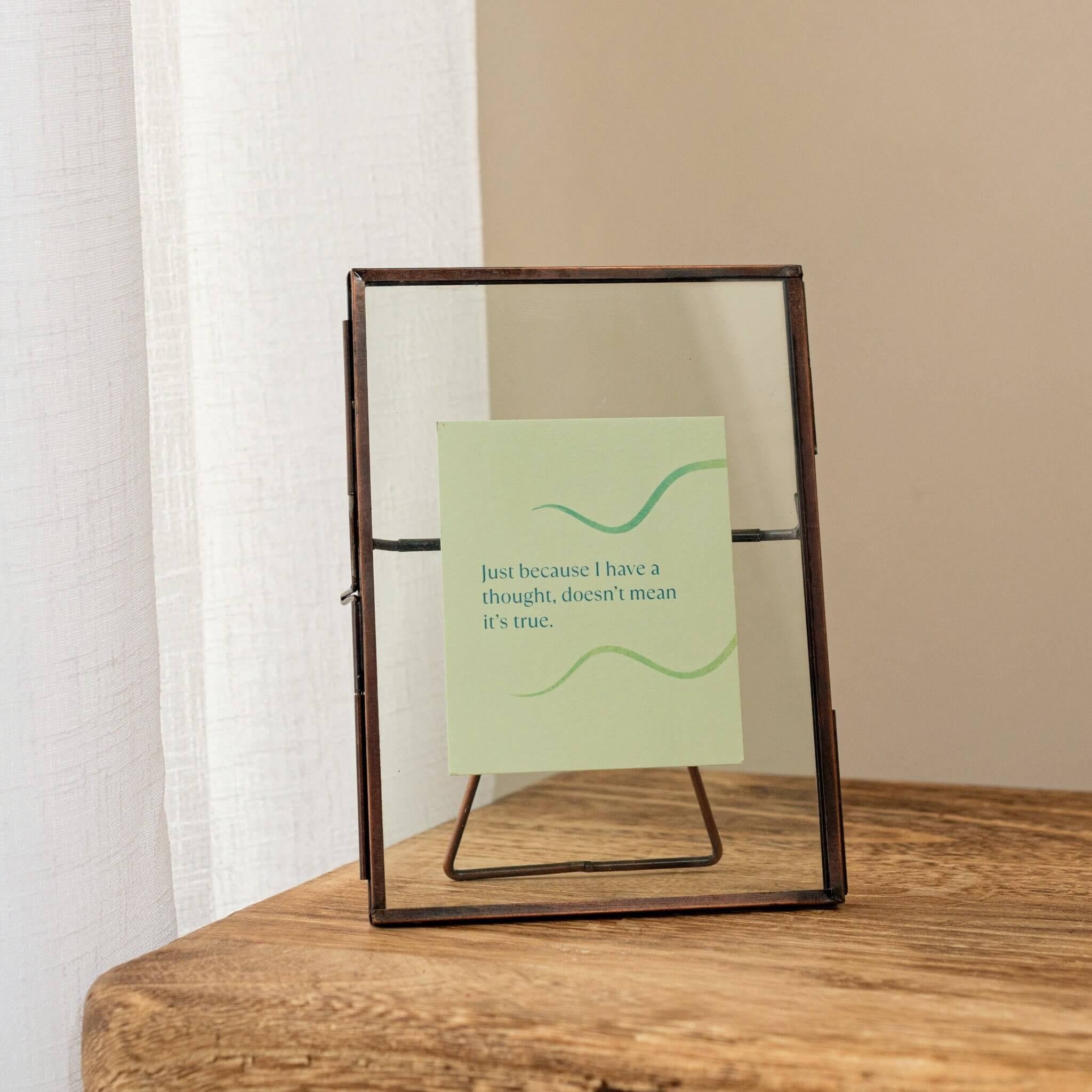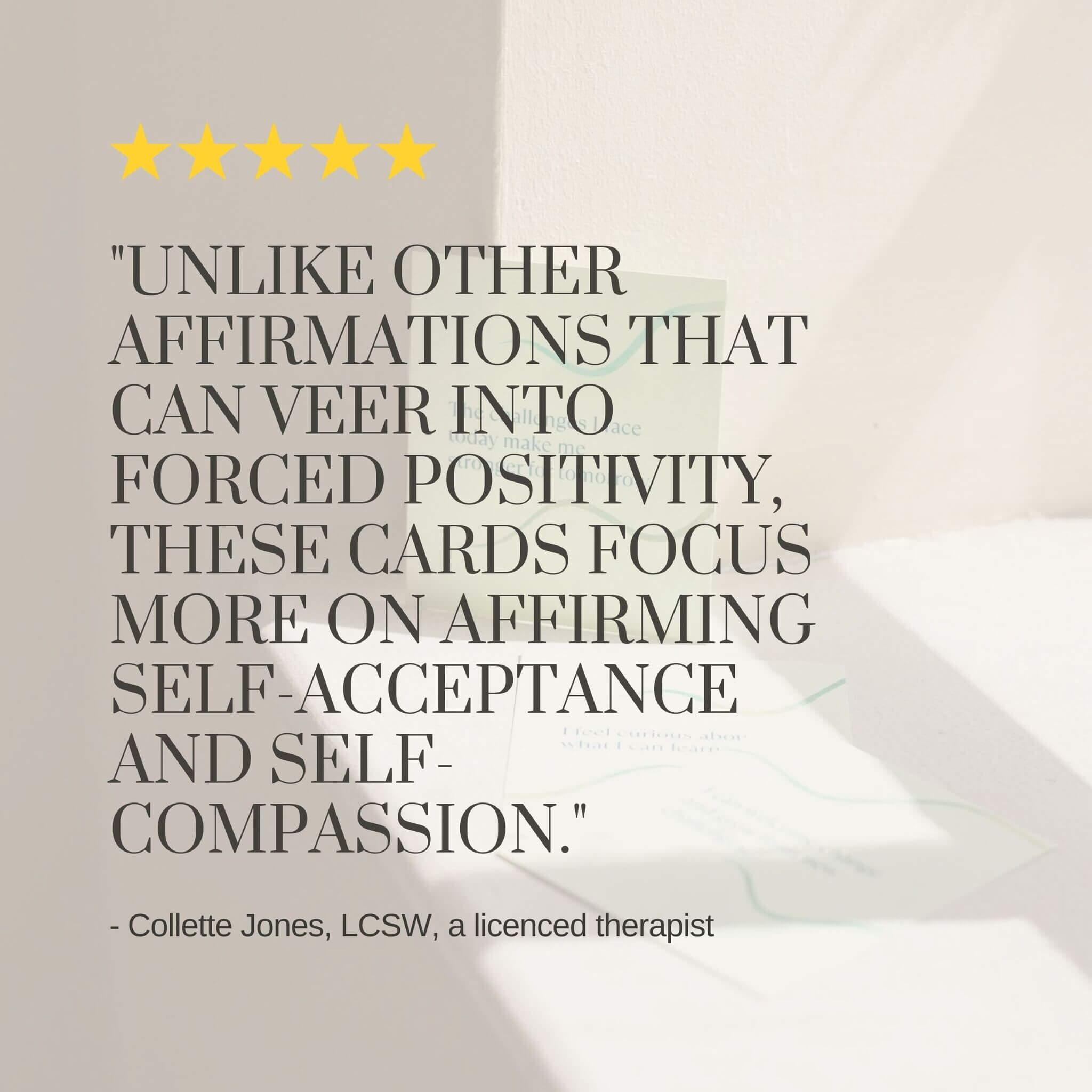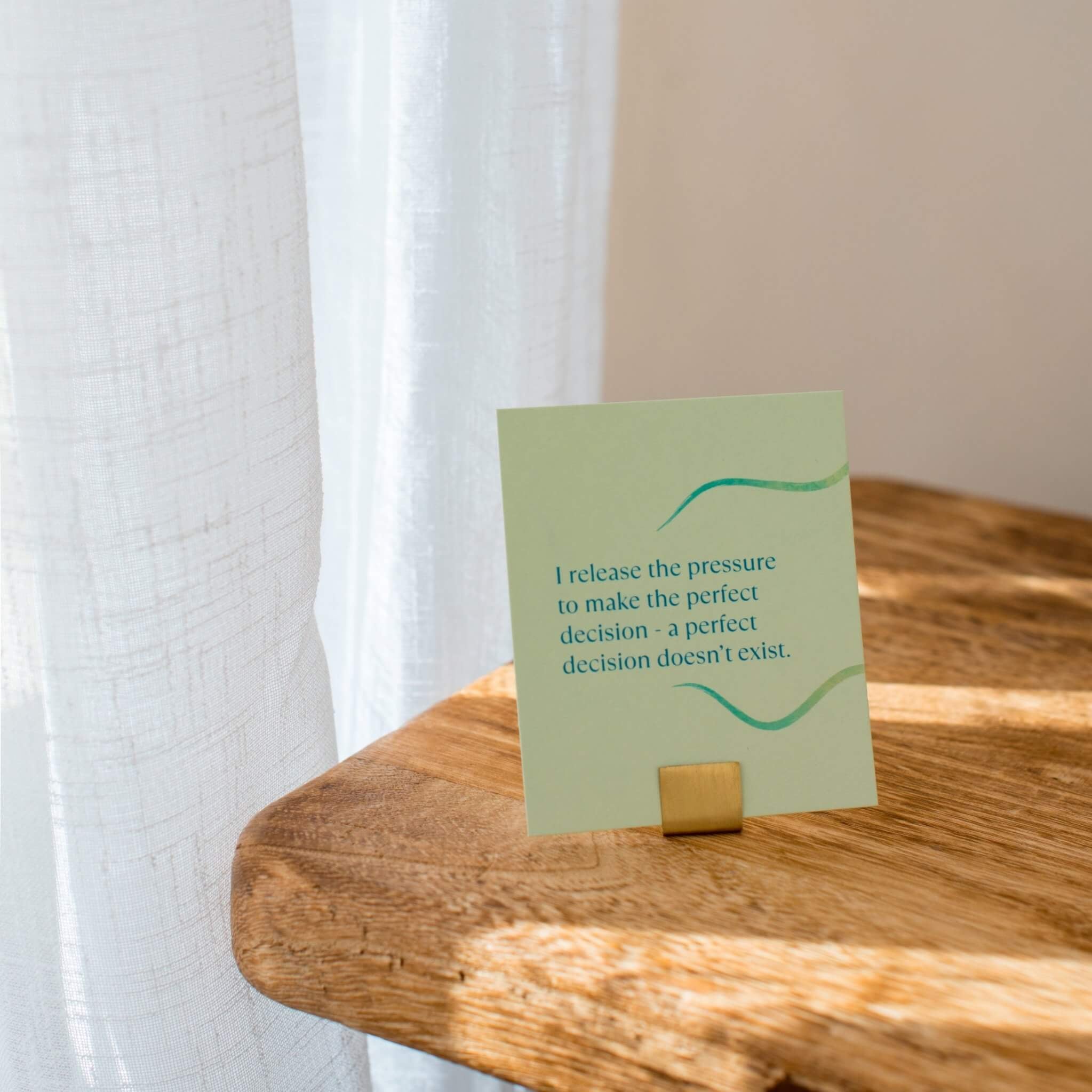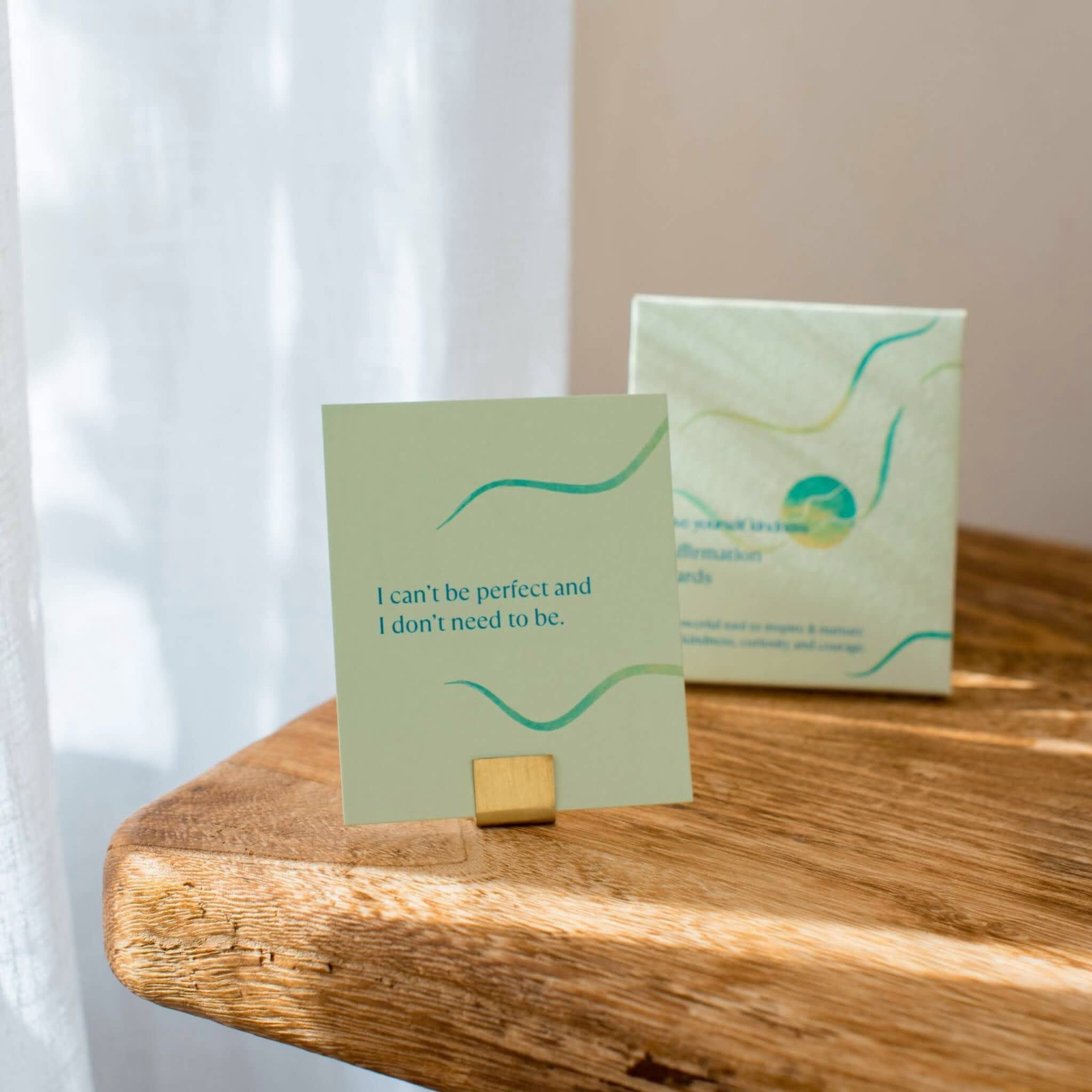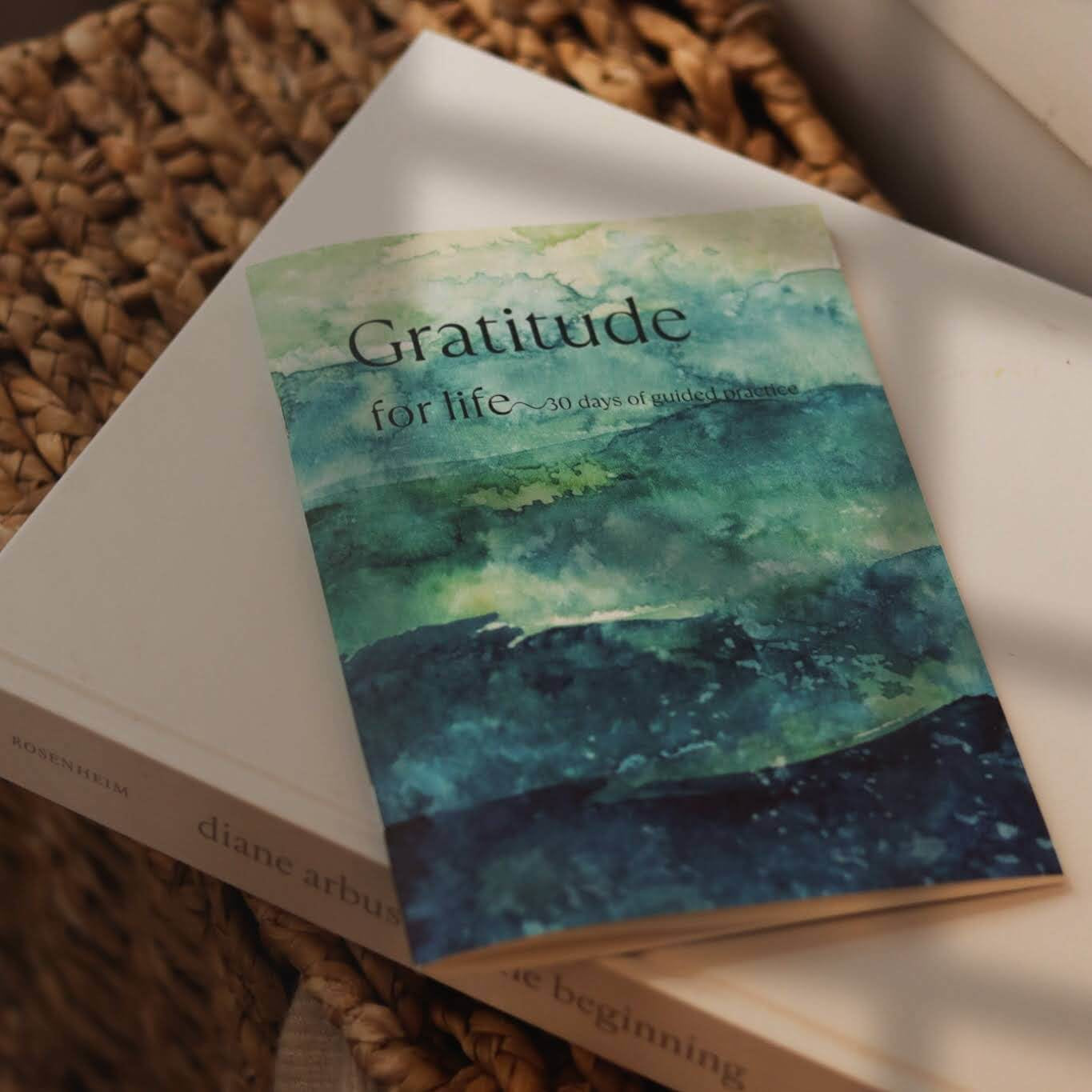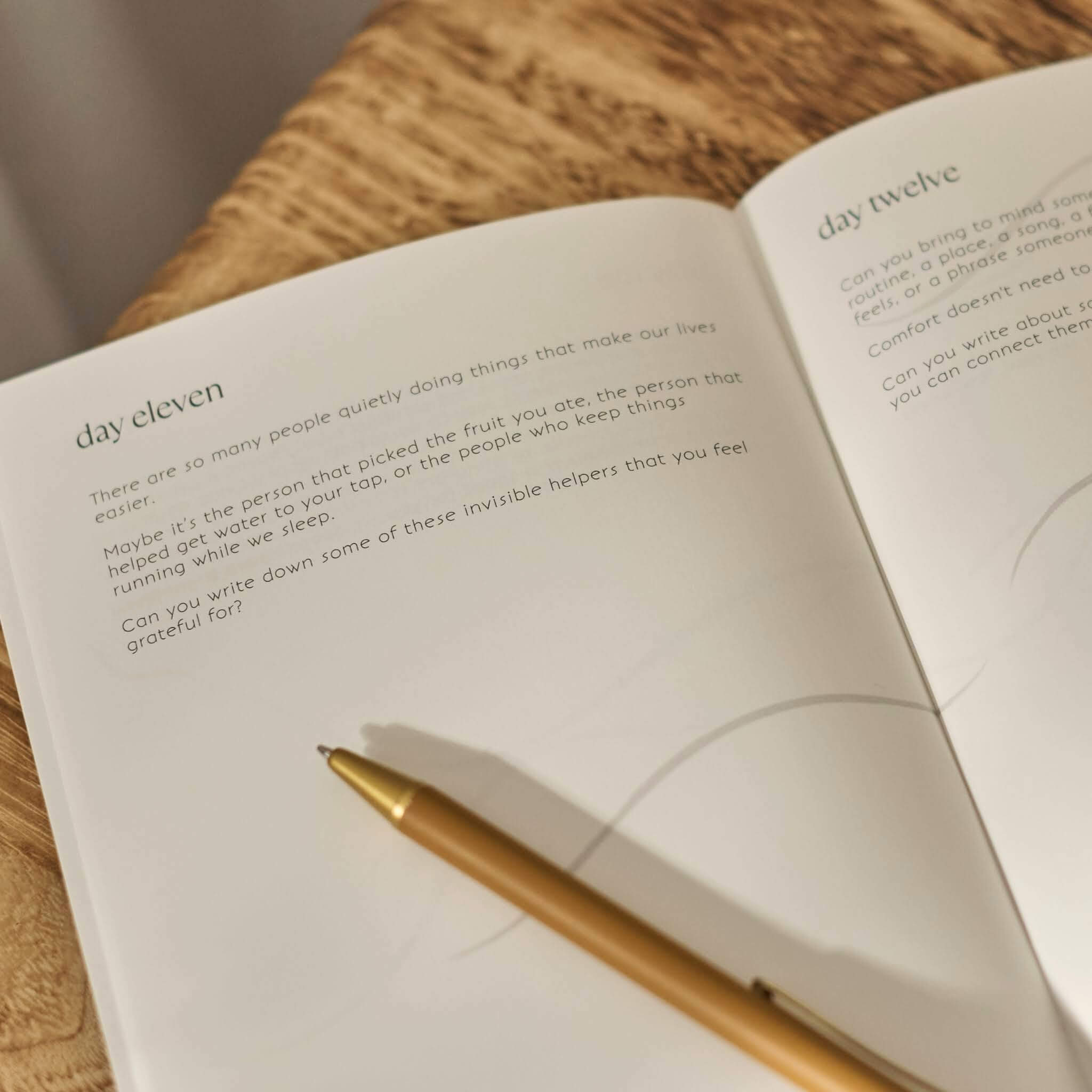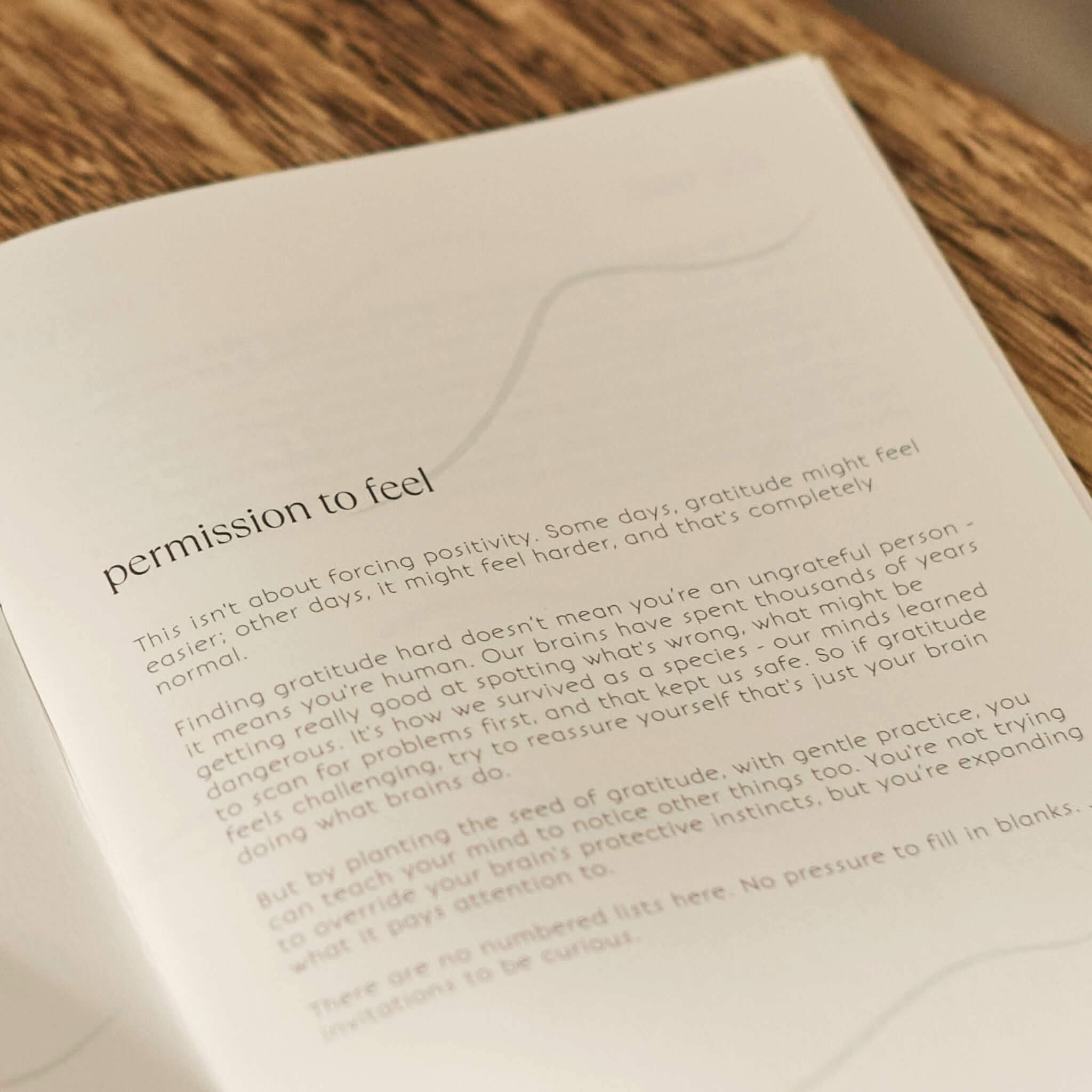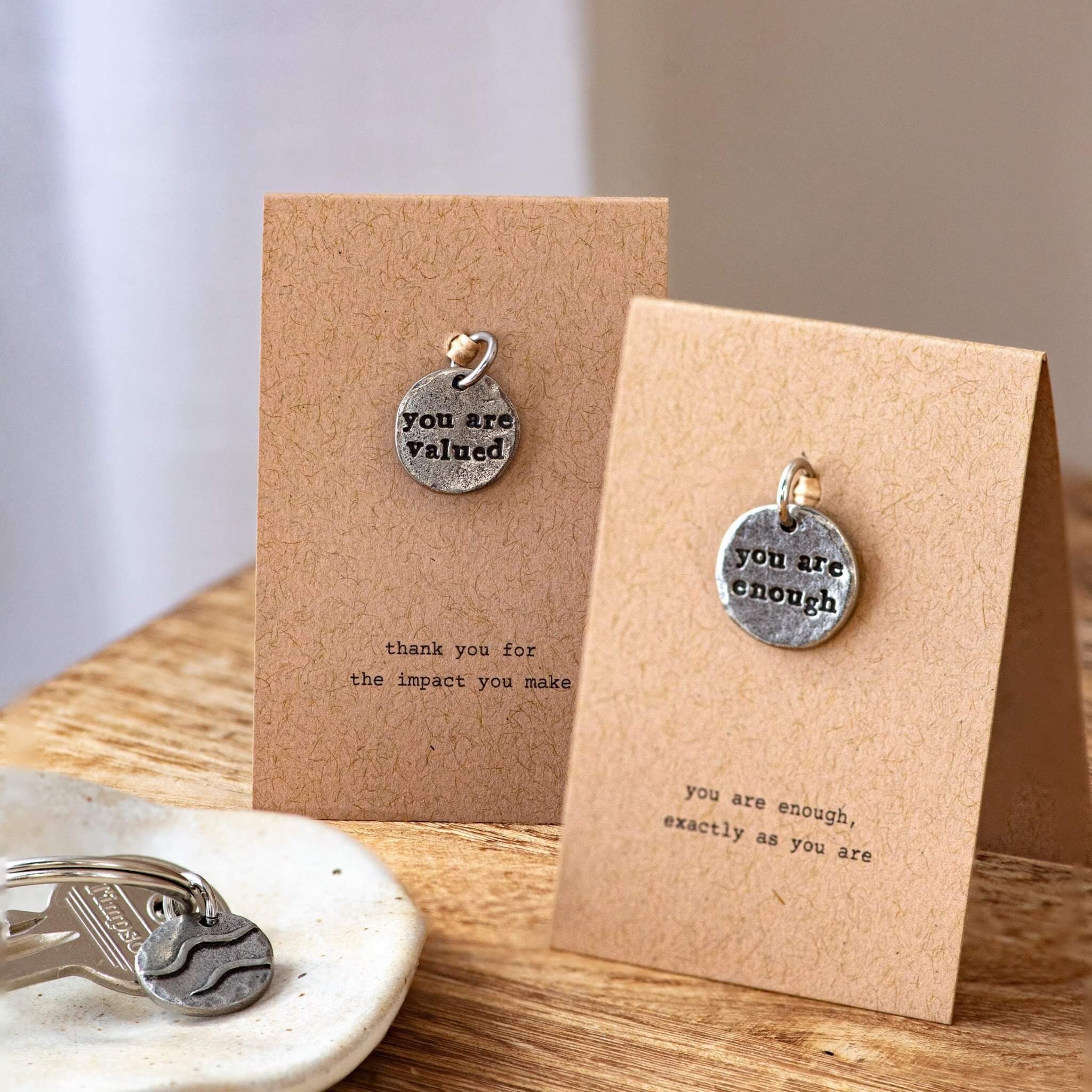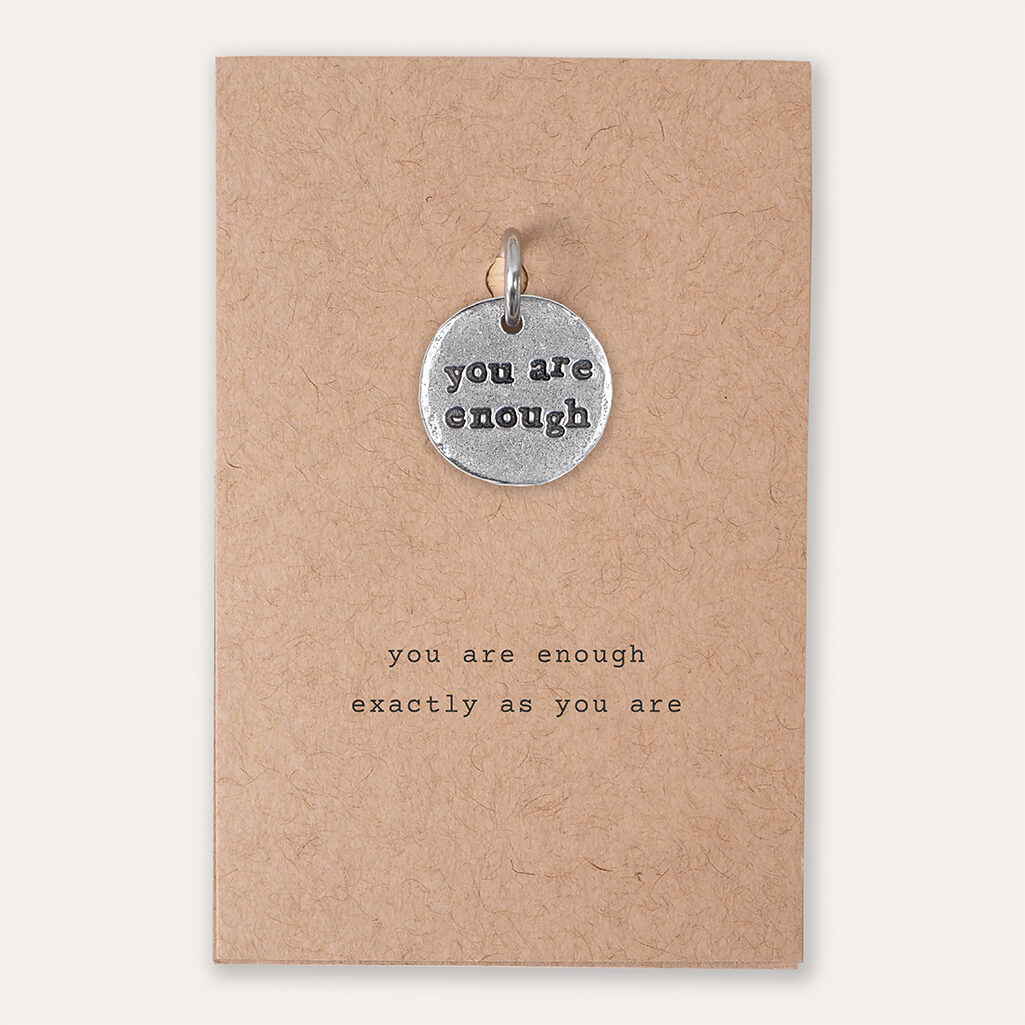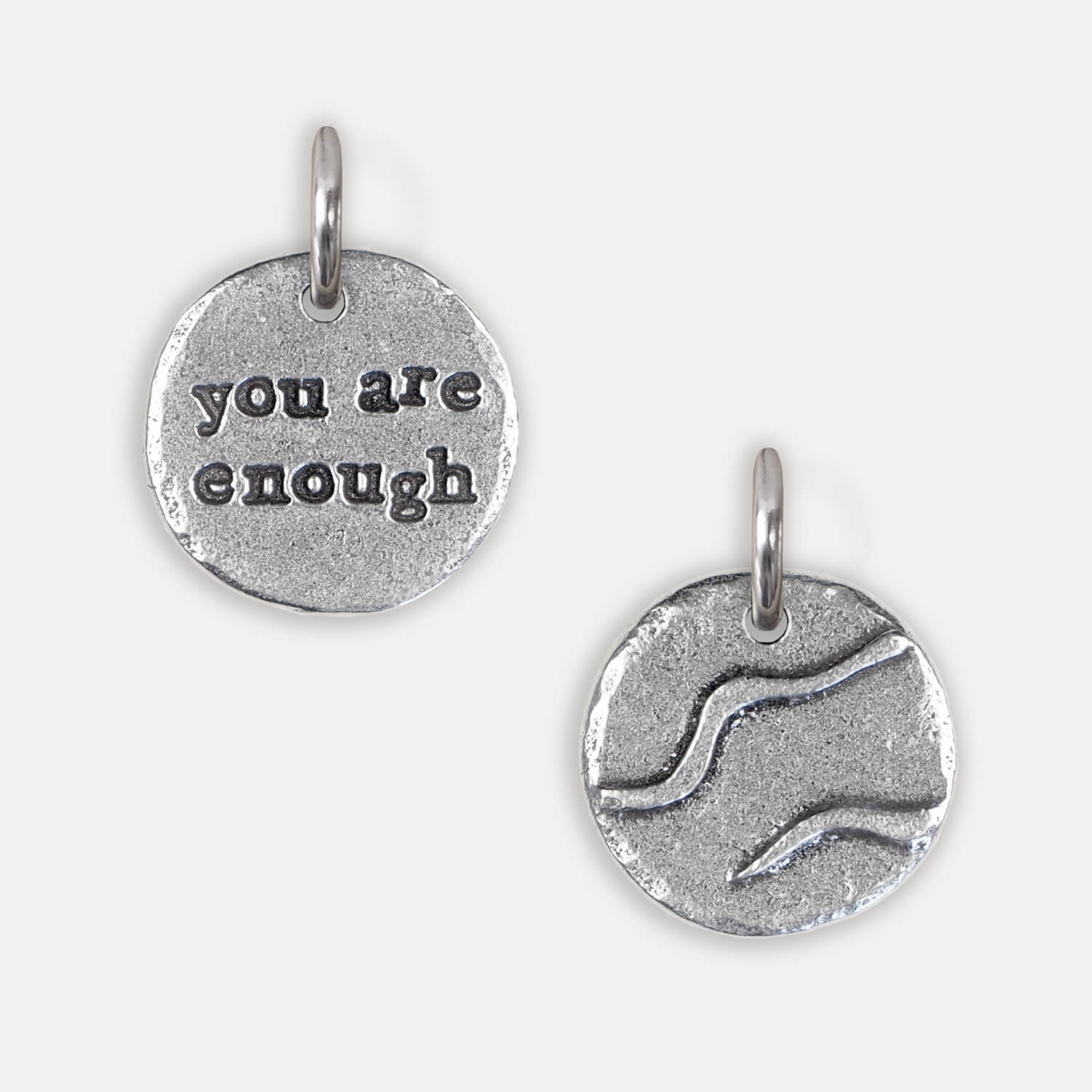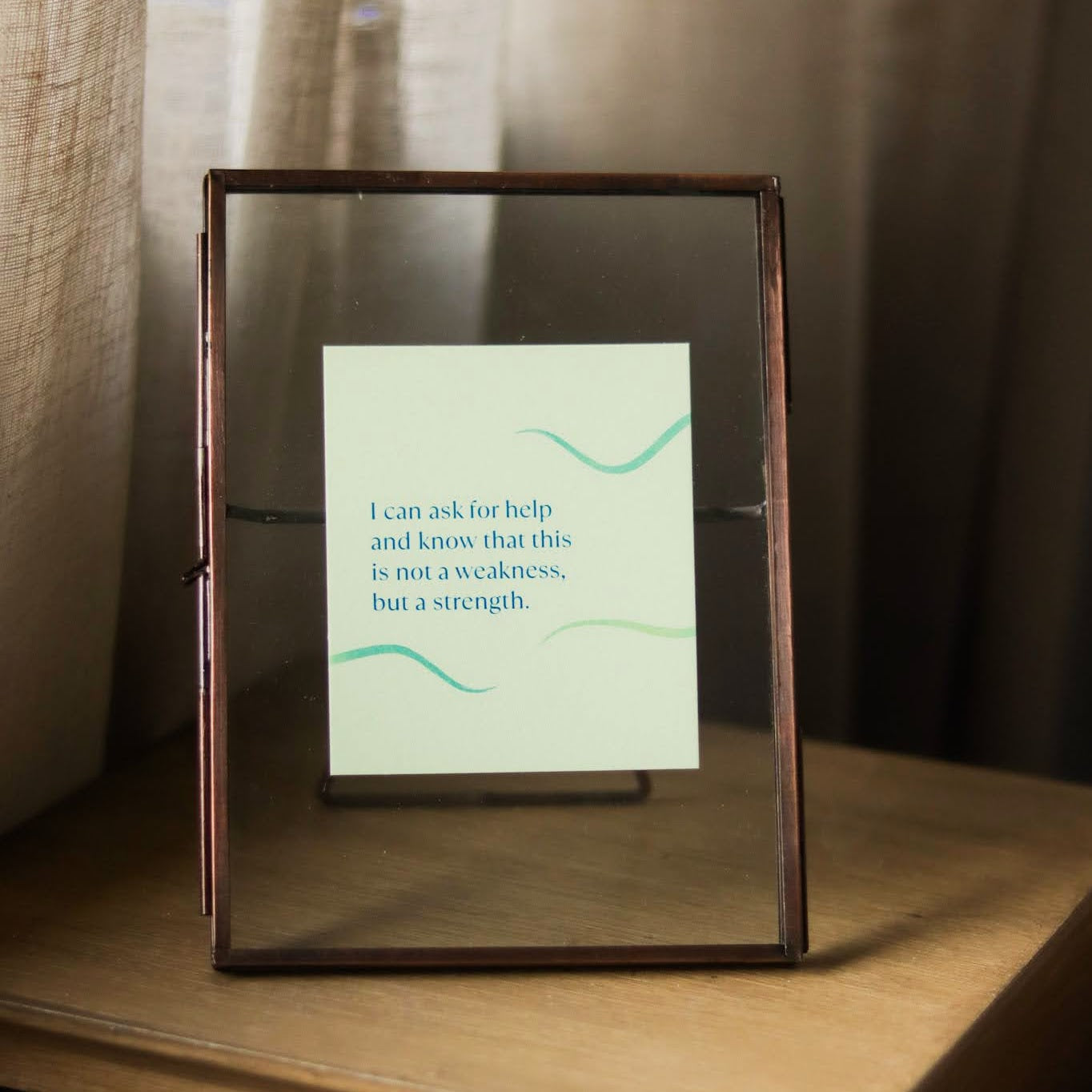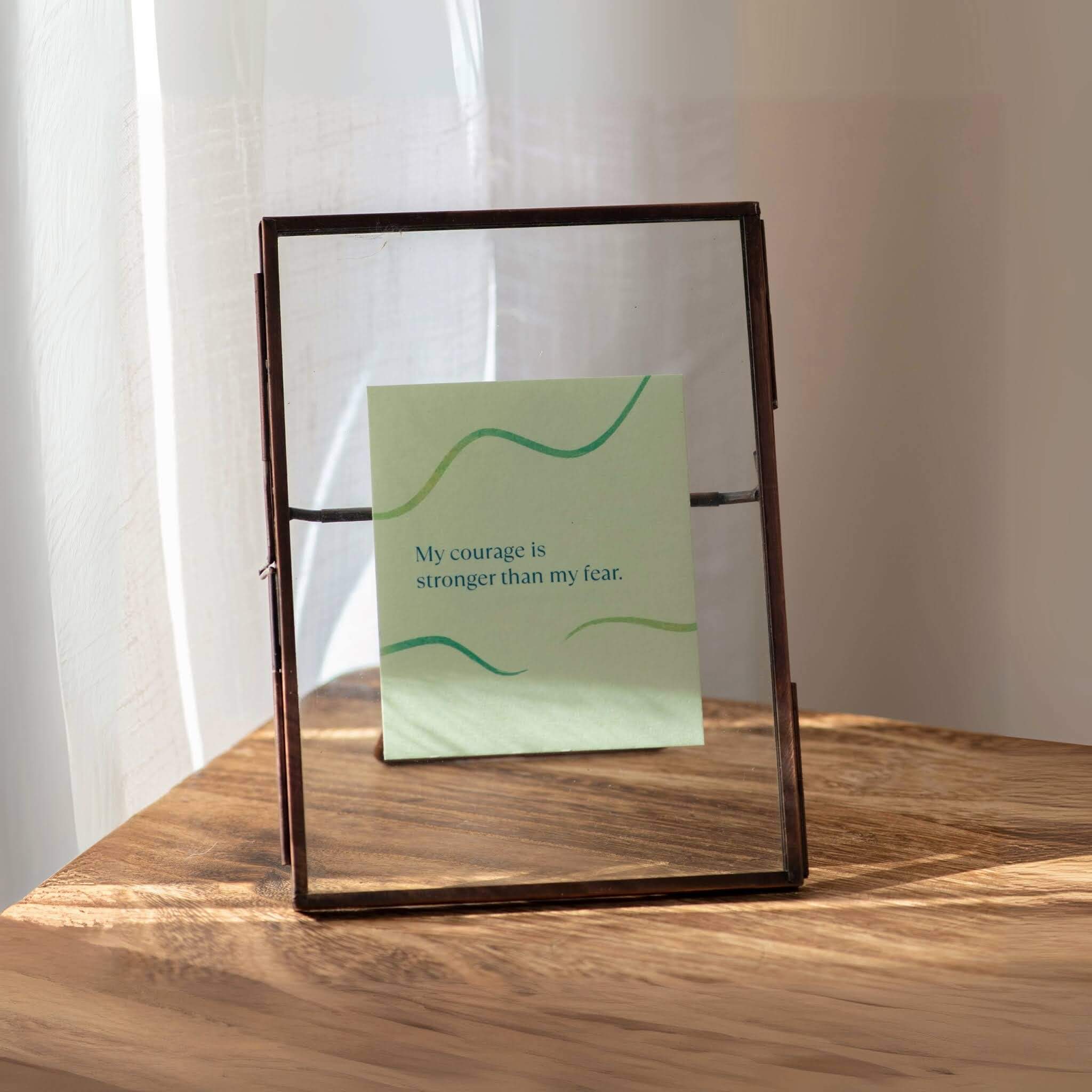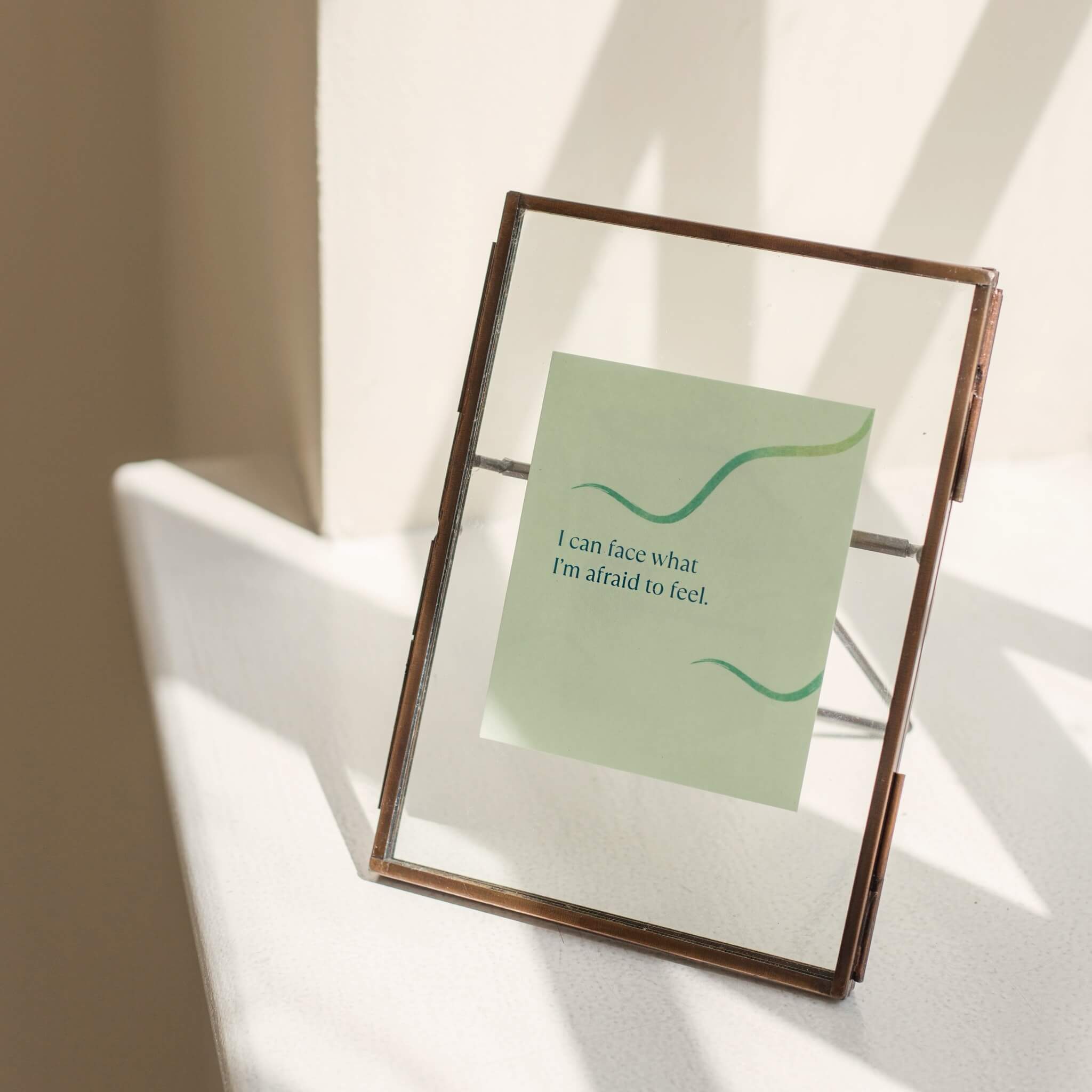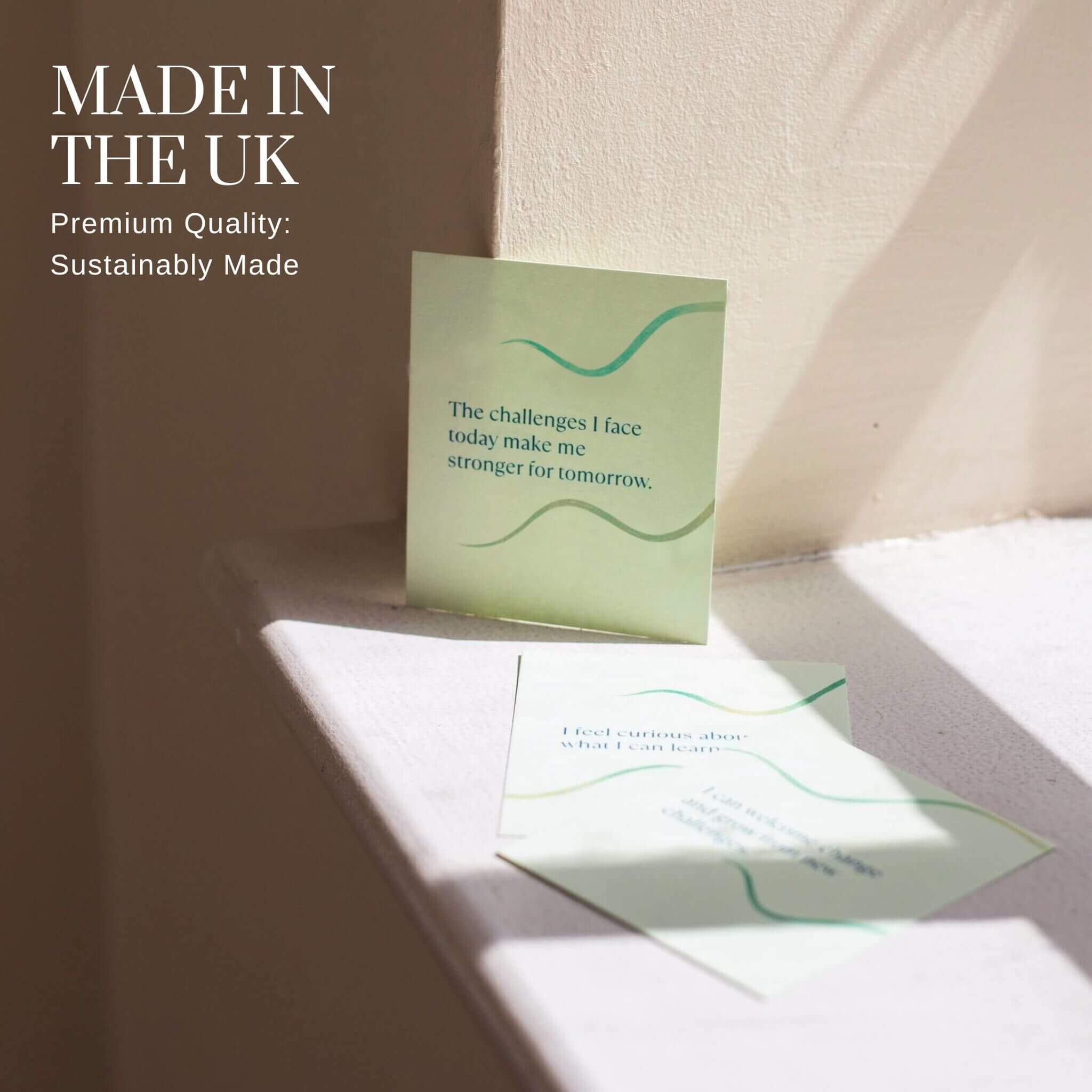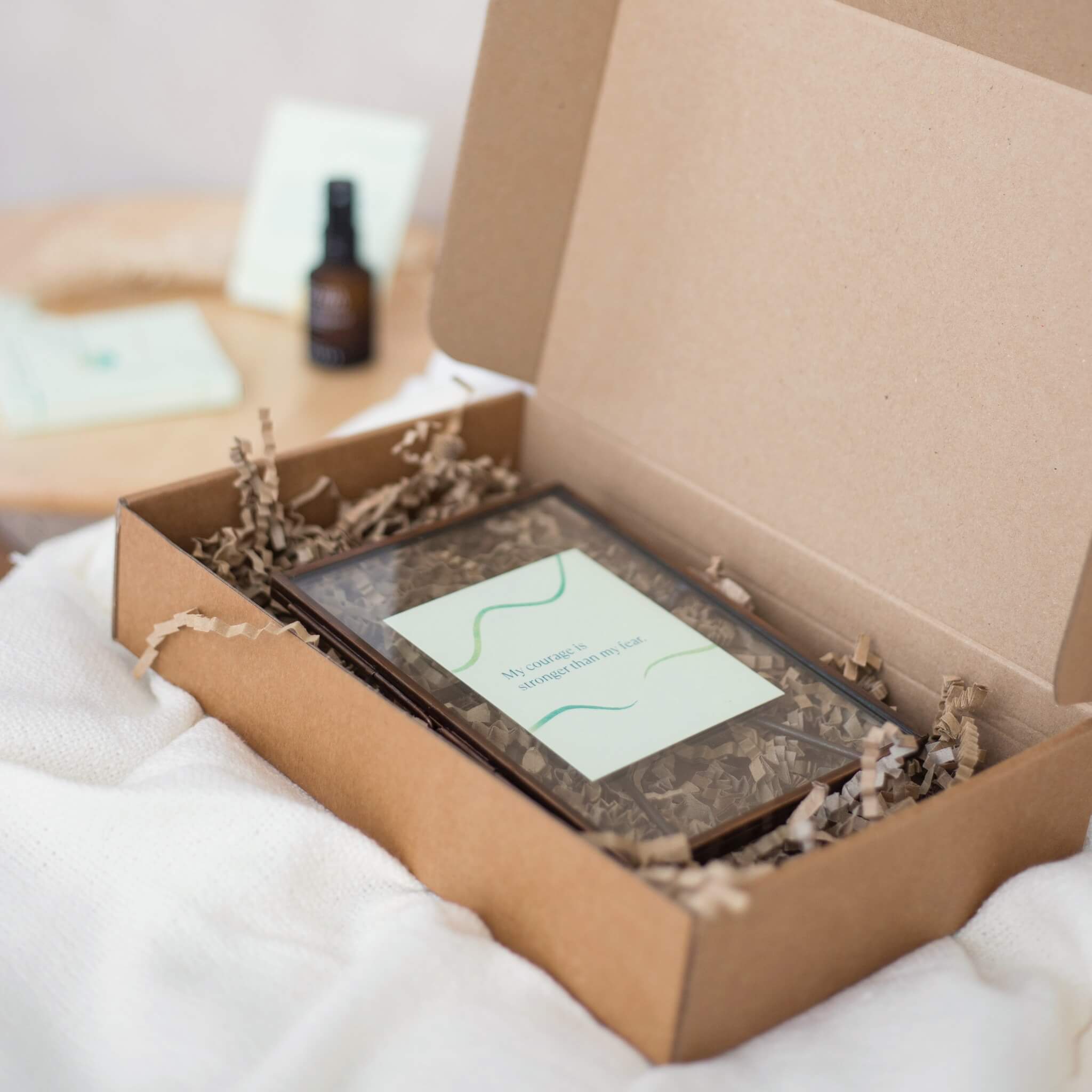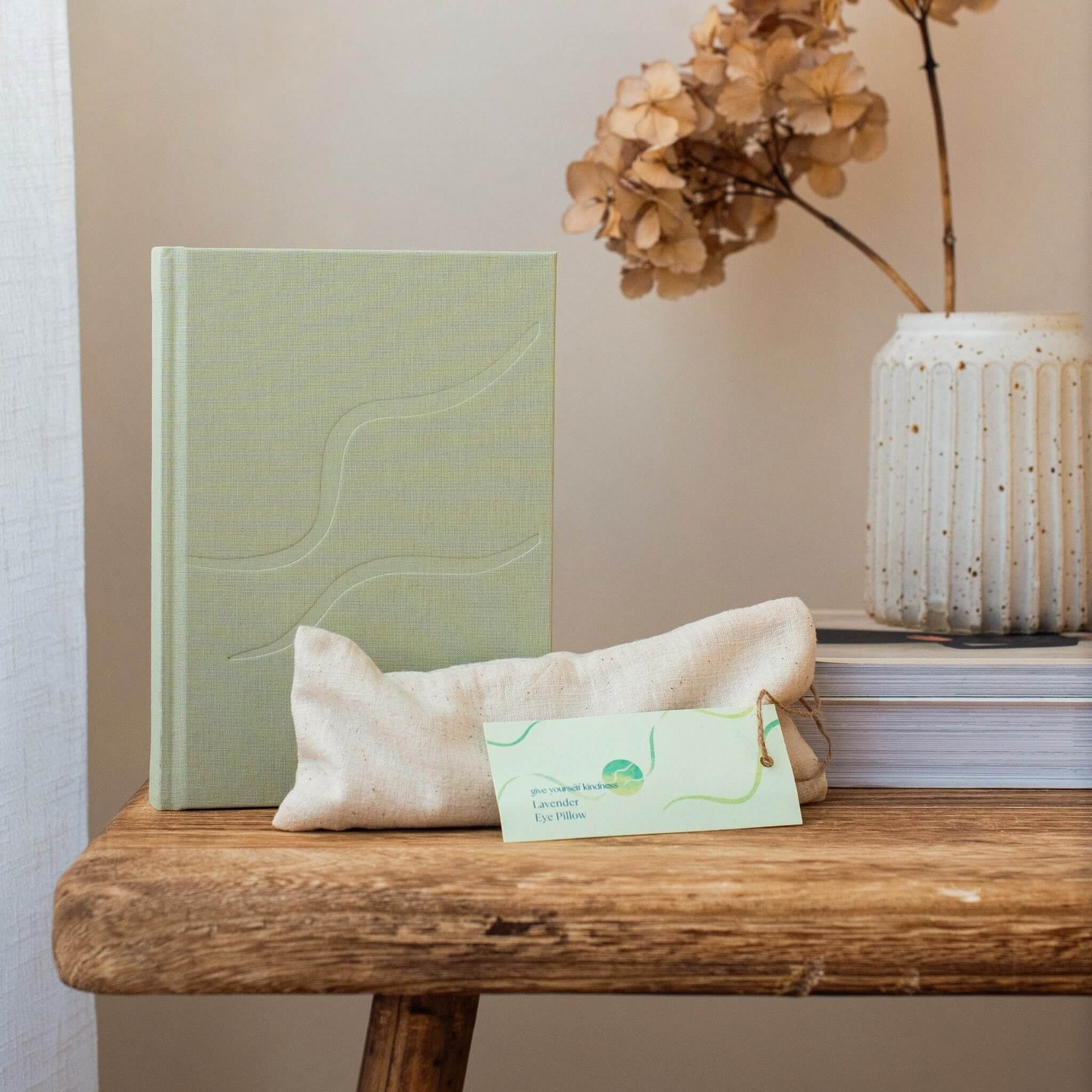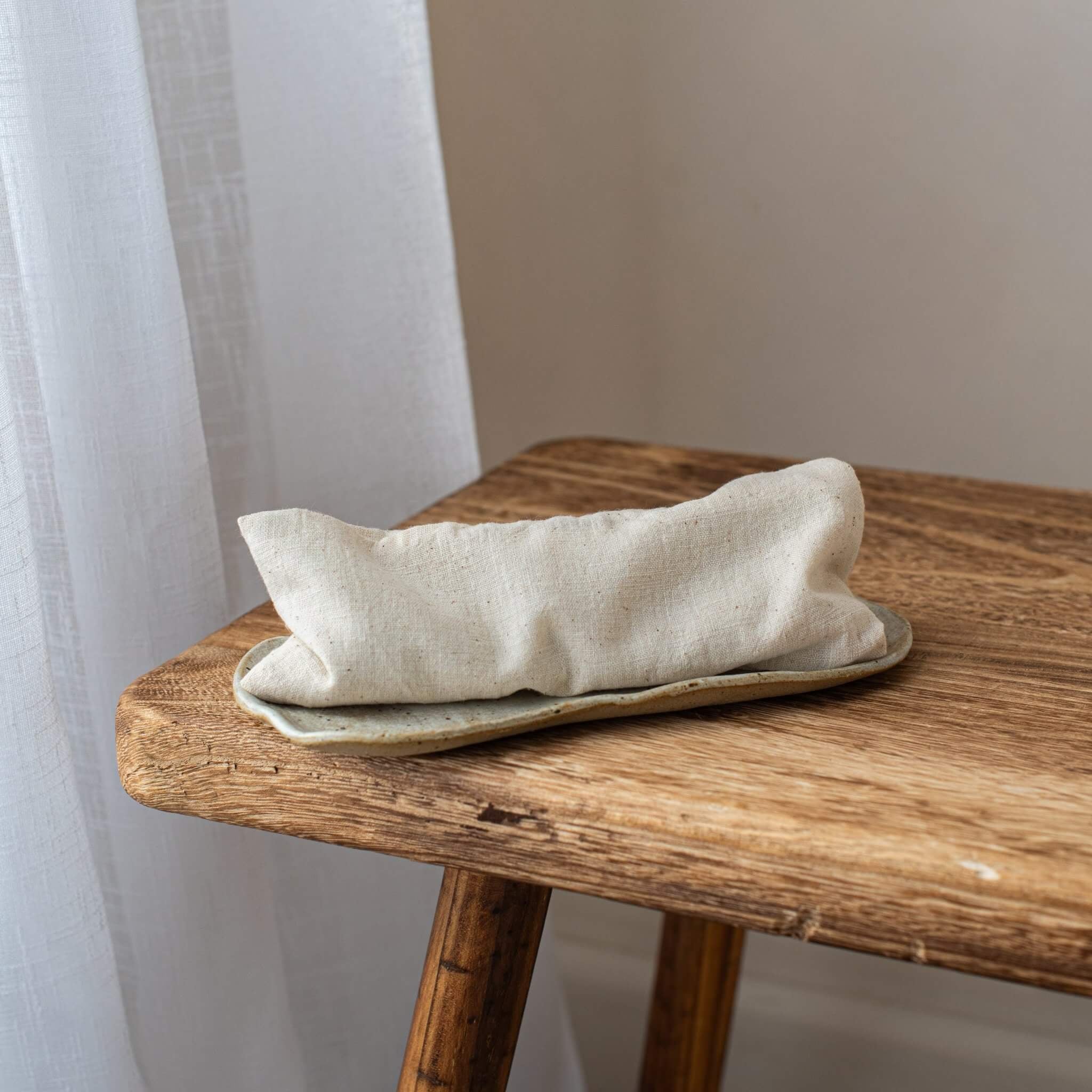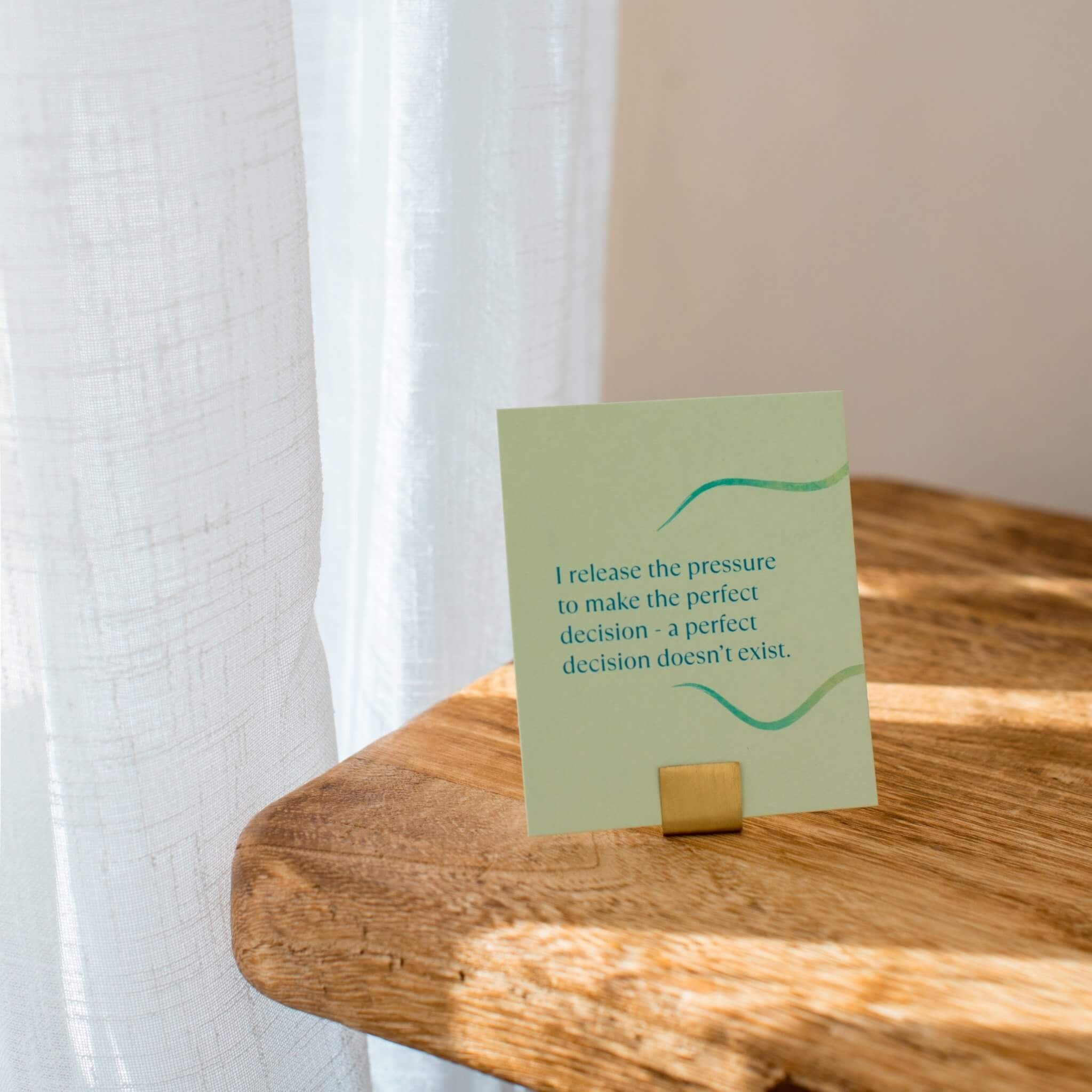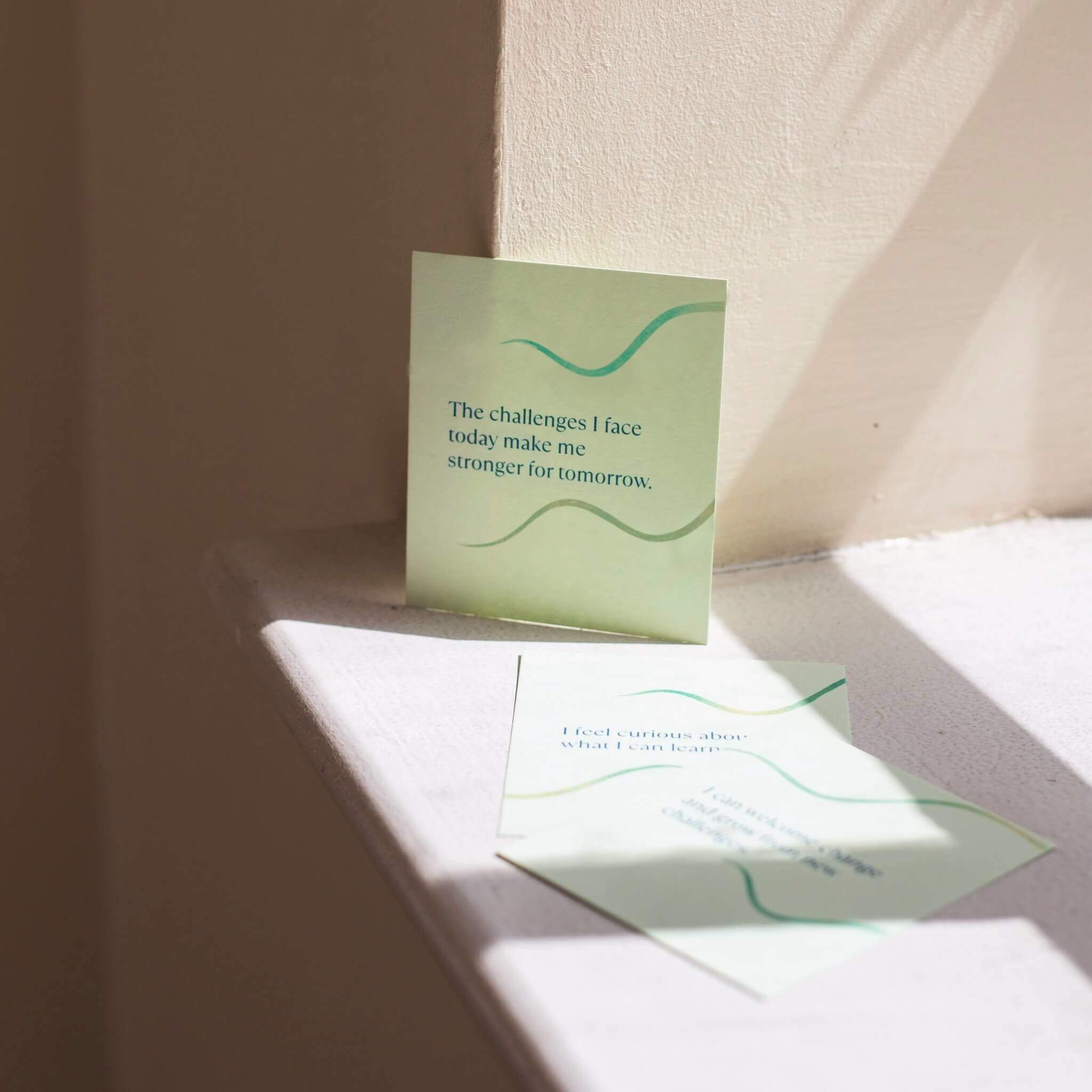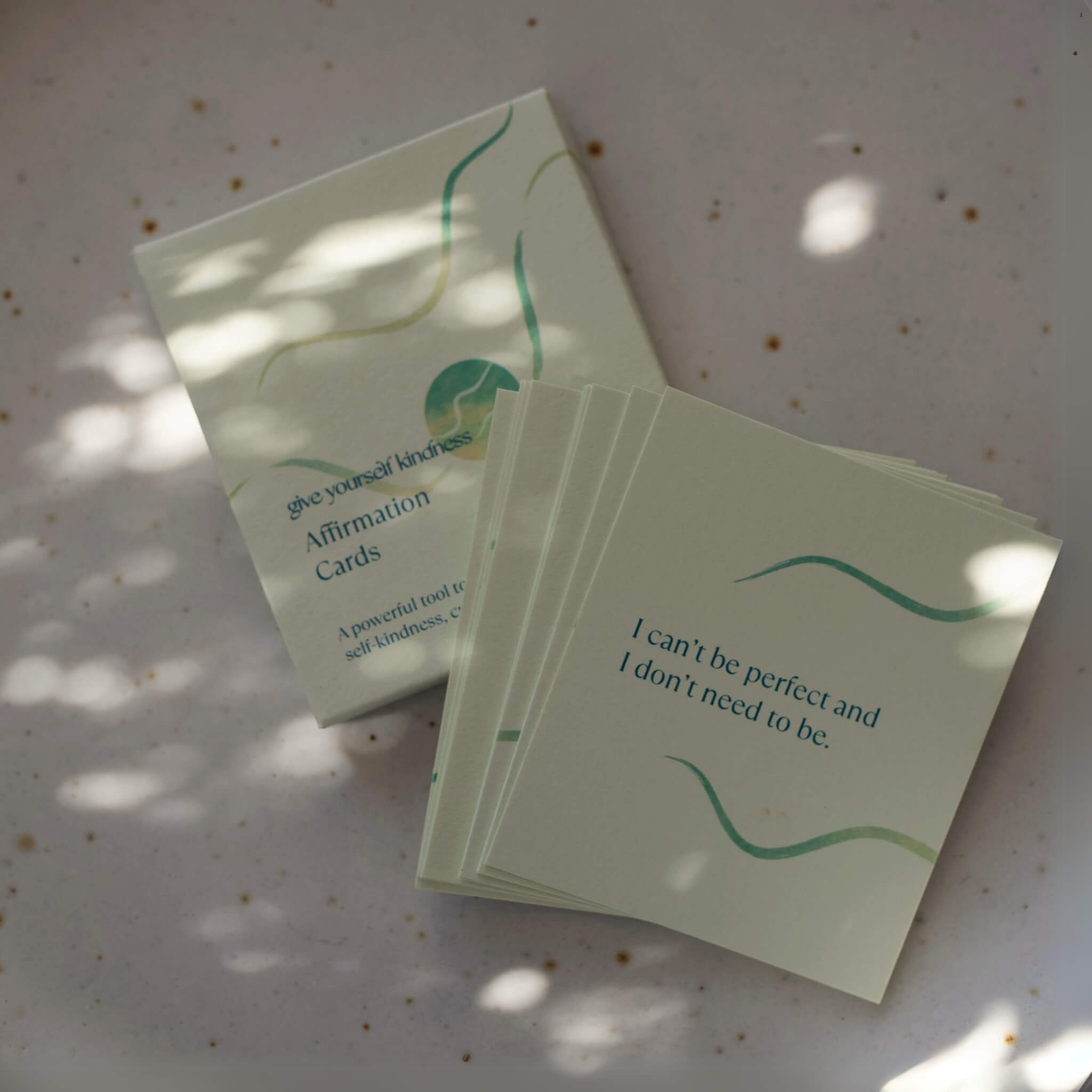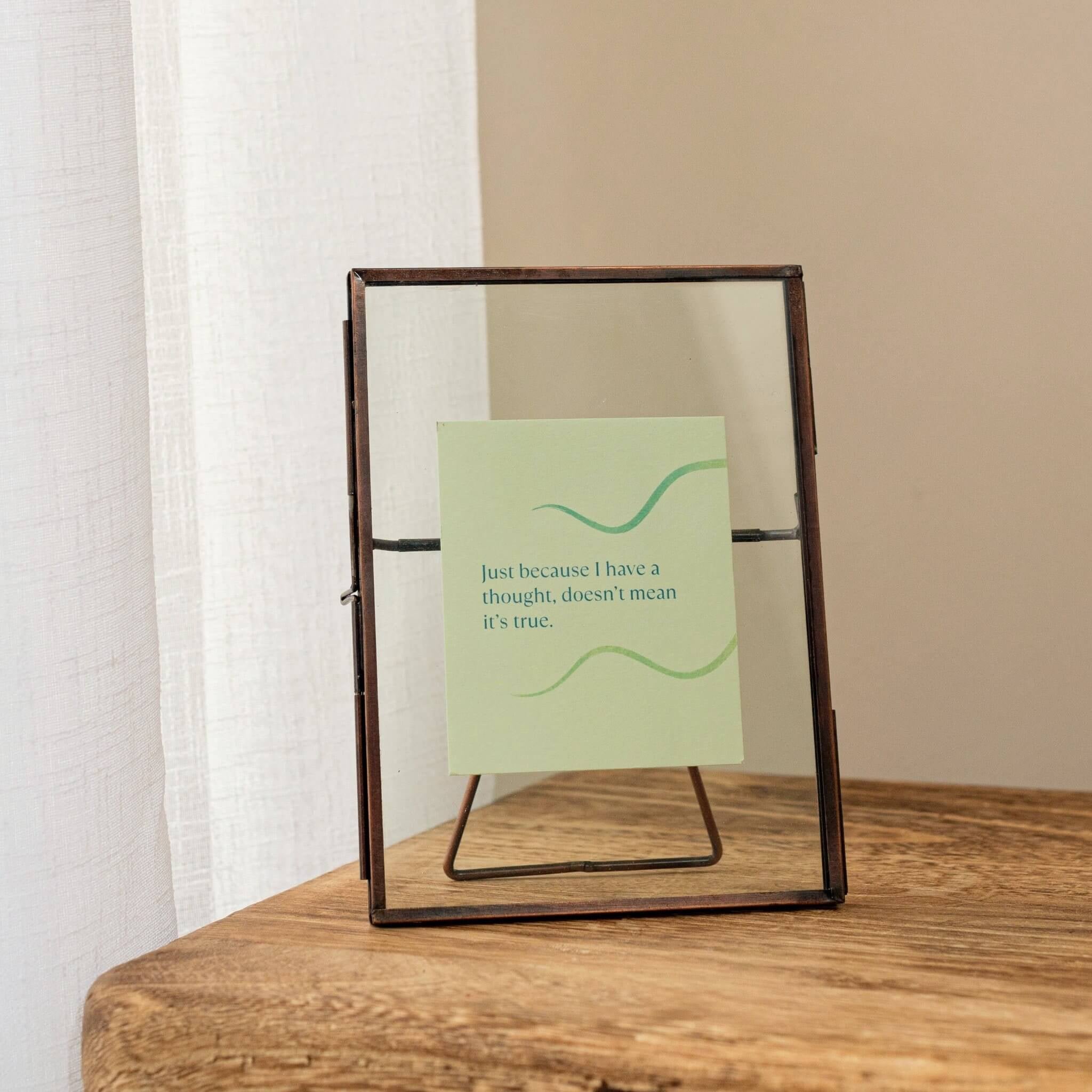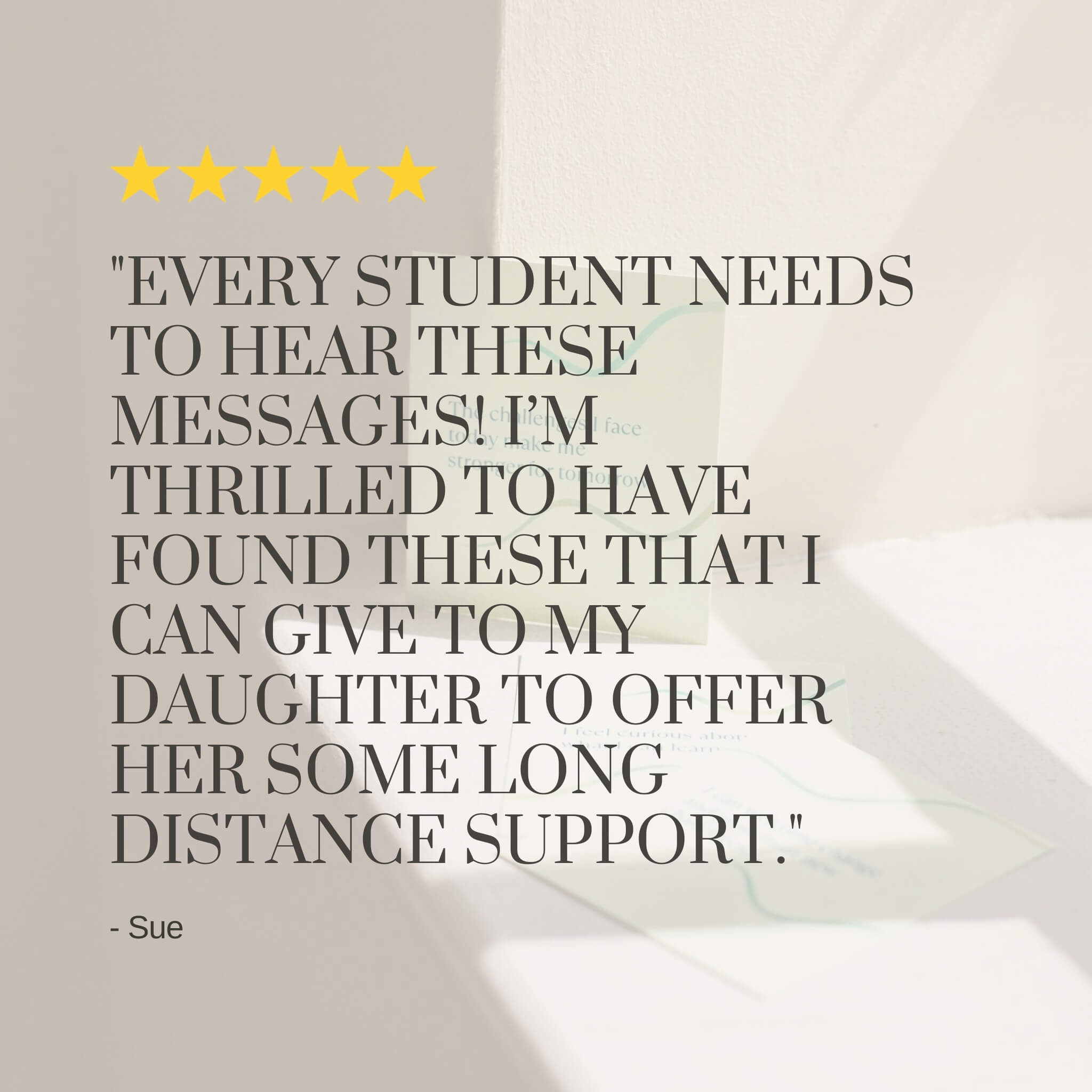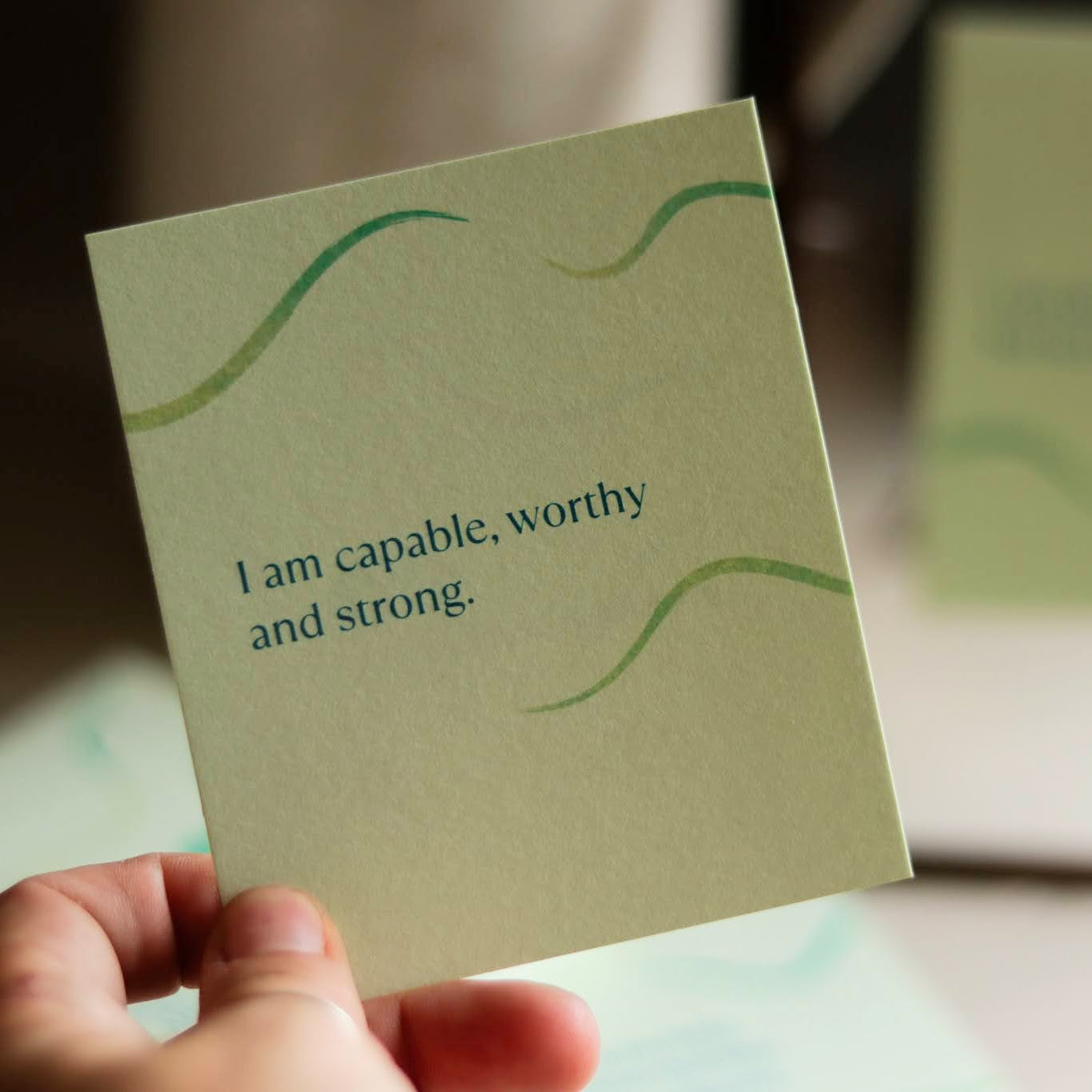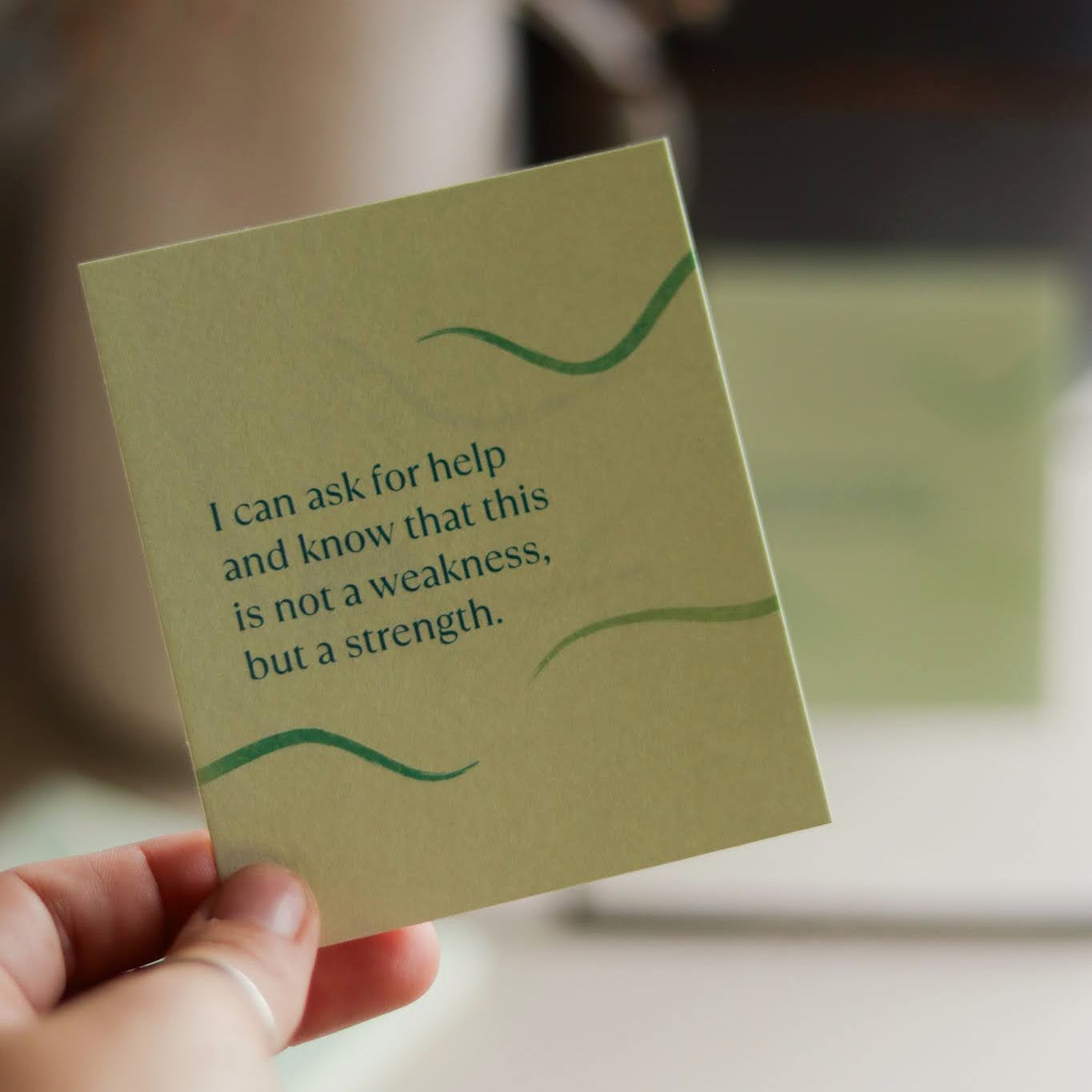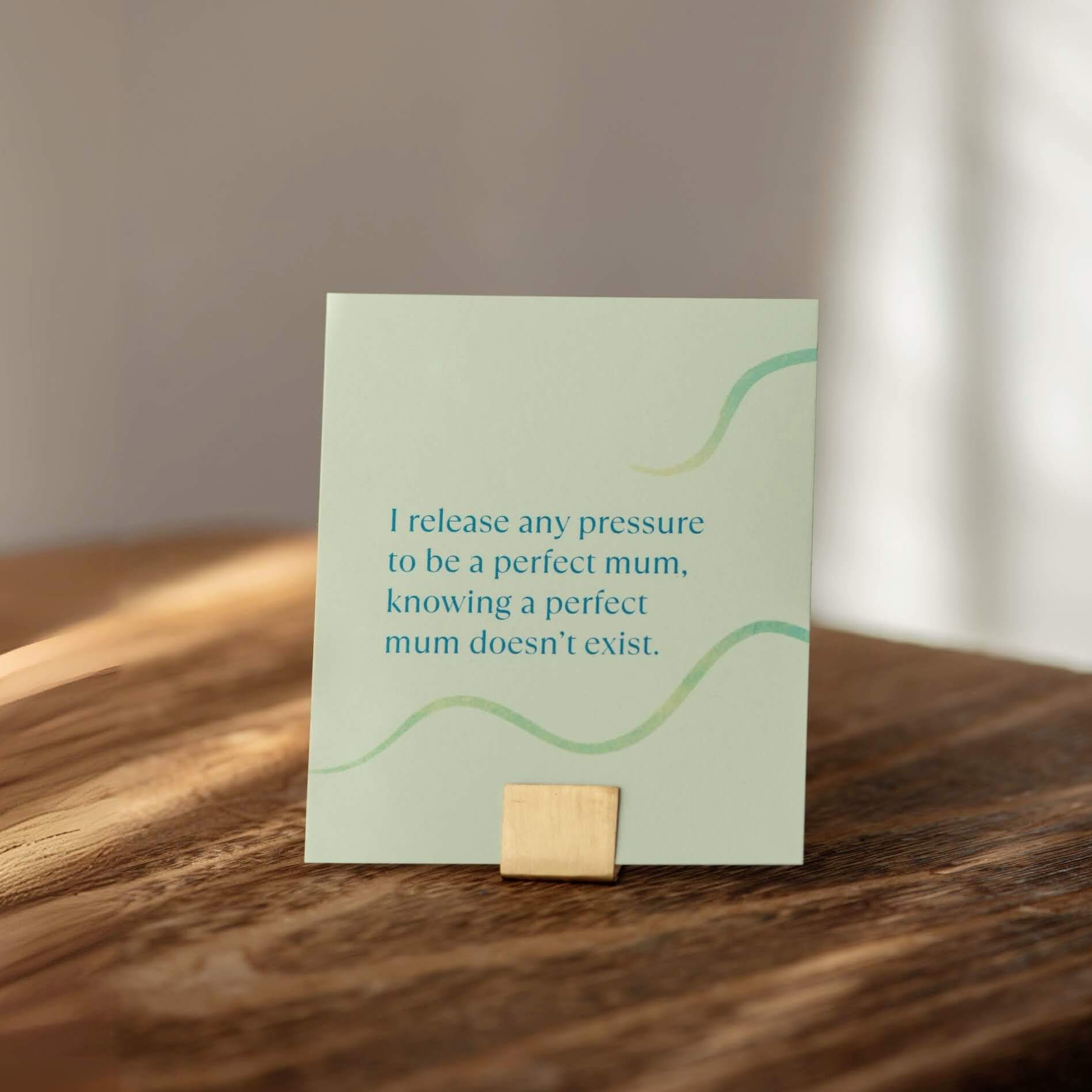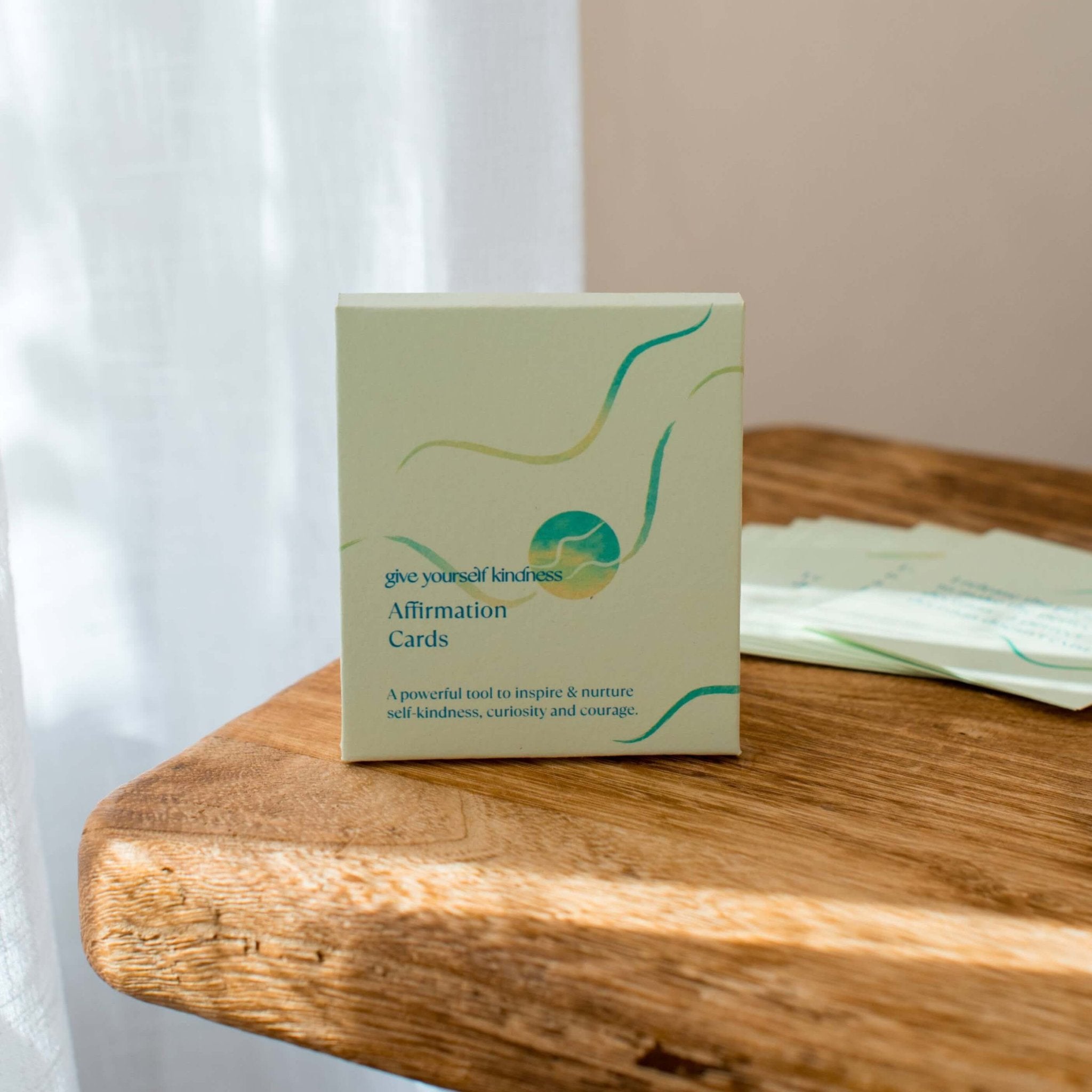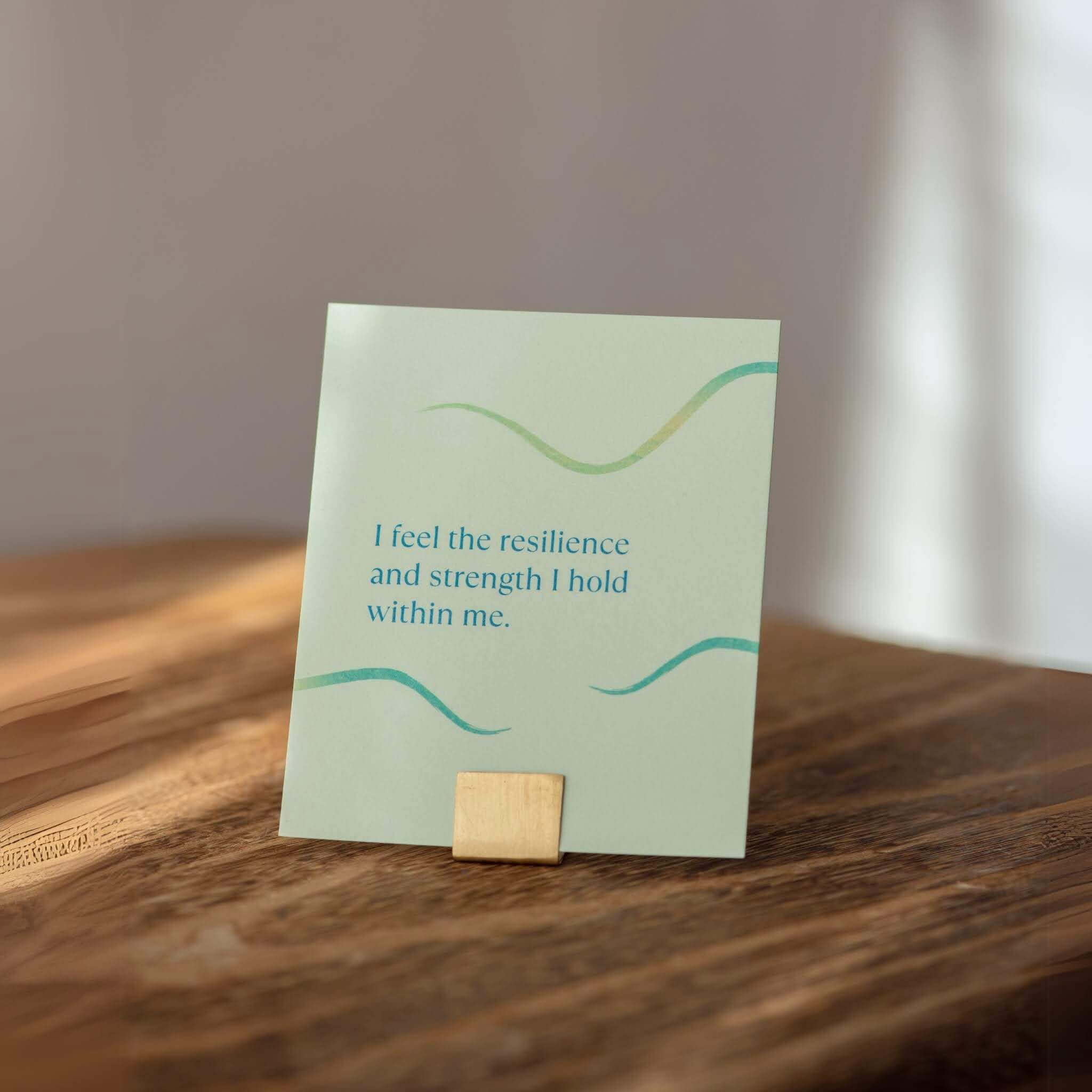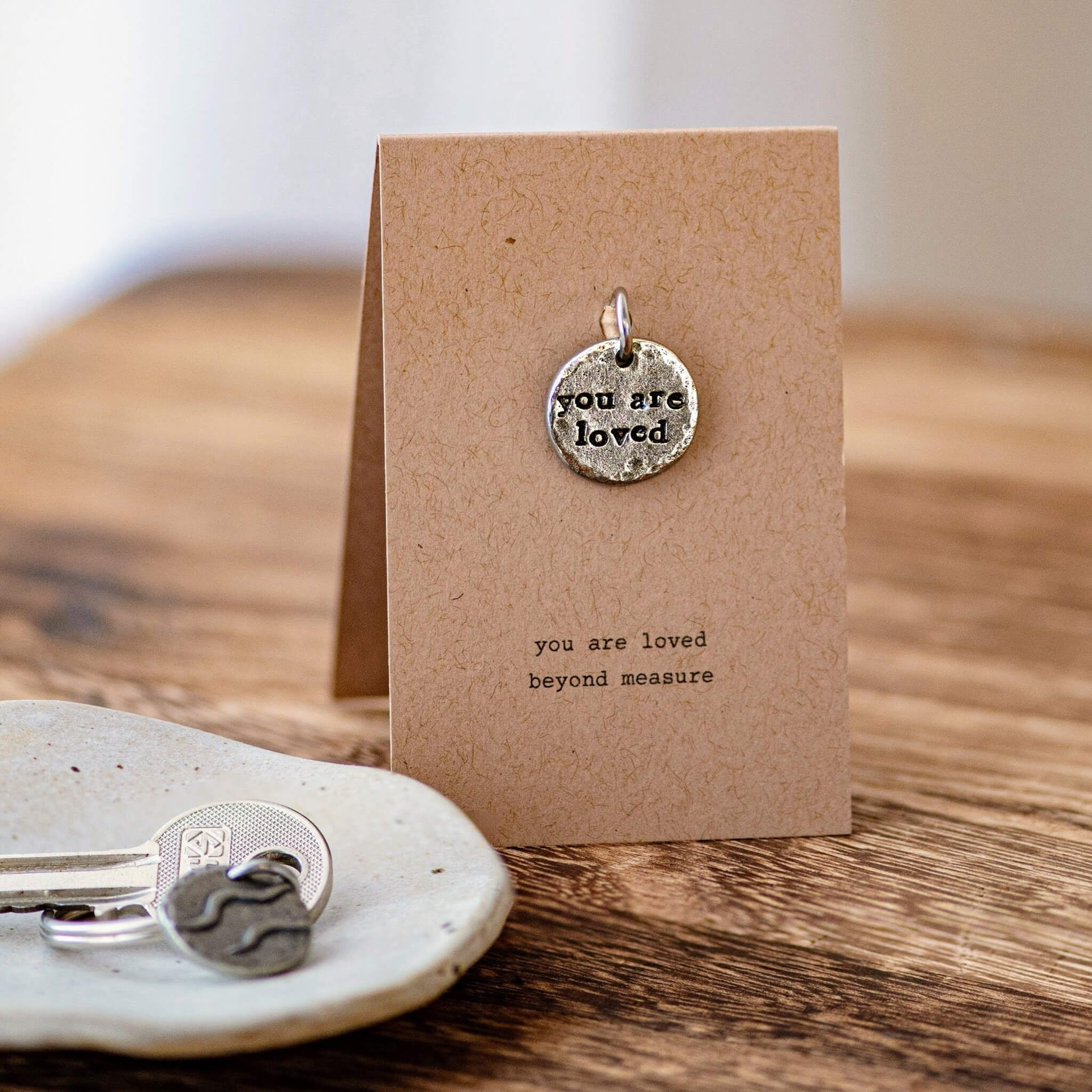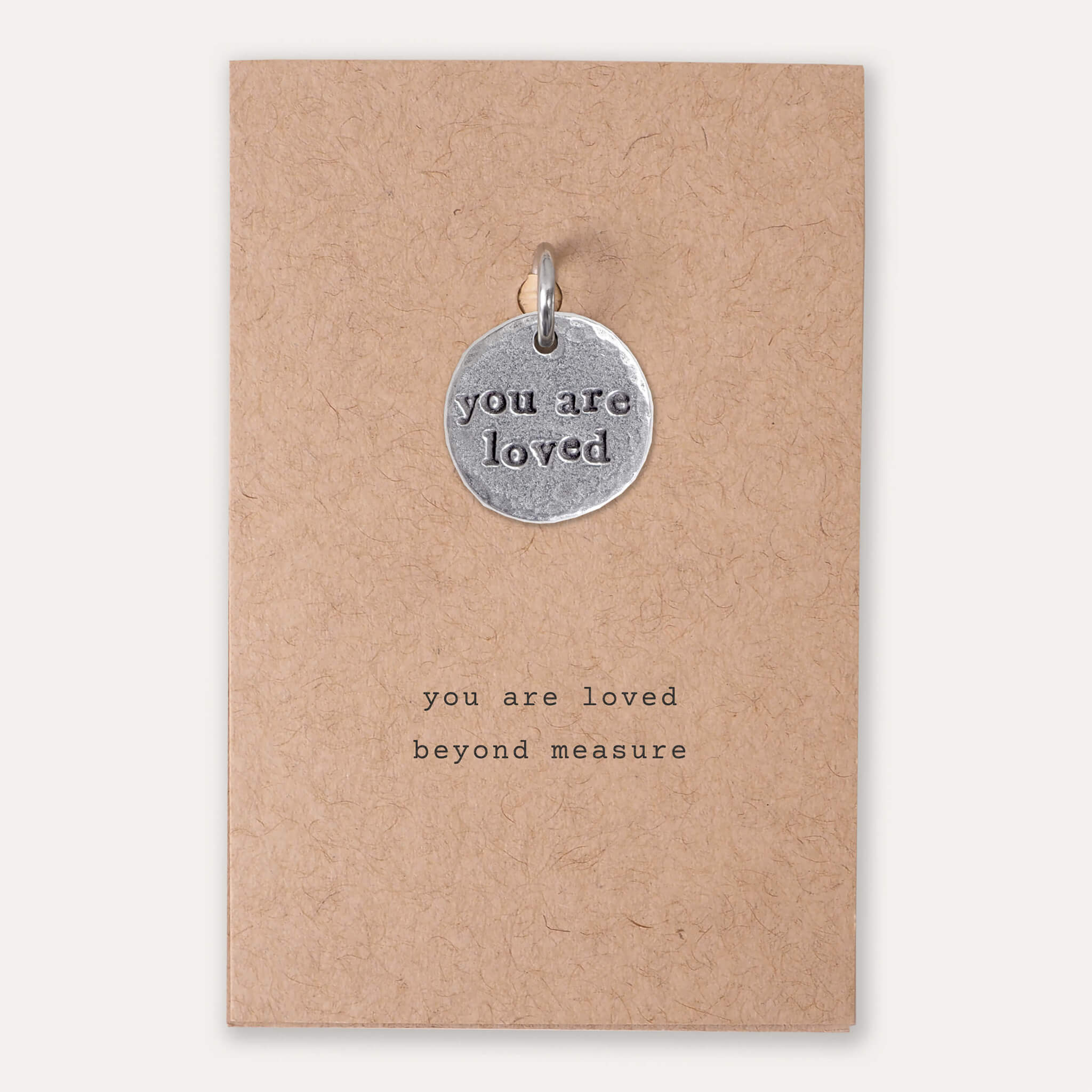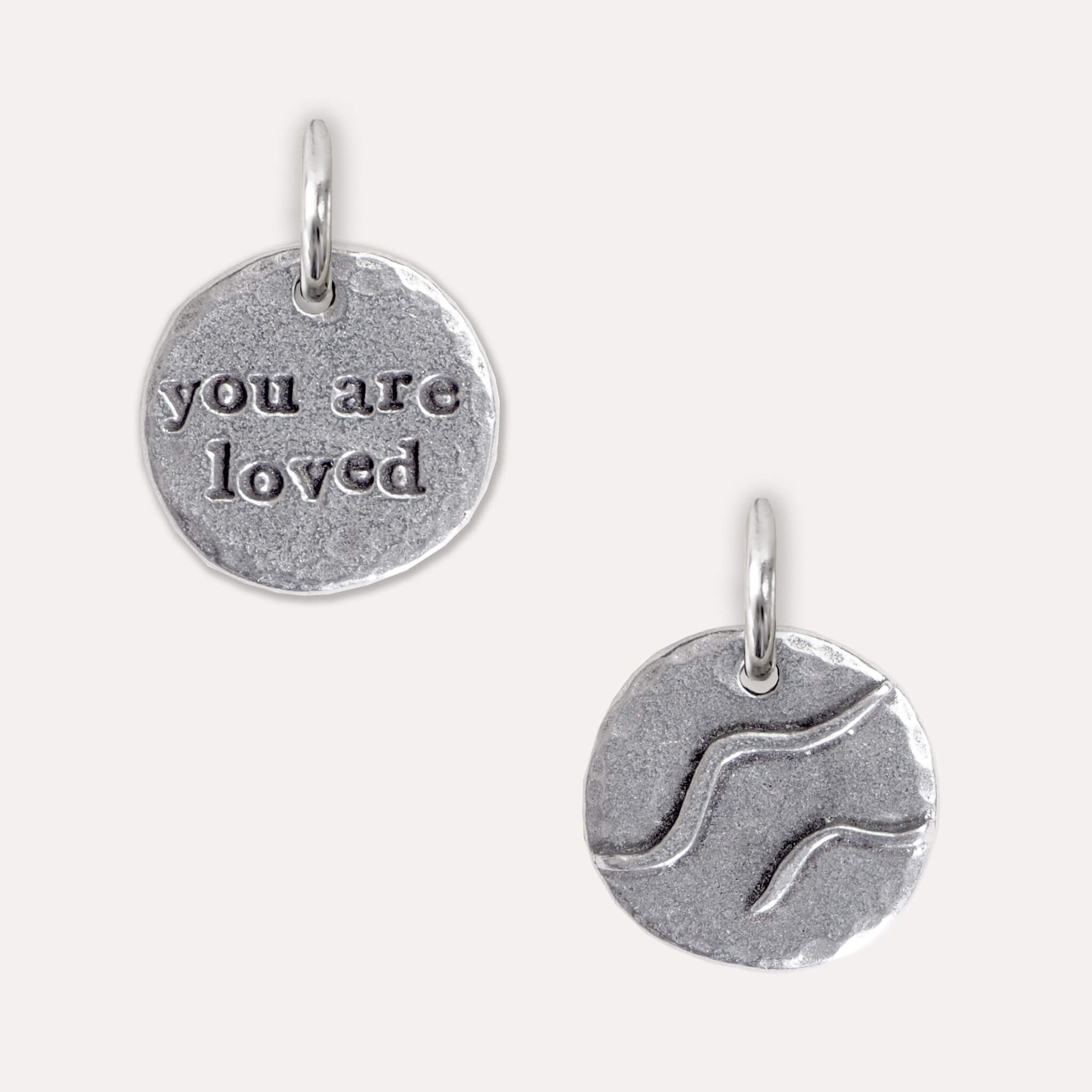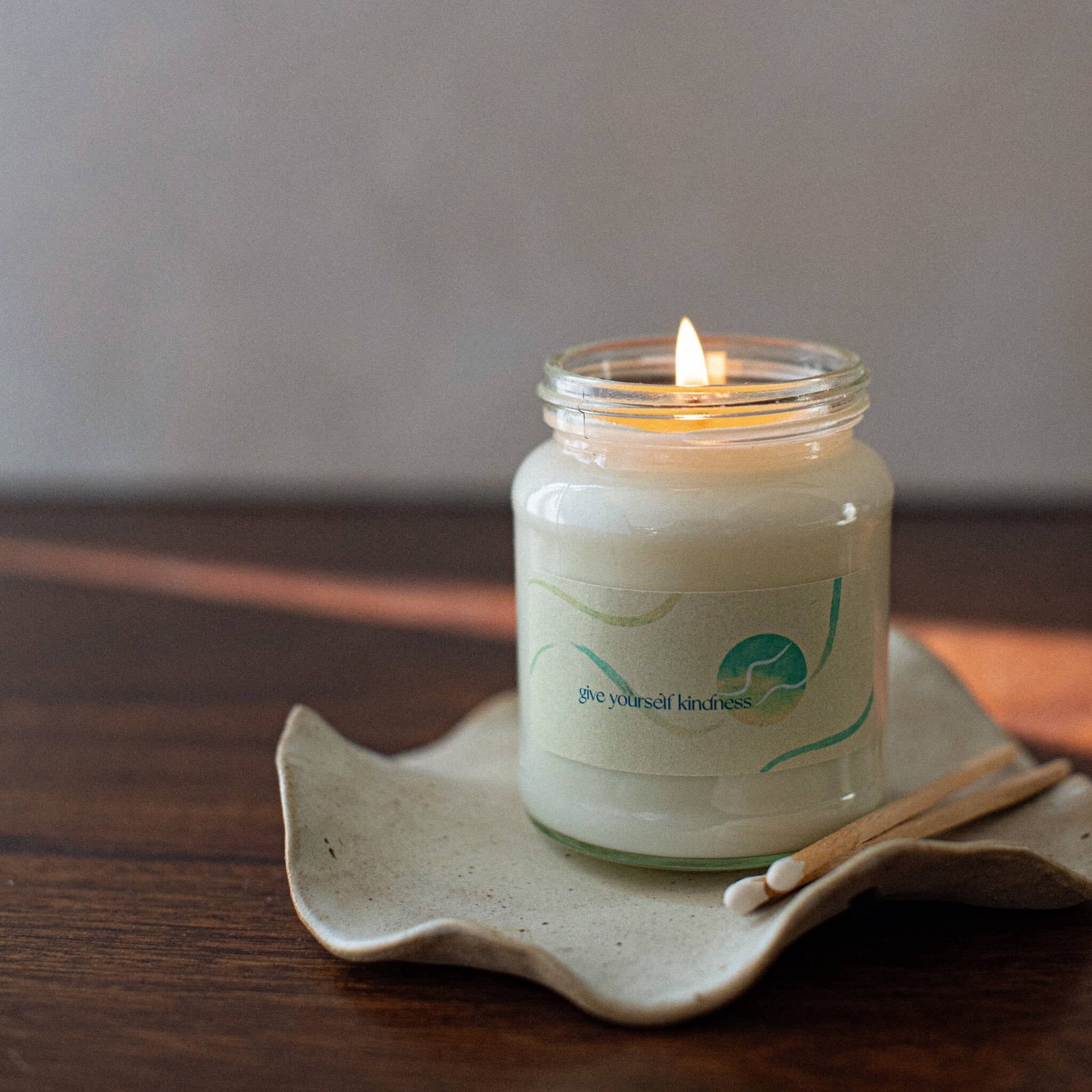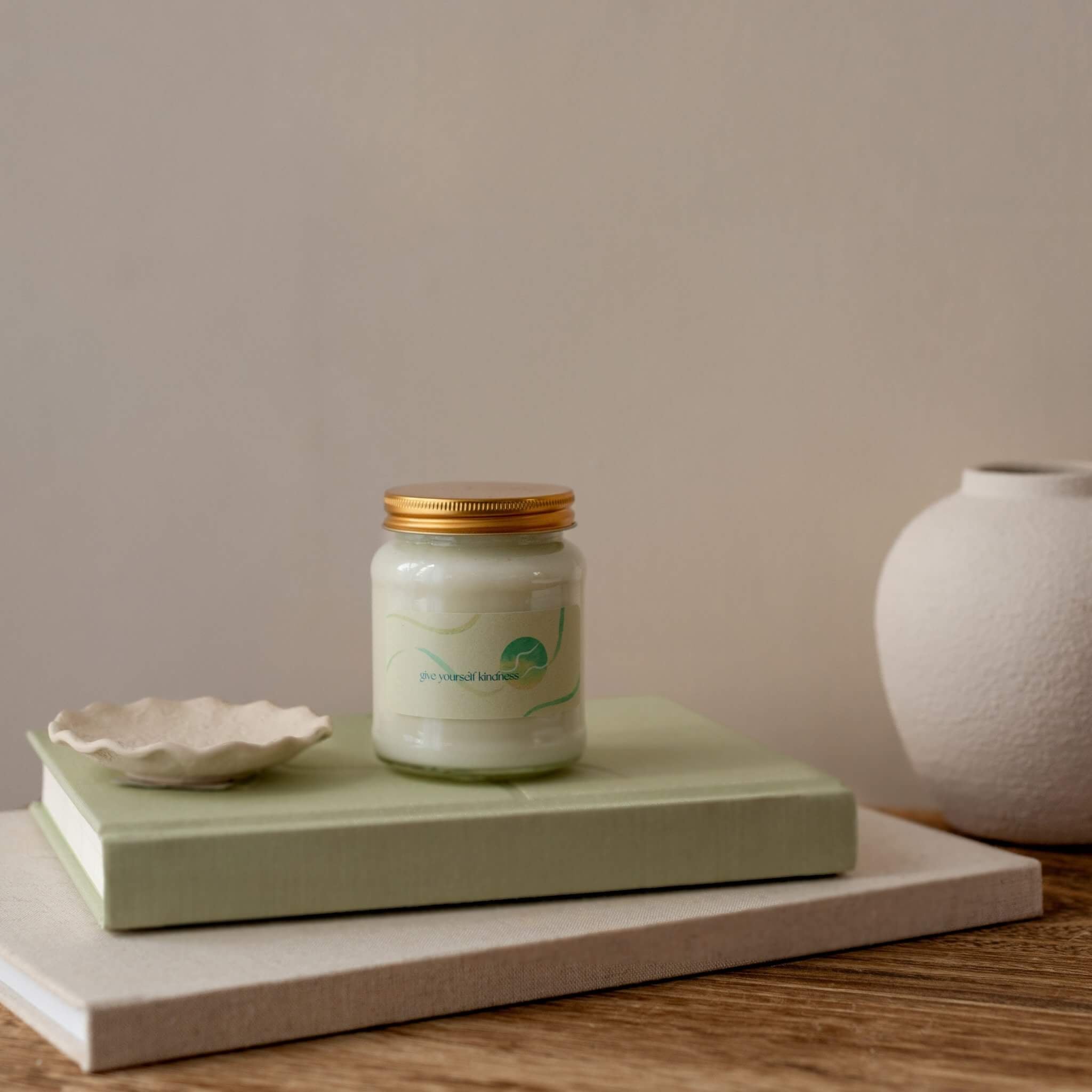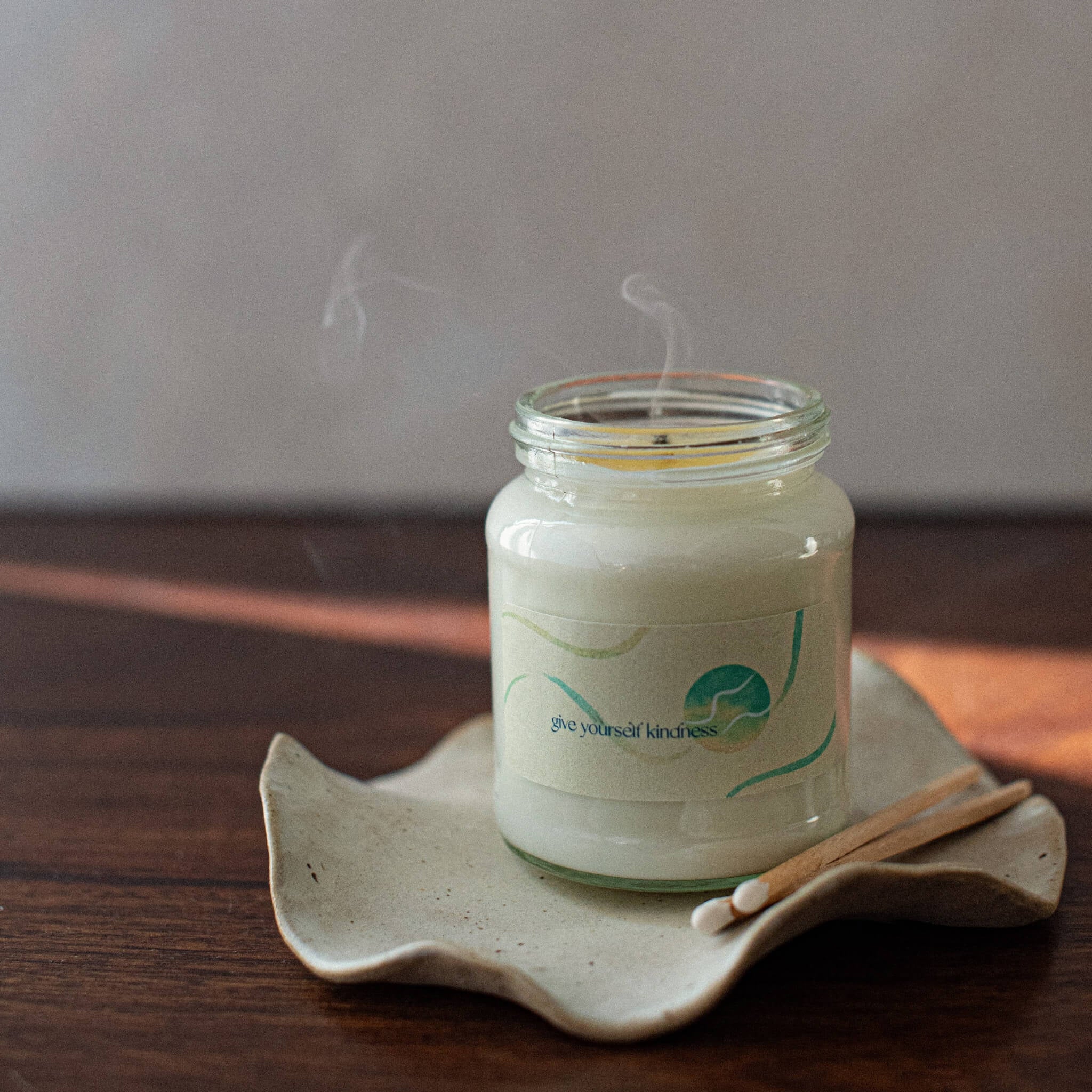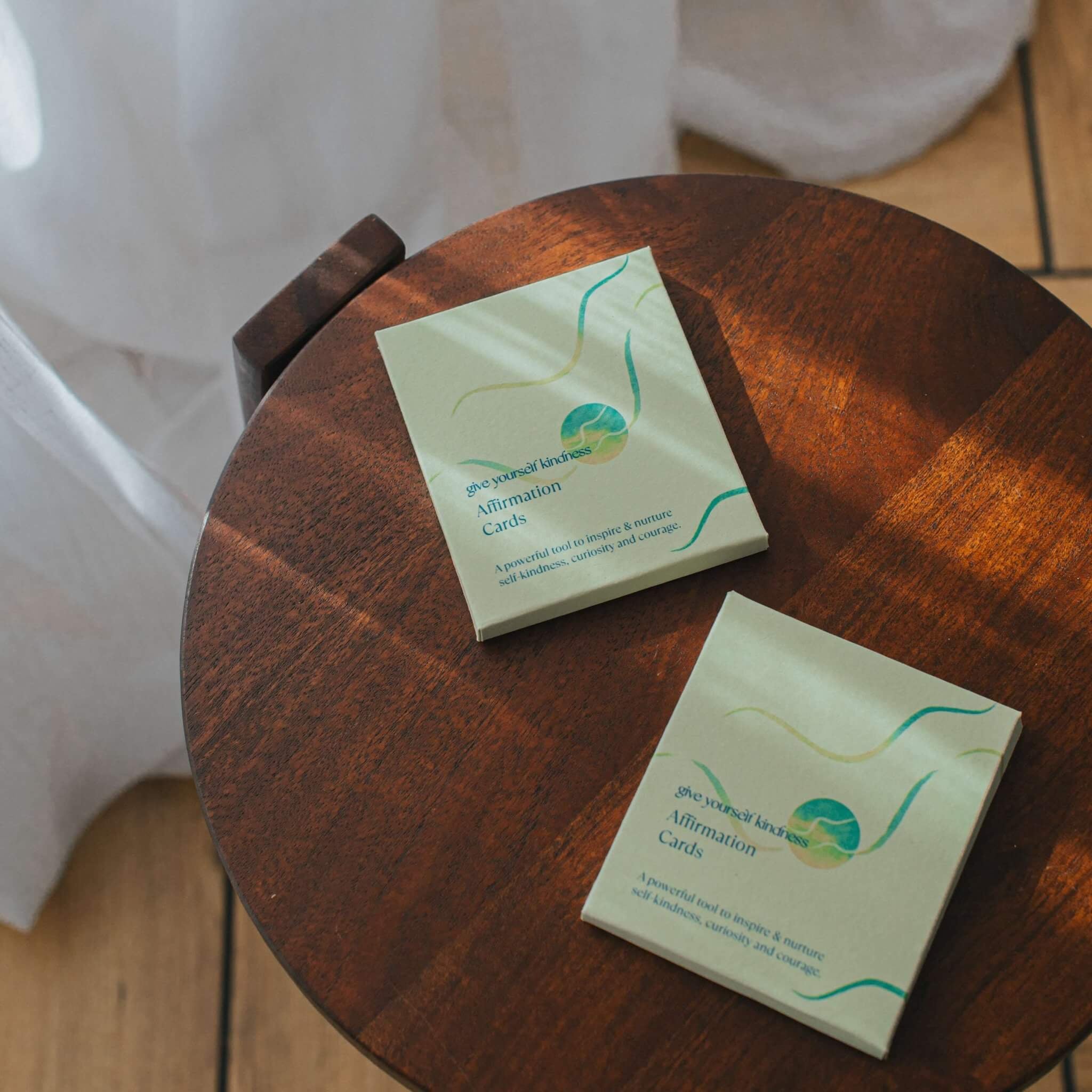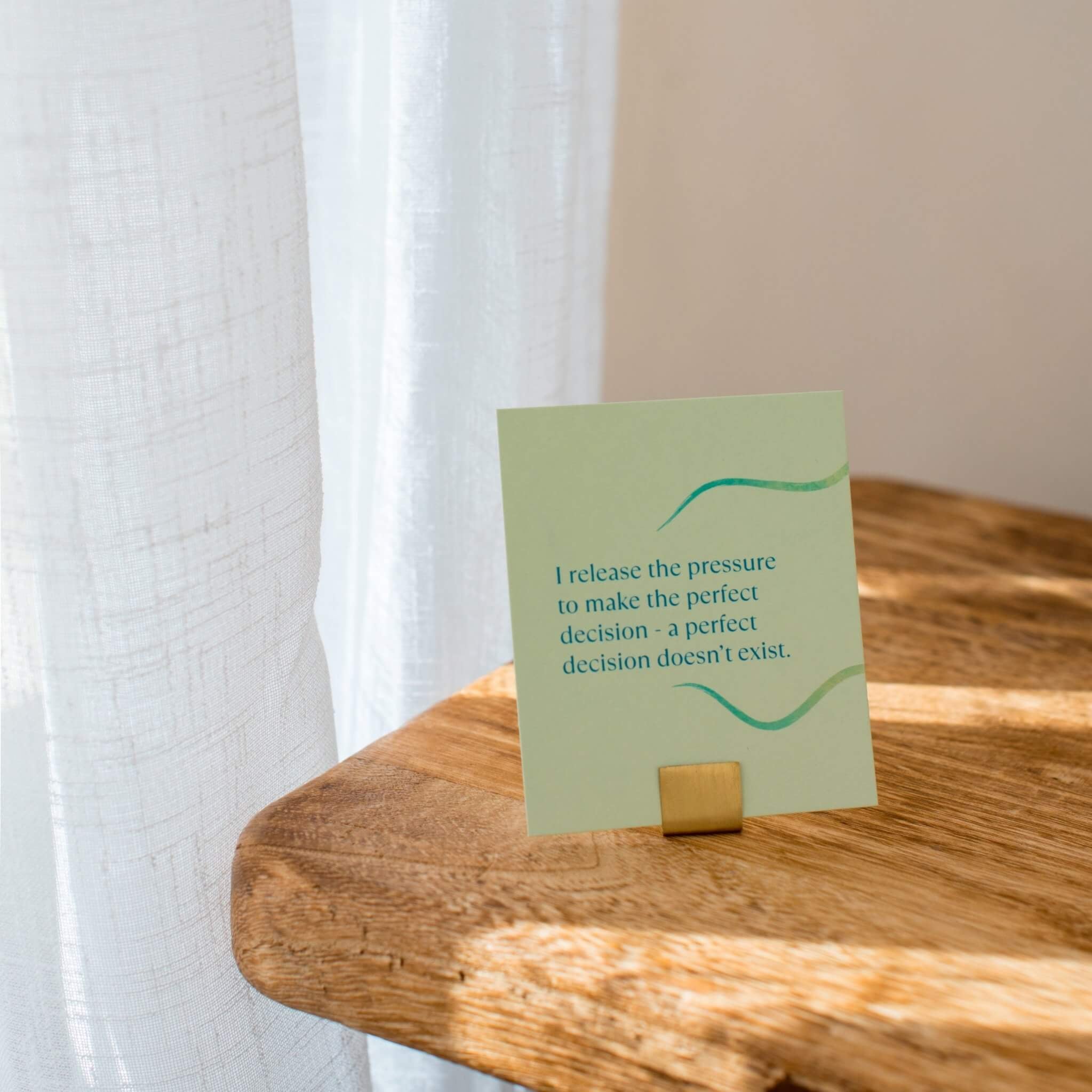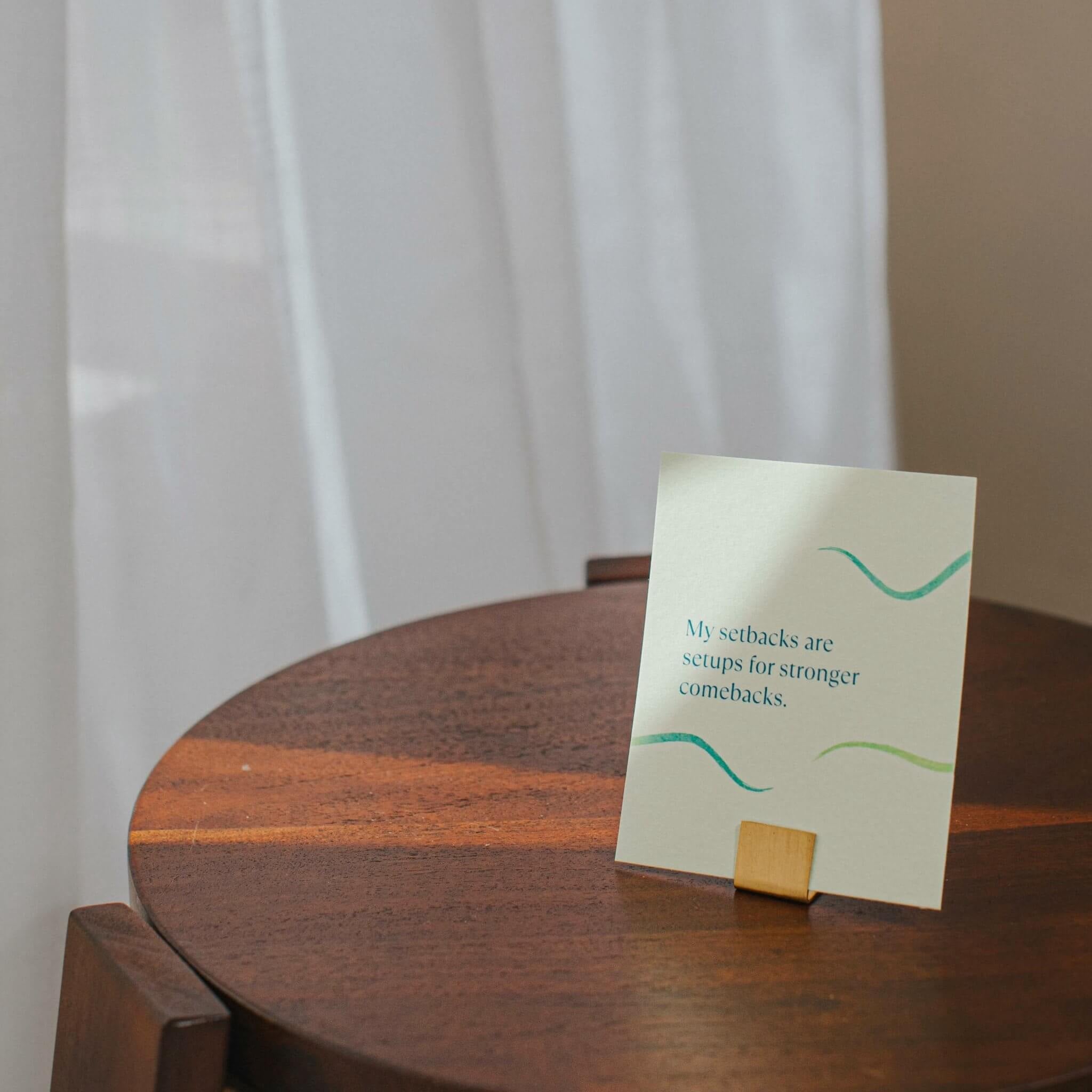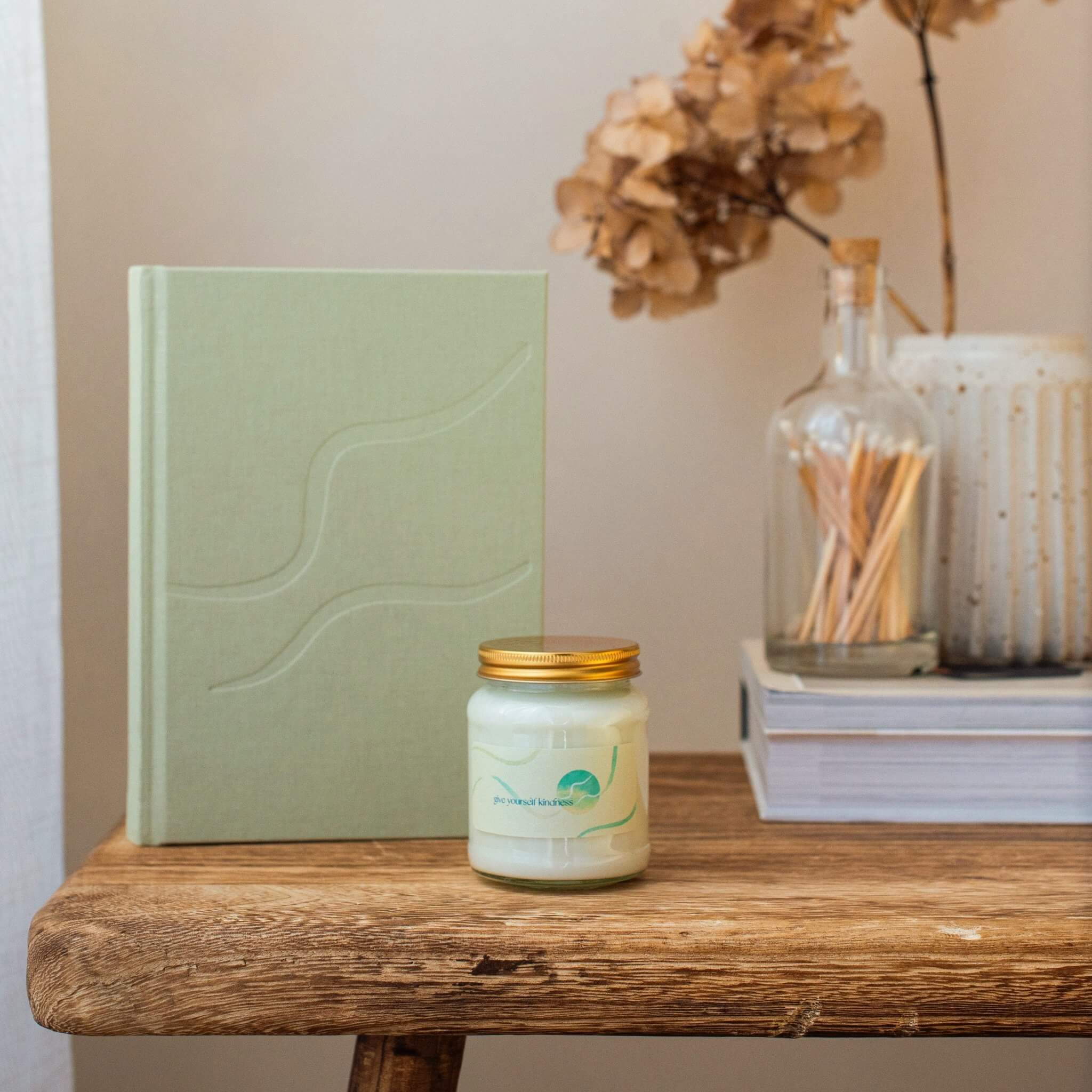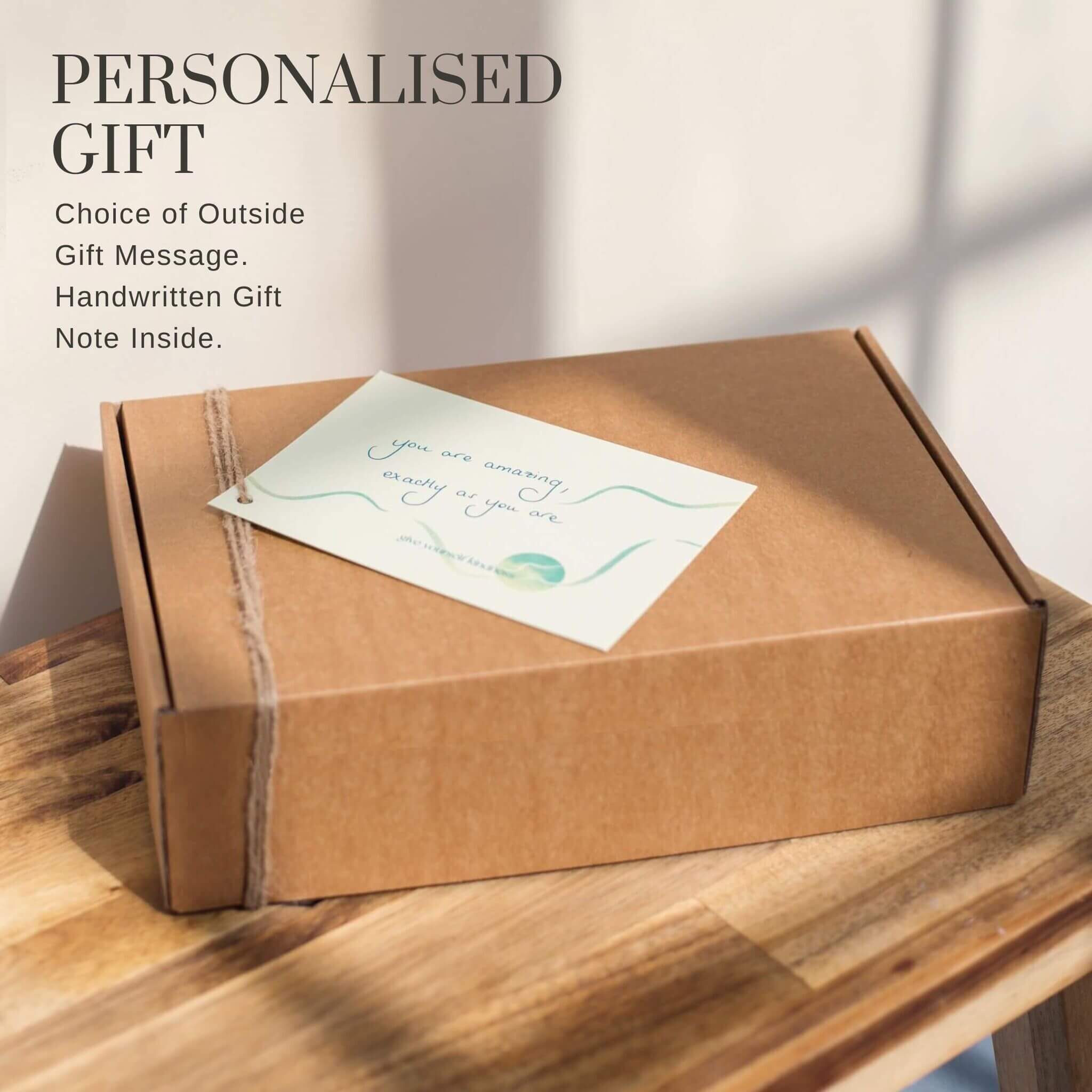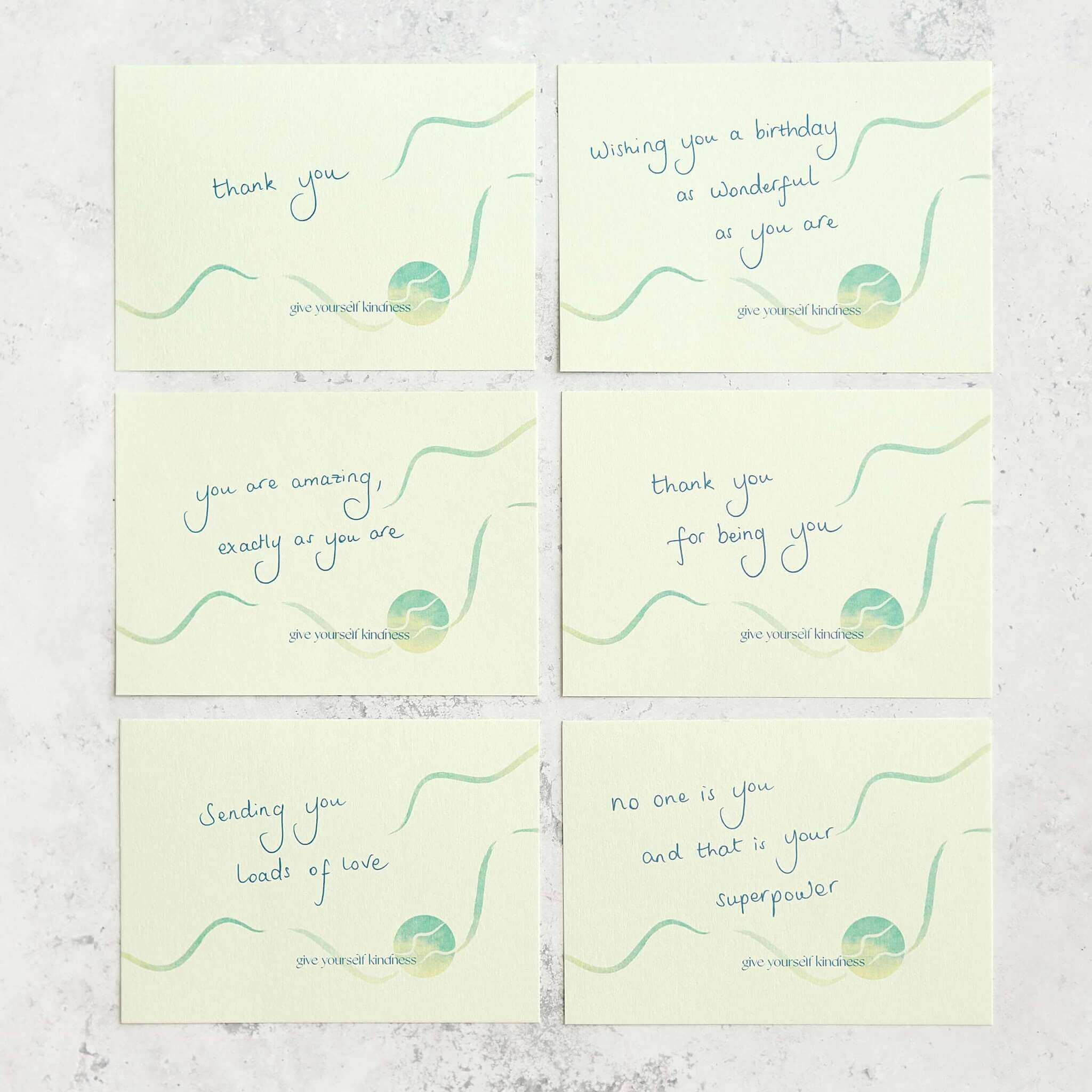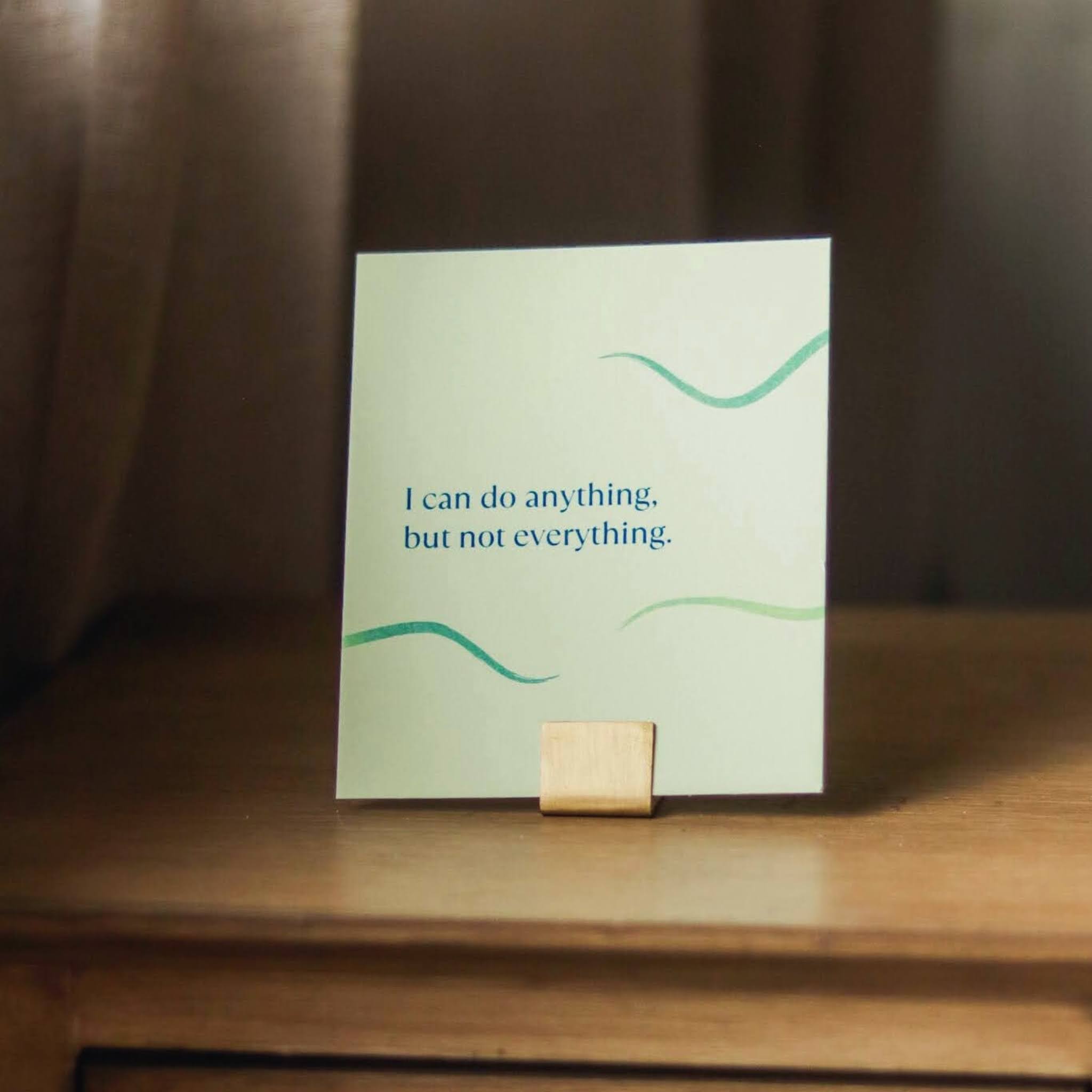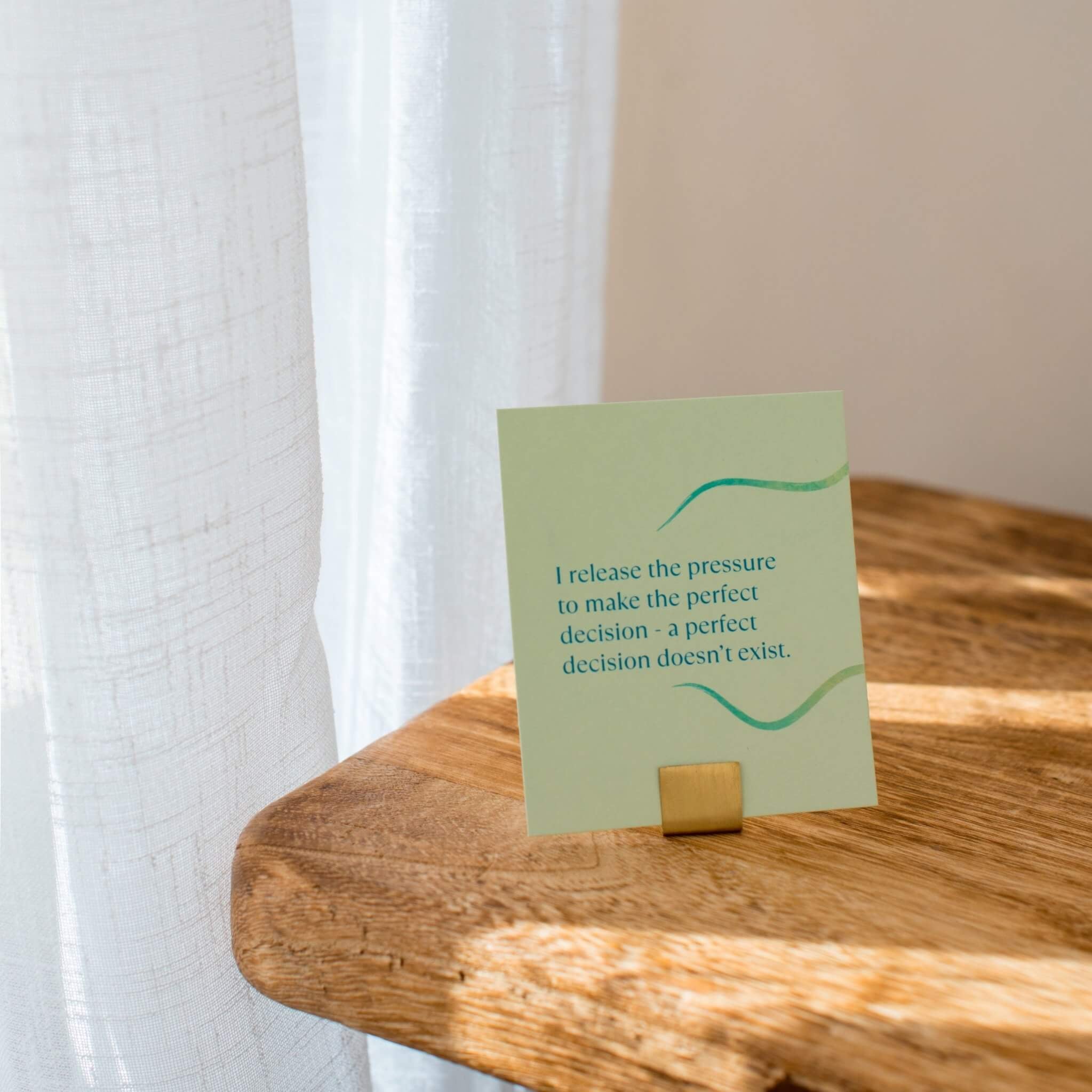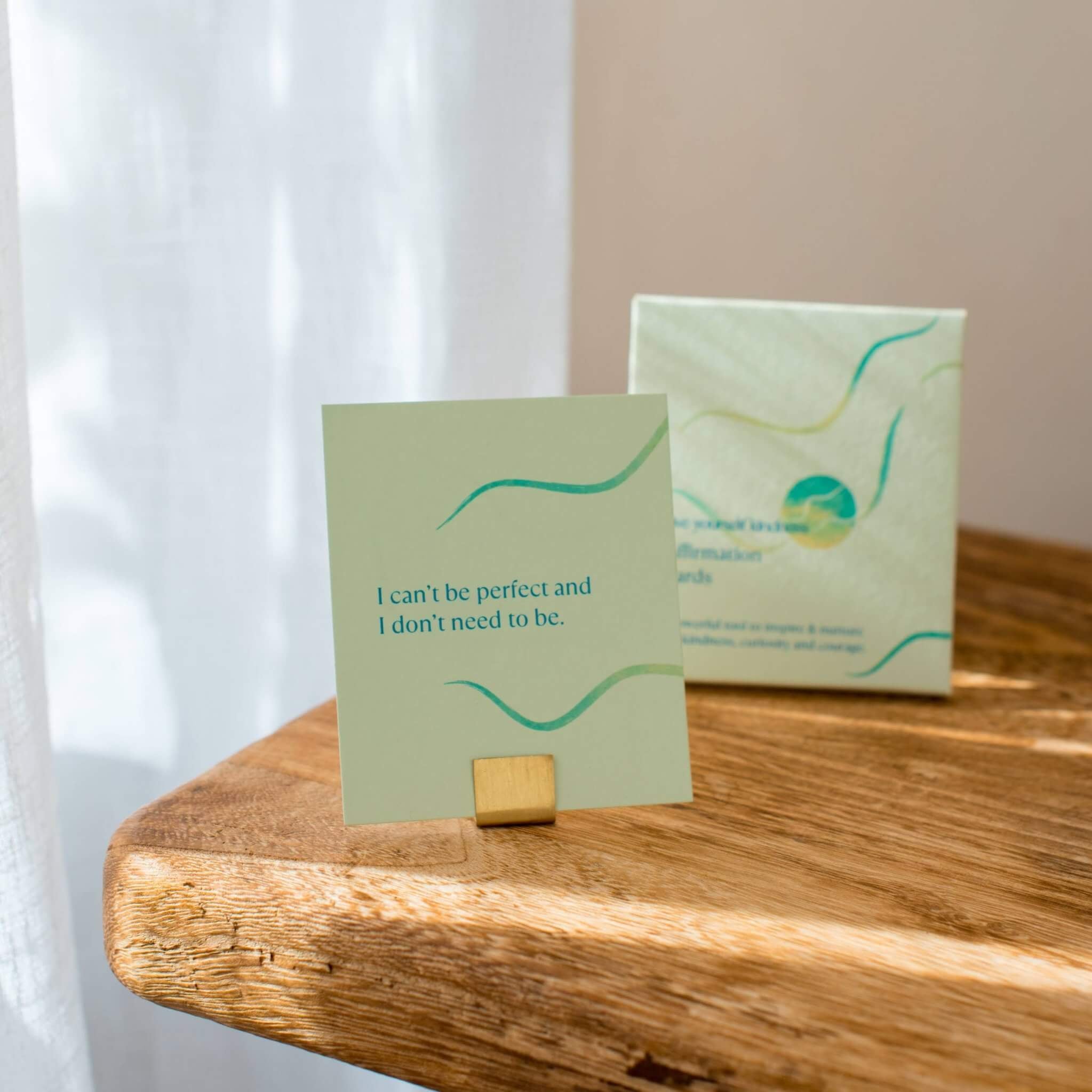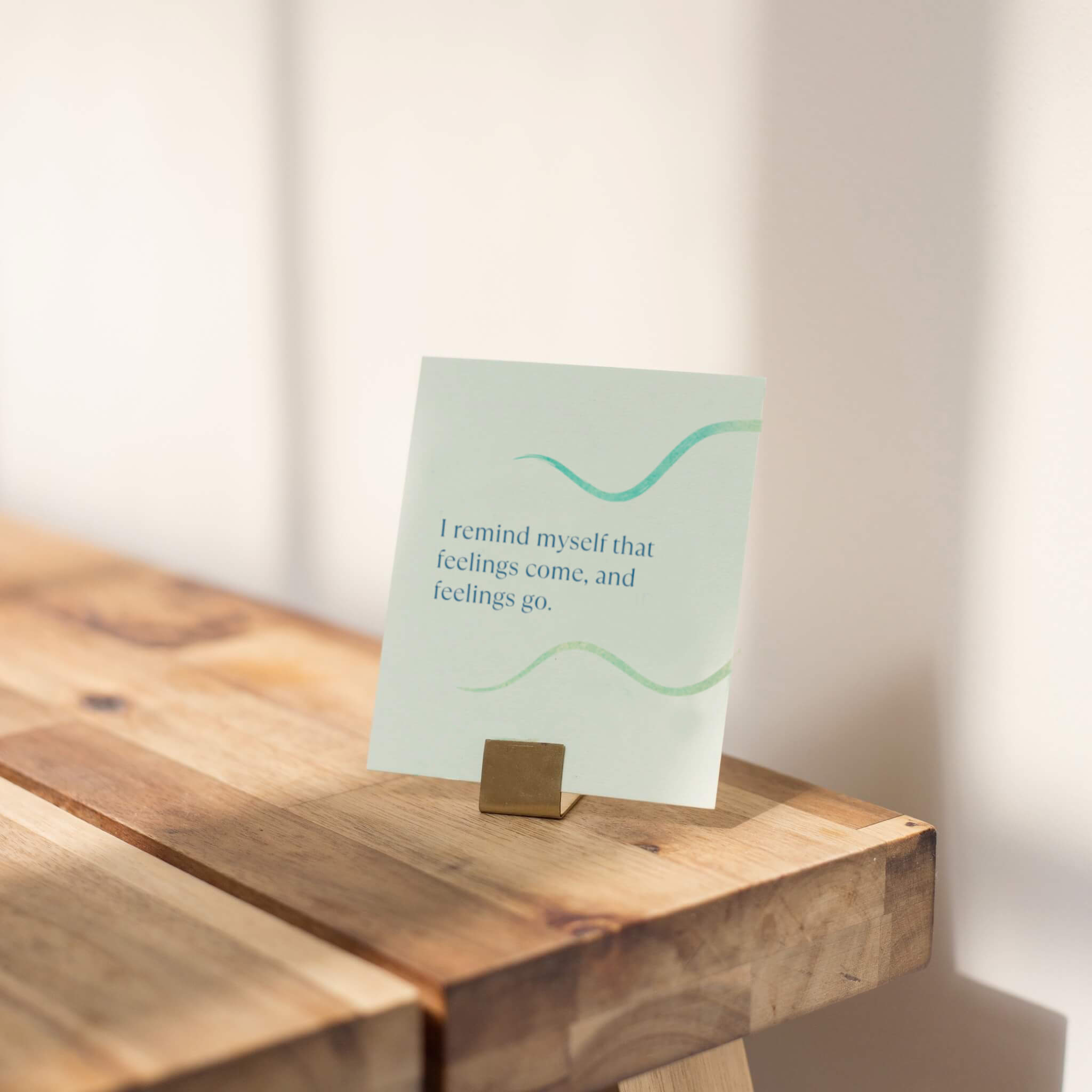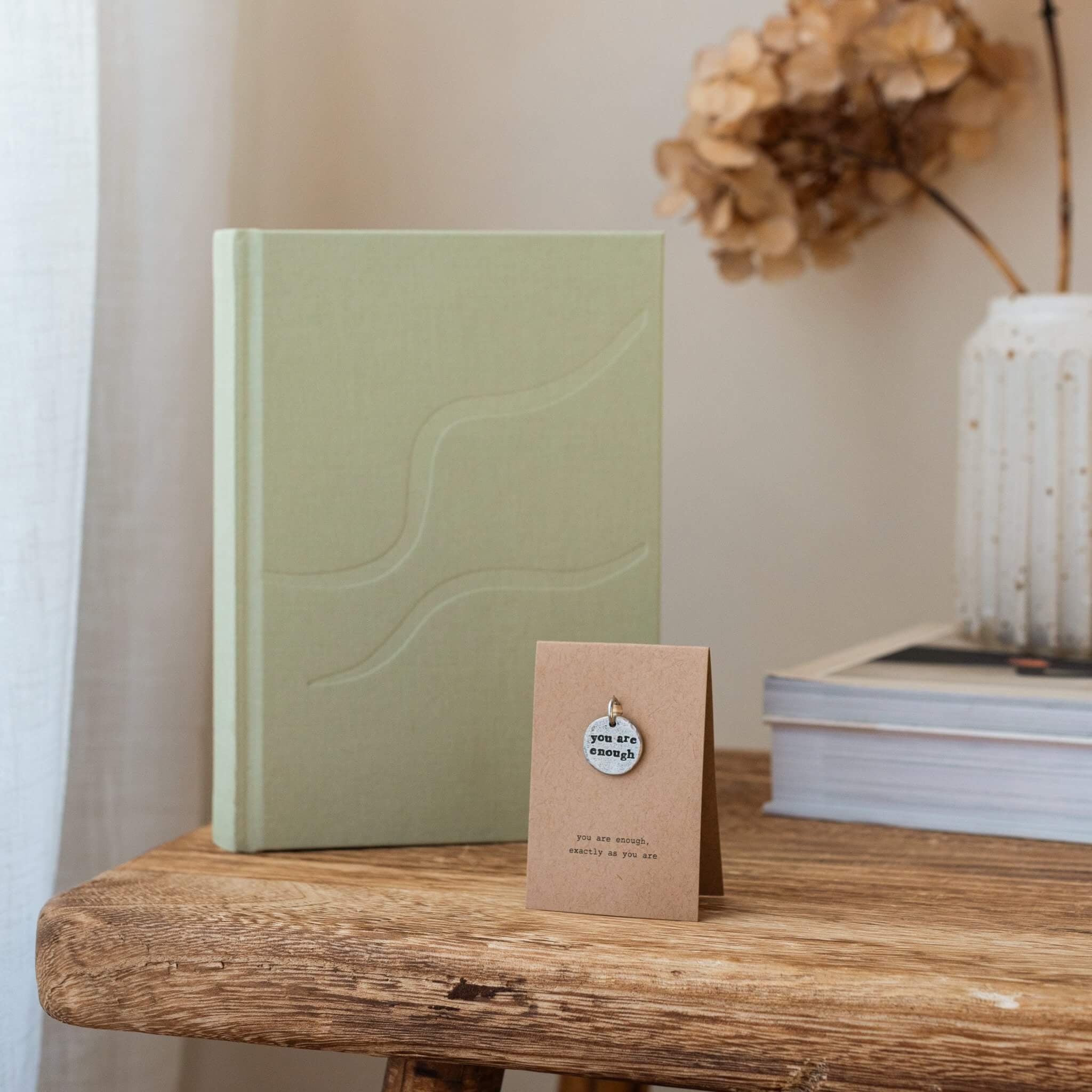When I needed a journal to help with my mental health, what I found made me feel worse—journals with the same "1, 2, 3 things I'm grateful for" when gratitude felt impossible, or ones that tracked exercise and weight (something I knew would be damaging).
I wanted something actually backed by clinical psychologists and self-compassion researchers. Something that wouldn't make me feel like I was failing.
So I created one—and had leading experts review it to make sure it genuinely helps.
If you're looking for a guided journal that supports your mental health (not one that adds to your stress), here's what to look for.
Rachel Smith (DipBSoM) is a qualified meditation teacher who created Give Yourself Kindness after experiencing how Compassion-Focused Therapy helped her own mental health. Her work is recommended by clinical psychologists including Dr. Chris Germer (Harvard Medical School) and used by therapists with their clients worldwide.
Why Most Guided Journals Don't Help Mental Health
If you've tried journaling before and felt frustrated or worse, it wasn't your fault. Many guided journals accidentally undermine mental health in these ways:
❌ The Same Repetitive Prompts
Every page has identical prompts—"1, 2, 3 things to be grateful for" repeated daily. It becomes boring and mechanical. You want a journal that keeps you engaged, not one that feels like homework you're forcing yourself through.
❌ Forced Positivity When Life Is Hard
Some journals only make space for positive emotions. But what if you couldn't think of anything to be grateful for today? Does that mean you're ungrateful? (The answer is no.) When you're genuinely struggling, forced positivity makes you feel worse—like you're failing at journaling too.
❌ Dated Pages That Create Guilt
If you miss a day, it looks like a failure—like you weren't committed enough. But journaling doesn't have to happen daily to be valuable. A good journal should welcome you back, not make you feel behind.
❌ Exercise and Weight Tracking
While food and exercise play a role in mental health, daily tracking doesn't belong in a guided journal. For many people, this creates an unhealthy relationship with their body rather than supporting mental wellbeing.
If any of this sounds familiar, you're not alone. These are the exact things that made me feel worse—and why clinical psychologists say most journals miss the mark.
What Makes a Journal Genuinely Supportive for Mental Health
When leading clinical psychologists and self-compassion researchers reviewed the Give Yourself Kindness journal, these are the features they highlighted as essential for mental health support:
1. A Safe Space for Every Emotion
Why this matters: There is no emotion that is wrong to feel. Journaling should be a space to notice all emotions, helping you explore them with curiosity and self-compassion—because what you feel is not who you are, and no emotion is wrong.
Many journals push "toxic positivity" that dismisses real problems. But research shows that acknowledging difficult emotions is essential for mental health—suppressing them only increases distress.
What to look for: Prompts like "What emotions can you notice have arisen for you today? With curiosity and kindness, try to explore reasons behind the emotions you've noticed" rather than only asking about positive moments.
2. Gratitude That Changes (Not Rigid Lists)
Why this matters: Gratitude can be a powerful tool for well-being, but rigid "list three things" exercises can feel forced. Research shows gratitude works best when it's flexible and authentic—not when it feels like another task to complete.
What to look for: Varied gratitude prompts that encourage meaningful reflection—"Something that happened today I feel grateful for (try to explore how it made you feel)" or "An act of kindness someone has shown me recently"—so gratitude becomes a natural, supportive practice rather than a checkbox.
3. Undated Format (No Guilt for Missing Days)
Why this matters: Life happens and you are not a bad person if you don't journal every day. Journaling should be a supportive place, not one that makes you feel guilty for missing a day.
What to look for: An undated journal that welcomes you back whenever you're ready, without visible gaps that make you feel like you've failed.
4. Prompts That Change
Why this matters: Journaling is a proven way to support mental well-being, but it needs to feel doable. It should encourage reflection without feeling rigid or repetitive.
What to look for: Different prompts each day that rotate between gratitude, emotional awareness, self-kindness, and reflection—so it never feels like you're just going through the motions.
5. Self-Compassion, Not Self-Judgment
Why this matters: Journaling should be a place of support, not another space for self-criticism. Research by Dr. Kristin Neff shows that self-compassion is more effective than self-criticism for improving mental health and reducing negative self-talk.
A good mental health journal helps you gently notice negative self-talk, challenge it with kindness, and develop a more compassionate inner dialogue—just as you would for a friend.
What to look for: Prompts like "What has challenged you today? Talk to yourself as you would talk to a friend—write down what you would say" or "Notice how you are feeling right now. Think about what you would find it helpful to hear. Write down words to say to yourself."
Why Self-Compassion Specifically?
You might wonder: why focus on self-compassion rather than positive thinking or gratitude alone?
Because research by clinical psychologists shows self-compassion is more effective than self-criticism and positive affirmations for improving mental health.
What the research shows:
Dr. Kristin Neff's extensive research demonstrates that self-compassion:
- Reduces negative self-talk and self-criticism — Learn how to stop negative self-talk
- Helps you process difficult emotions without avoidance — Read about being with difficult emotions
- Is more effective than forced positivity — See why self-compassion works better than self-criticism
- Builds genuine self-worth that doesn't depend on being perfect — Discover journals for self-worth
Clinical psychologist Dr. Annabelle Kyle Dortch explains: "When we engage in self-criticism, we create a nervous system and brain state that is not conducive to learning or facilitating a growth-oriented mindset." Read the full article
This is why a mental health journal should help you respond to yourself with compassion—especially when things are hard.
Why Leading Experts Recommend This Approach
I wanted to make sure this journal genuinely helps—not just looks good. So I had leading clinical psychologists and self-compassion researchers review it.
Here's what they said:

Dr. Chris Germer, PhD
Clinical Psychologist, Harvard Medical School | Co-developer of the Mindful Self-Compassion (MSC) program with Kristin Neff in 2010. MSC has since been taught to over 250,000 people worldwide.

Dr. Chris Irons
Clinical Psychologist | One of the world's leading researchers, trainers & practitioners of Compassion Focused Therapy (CFT)

Professor Willem Kuyken, PhD, DClinPsy
Ritblat Professor of Mindfulness and Psychological Science at the University of Oxford | Listed in the top 1% of most cited scientists worldwide

Nina Holle
Psychotherapist specializing in psychology, neuroscience, and wisdom traditions
What to Look for When Choosing a Mental Health Journal
When choosing a mental health journal, ask yourself:
- Does it welcome ALL emotions, or only positive ones?
- Will the prompts keep you engaged, or repeat daily?
- If you miss days, will you feel guilty?
- Is it backed by mental health professionals?
- Does it use self-compassion techniques (not just forced positivity)?
- Does gratitude feel flexible and authentic, or rigid and forced?
If you're looking for a journal that does all of this, the Give Yourself Kindness journal was created with these principles in mind—and reviewed by clinical psychologists to ensure it works.
Common Questions About Mental Health Journals
If you felt worse, the approach probably wasn't right. Many journals accidentally reinforce self-criticism or force positivity when you're genuinely struggling.
The Give Yourself Kindness journal was created specifically to avoid those problems—it validates all emotions, prevents repetition, and uses self-compassion techniques that research shows actually work.
Psychotherapist Michelle Shlafman, PhD, says: "Out of all the guided journals I've used, this one stands out as my favorite. Understanding your emotions and compassionately exploring their origins is so important for self-connection and personal growth."
No. Research shows consistency matters more than perfection. The Give Yourself Kindness journal is undated so you can return without guilt whenever you're ready.
Life happens. You're not a bad person if you don't journal every day.
No. If you're experiencing depression, severe anxiety, or deep struggles, please work with a qualified therapist or counselor.
Many therapists use this journal with their clients as a supportive tool alongside therapy. Accredited counsellor Rachael Oliver MBACP calls it "an absolutely essential tool for helping build self awareness, compassion, reflect on things happening between sessions."
Think of it as a companion to professional support, not a replacement.
This is incredibly common. Many people find self-compassion difficult at first—especially if you've been hard on yourself for years.
Clinical psychologist Dr. Chris Irons has identified 10 common fears of self-compassion, including worries that it will make you lazy or weak. (Research shows this isn't true.)
The journal includes gentle prompts that help you practice self-compassion gradually. As one therapist noted, the prompts "feel safe and encouraging" rather than forcing you into discomfort.
Gratitude and positive thinking can be helpful—and they're included in this journal. But research by Dr. Kristin Neff shows self-compassion is more effective than either one alone for improving mental health.
Why? Because self-compassion doesn't ask you to pretend everything is fine. It acknowledges that you're struggling—and responds with kindness anyway.
The journal integrates gratitude in flexible, authentic ways (not rigid lists) alongside self-compassion practices that help you respond to yourself with the same kindness you'd offer a friend.
Absolutely. You don't need any experience with journaling or self-compassion. The prompts guide you every step of the way, and there are no "wrong" answers.
The journal includes gentle reminders like "be careful how you talk to yourself, you are listening" and "you can't be perfect, and you don't need to be" that make it feel supportive rather than intimidating.
Many people who've never journaled before say this is what finally made it feel accessible and actually helpful.
The Give Yourself Kindness Journal
If you're looking for a guided journal that genuinely supports your mental health, the Give Yourself Kindness journal includes everything clinical psychologists recommend:
- 90 unique daily prompts — Never repetitive, rotating between gratitude, emotional awareness, self-kindness, and reflection
- Emotional awareness tool on every page — Helps you notice and name emotions without judgment
- Undated format — No guilt when life gets in the way
- Self-compassion focus — Backed by leading researchers including Dr. Chris Germer (Harvard Medical School) and Dr. Chris Irons (CFT expert)
- Over 50 gentle reminders — "The way you speak to yourself matters," "You can't be perfect, and you don't need to be"
- Flexible gratitude practice — Not rigid lists, but varied prompts that feel authentic
Therapists worldwide use this journal with their clients. It's been reviewed and recommended by clinical psychologists, and loved by thousands with 150+ 5-star reviews.


“By far my favourite guided journal that I’ve used!”
There's a lot of journals out there. Most of which include tools that can be repetitive, boring or unhelpful. Give Yourself Kindness is about creating something new.






